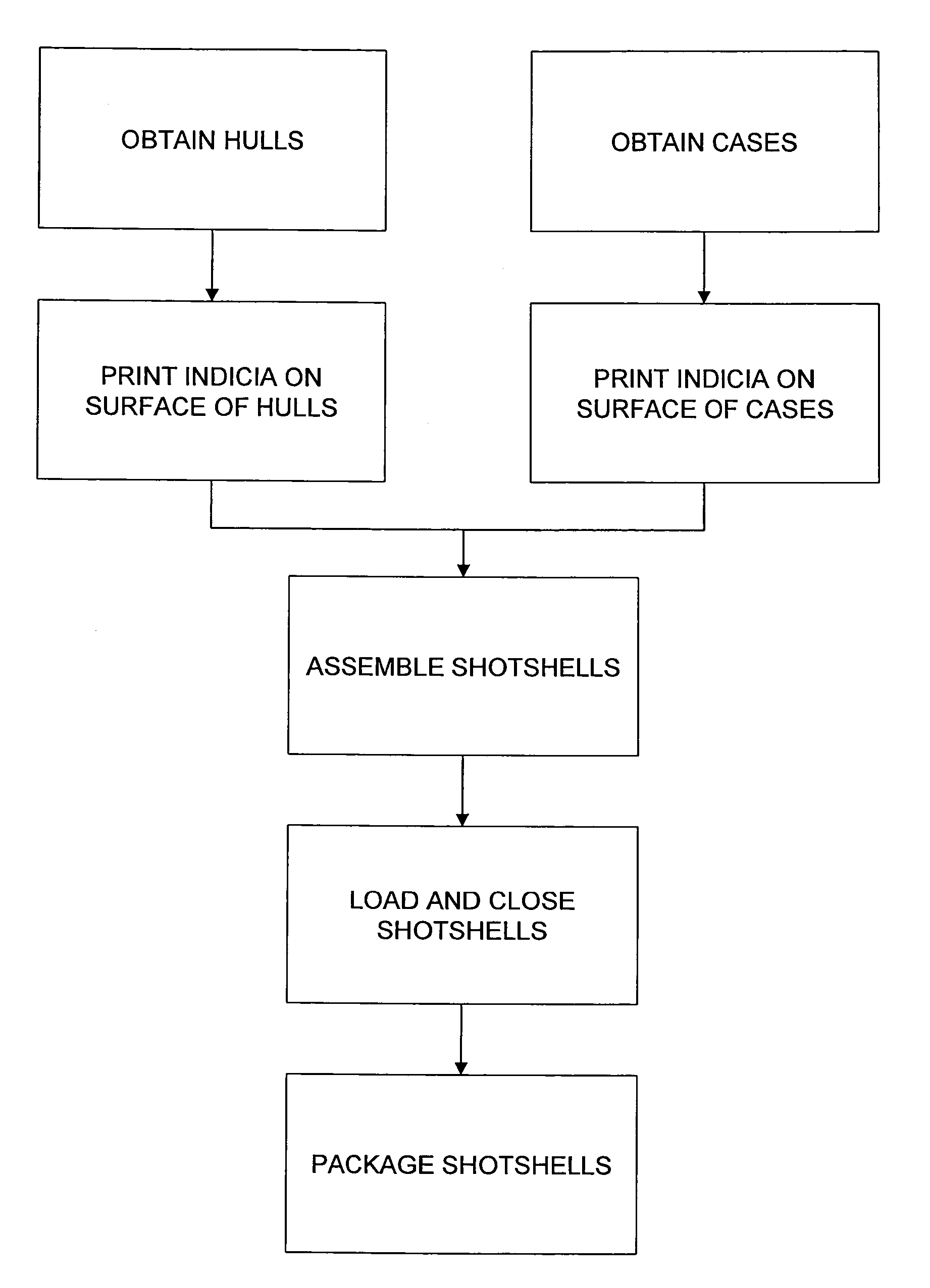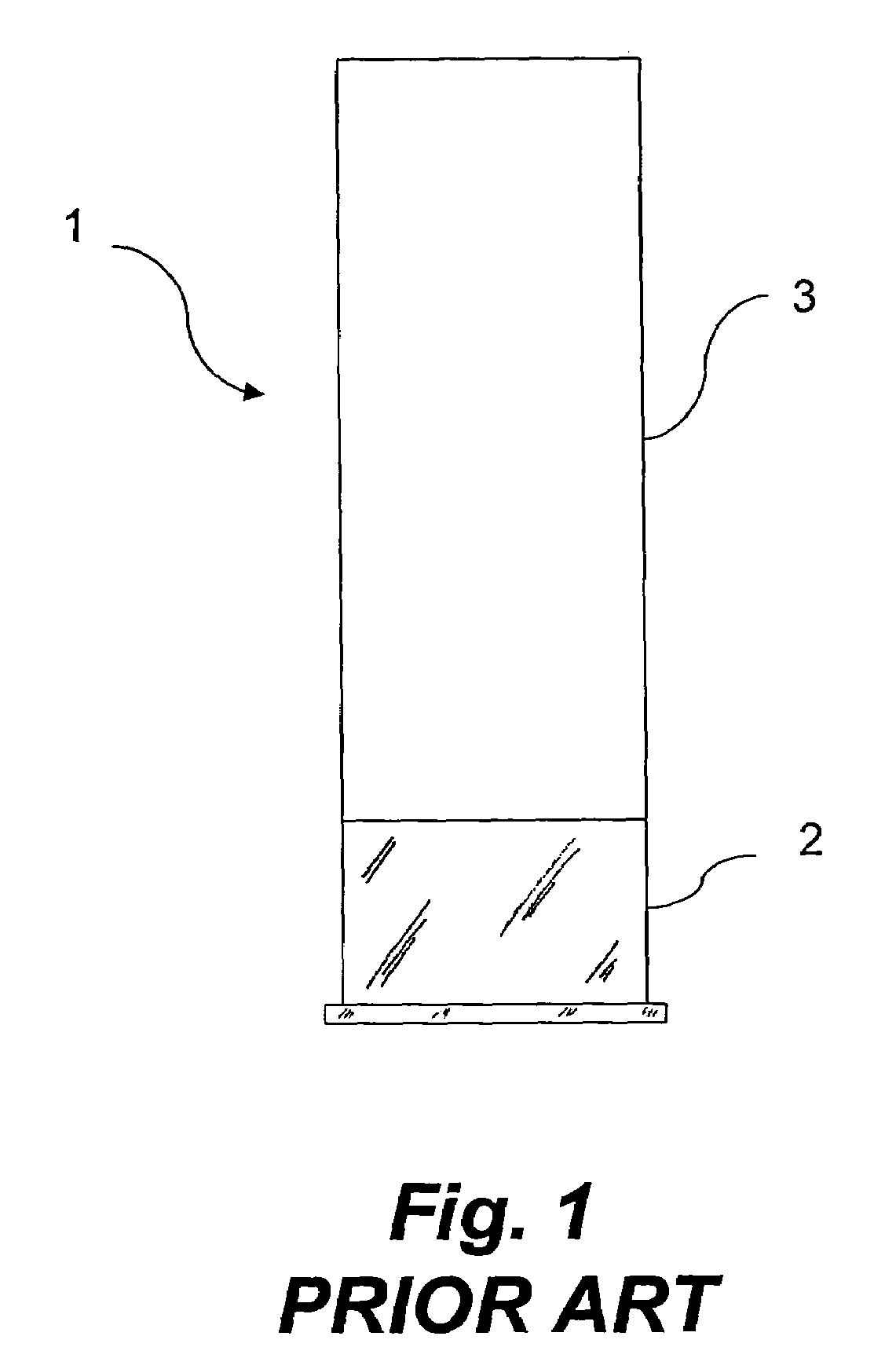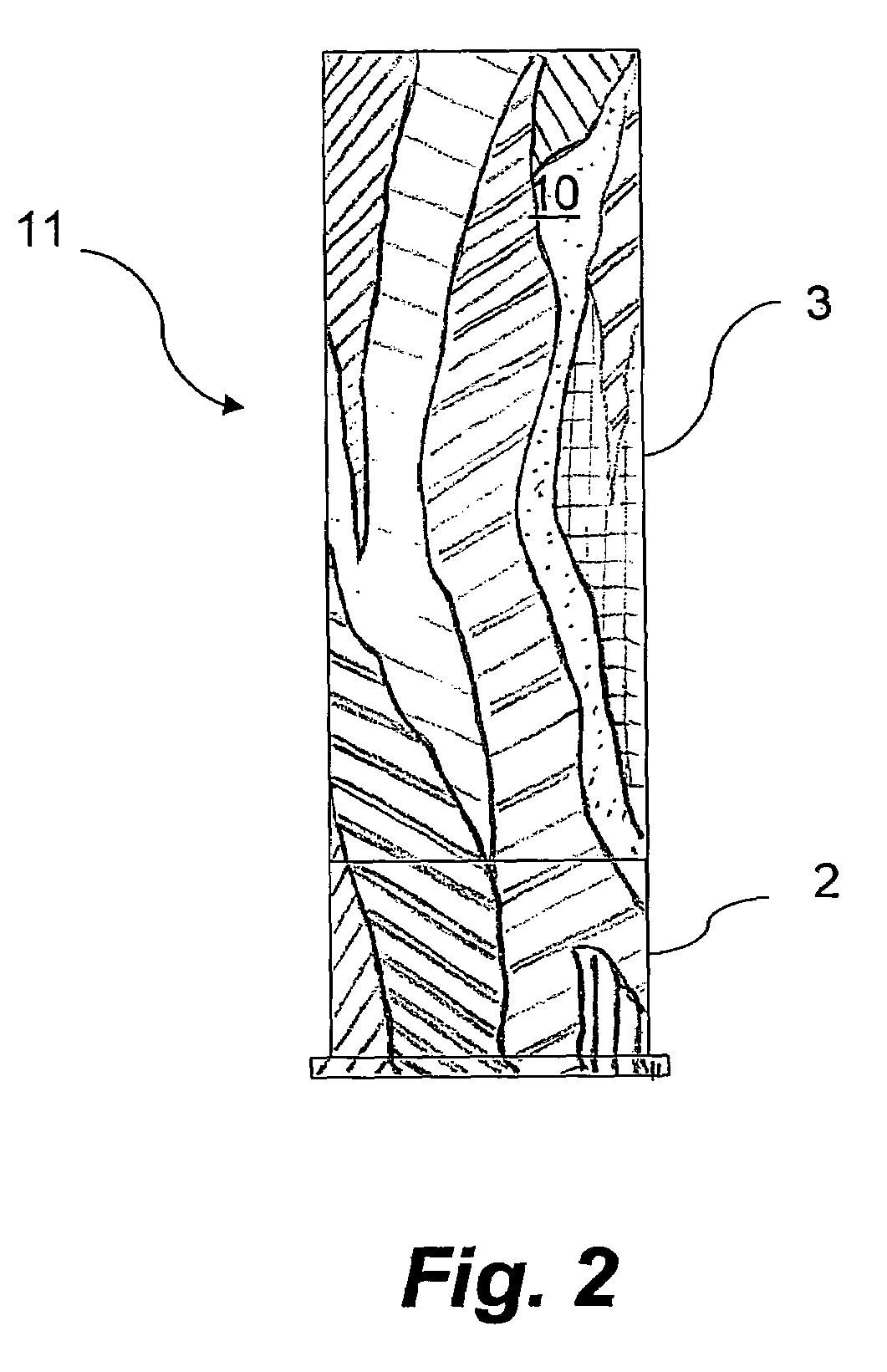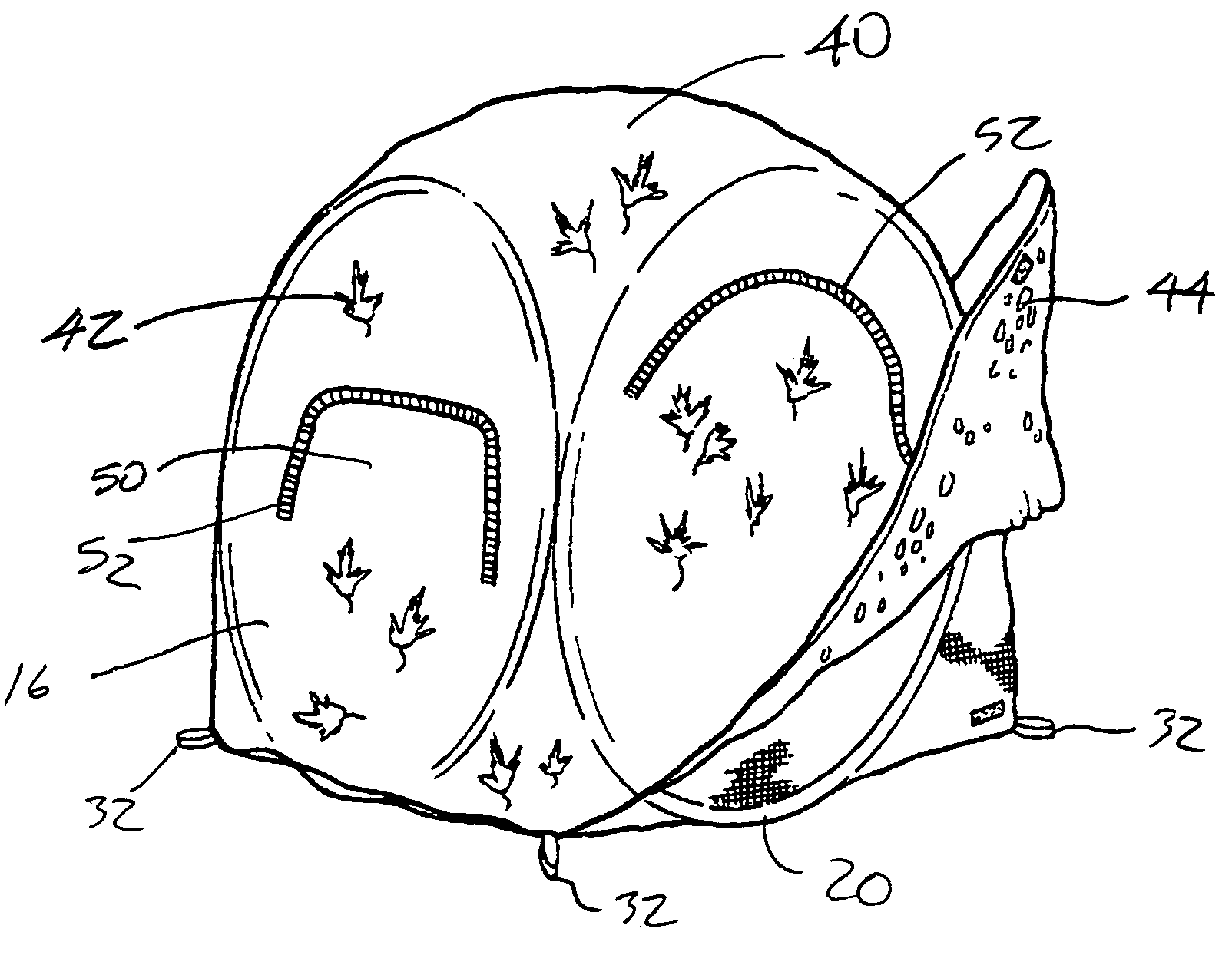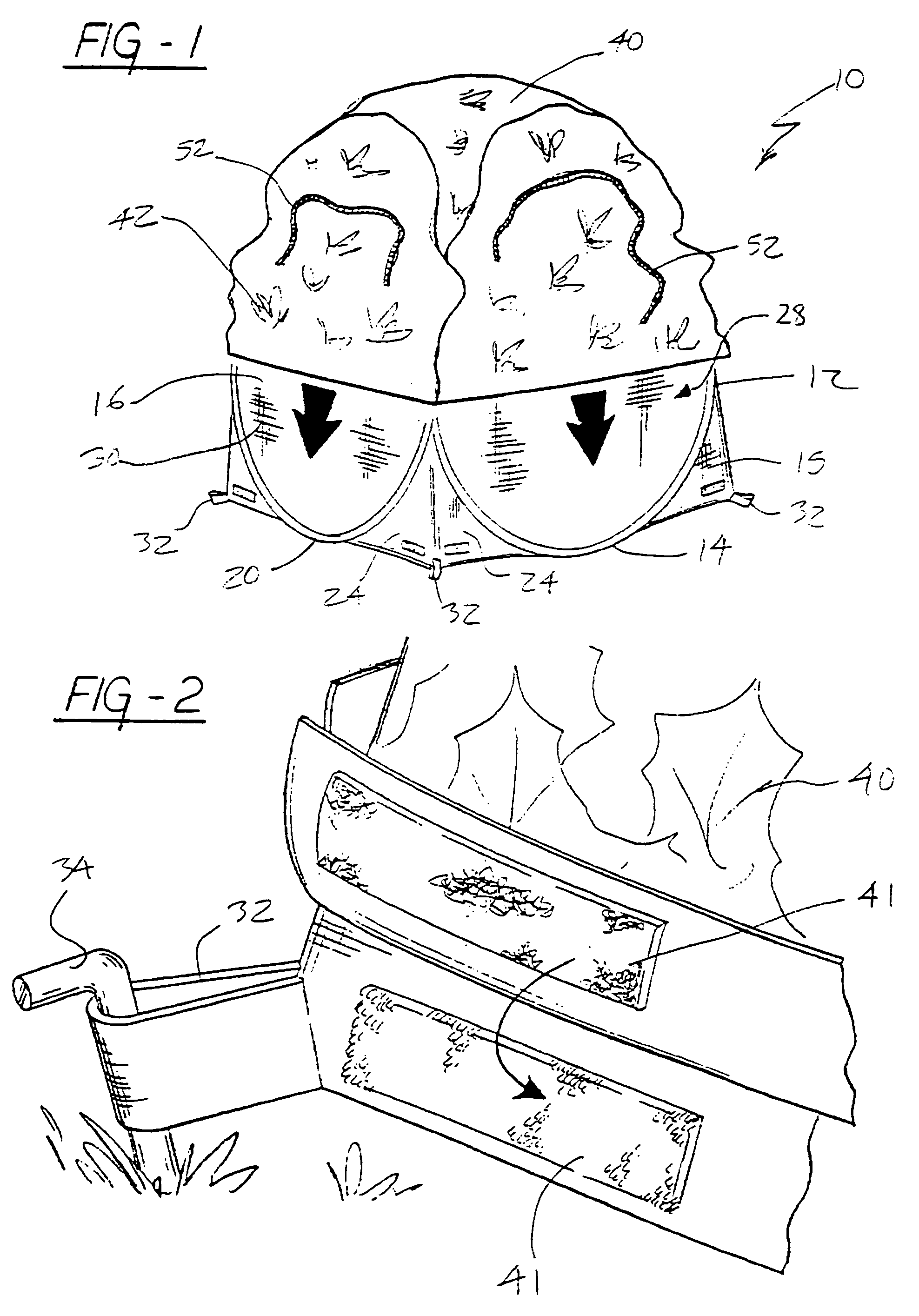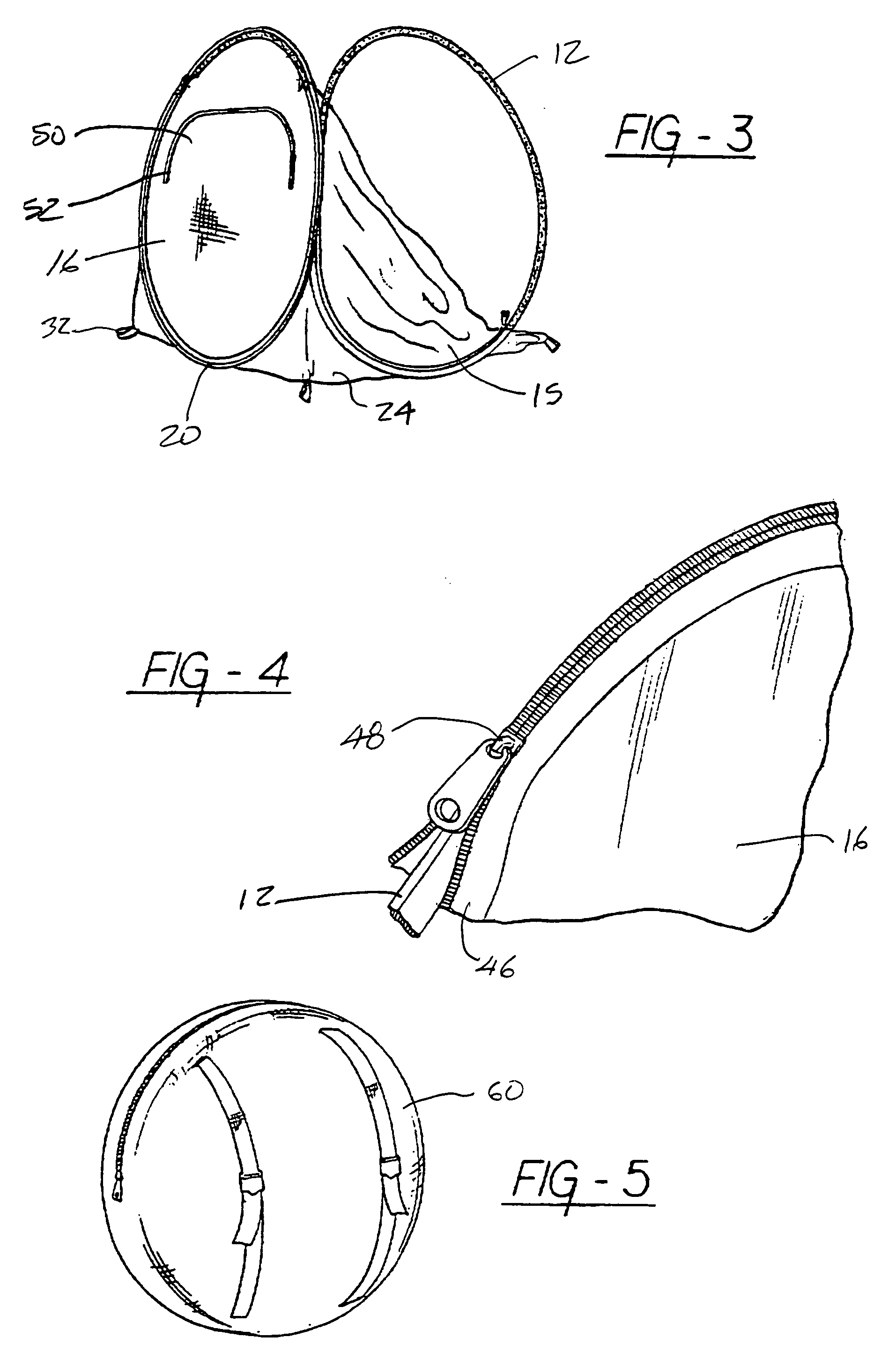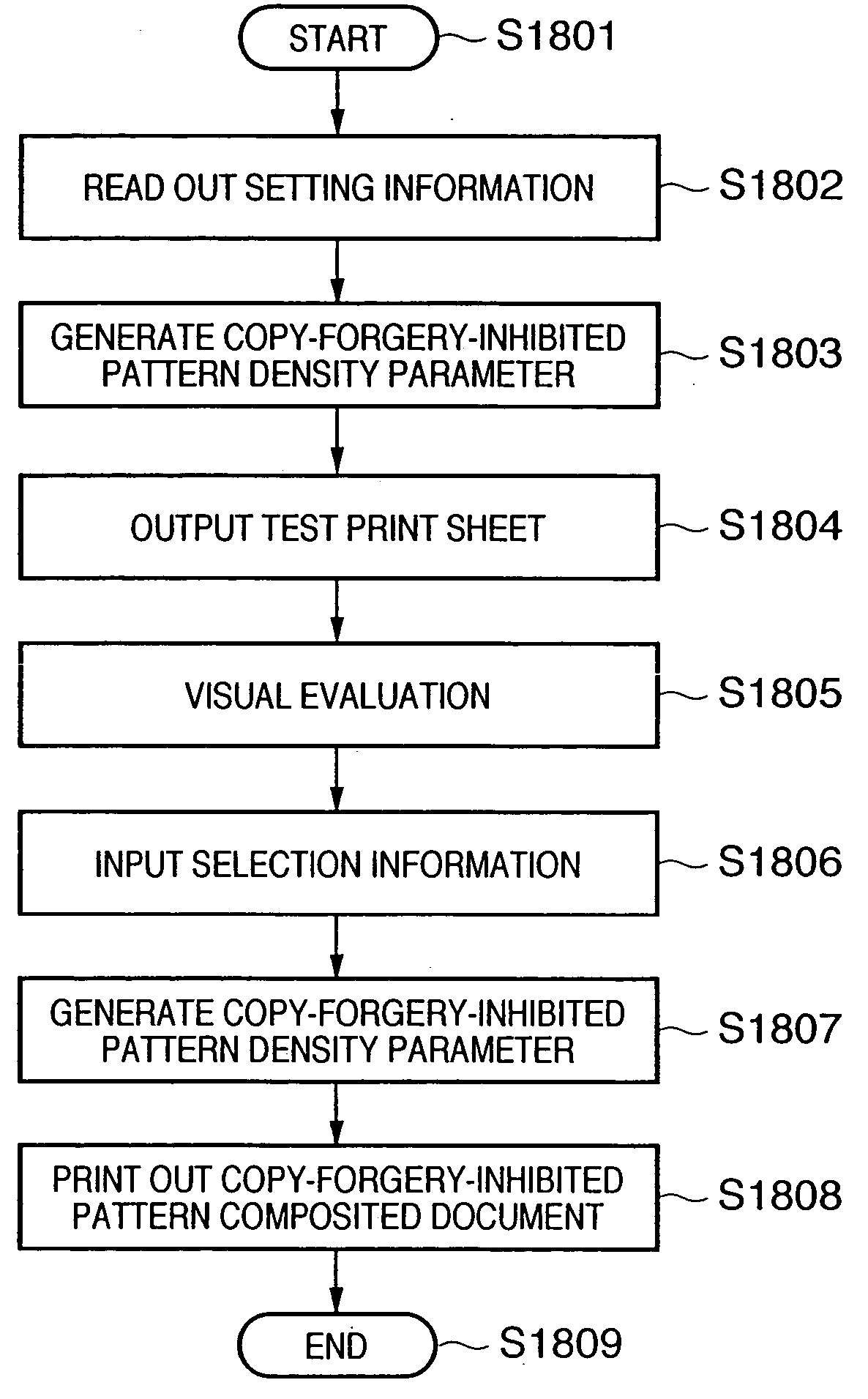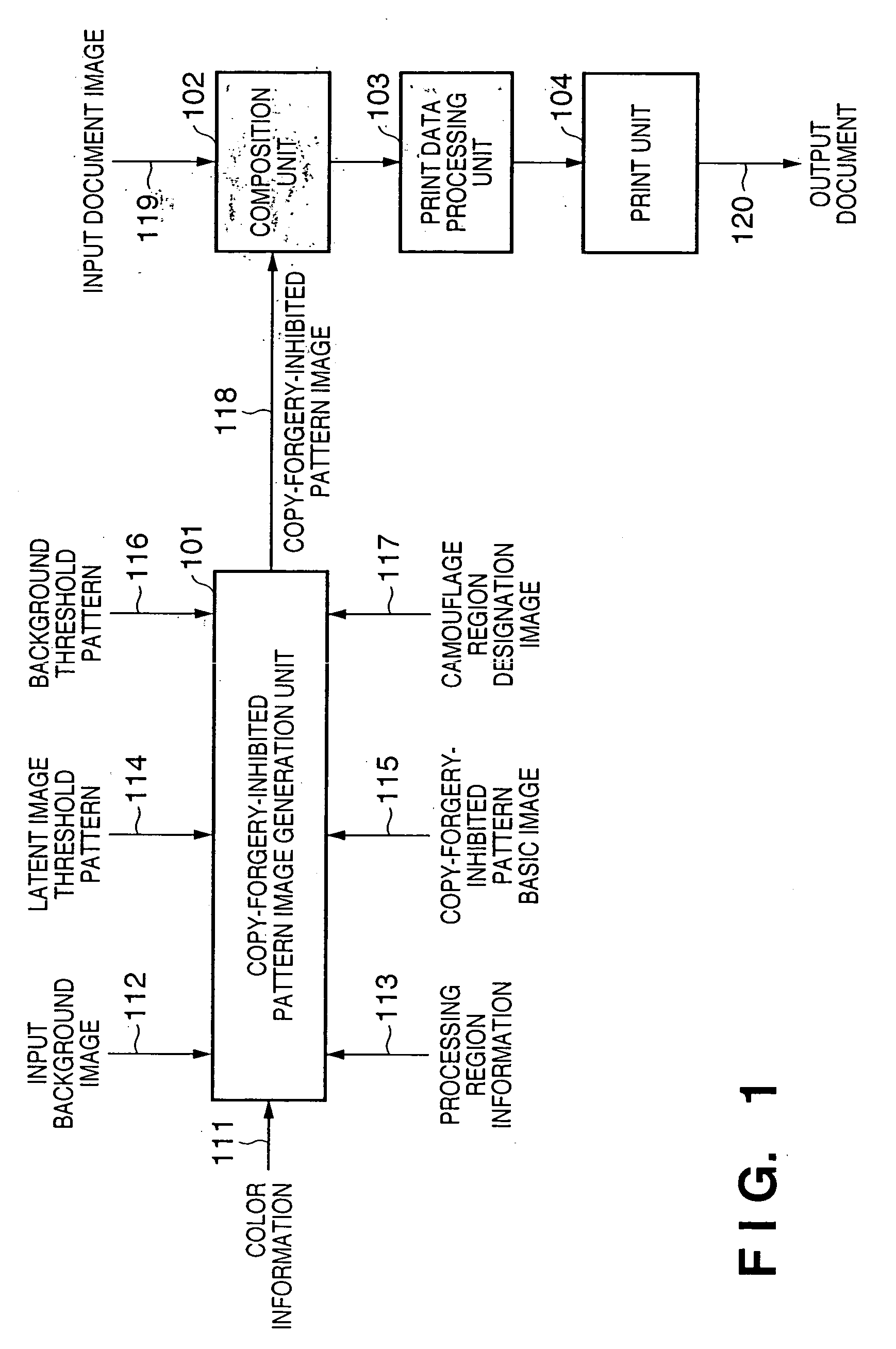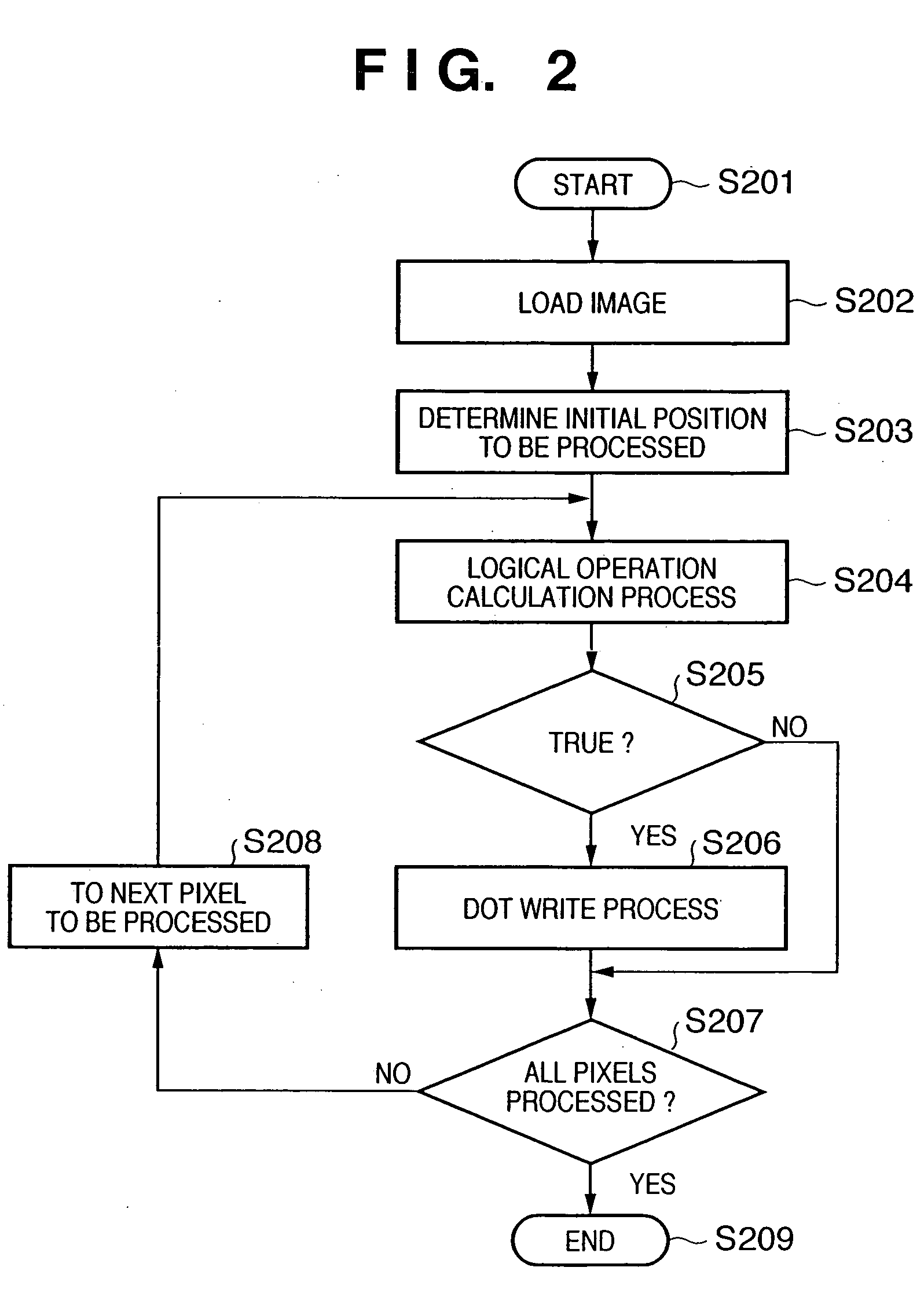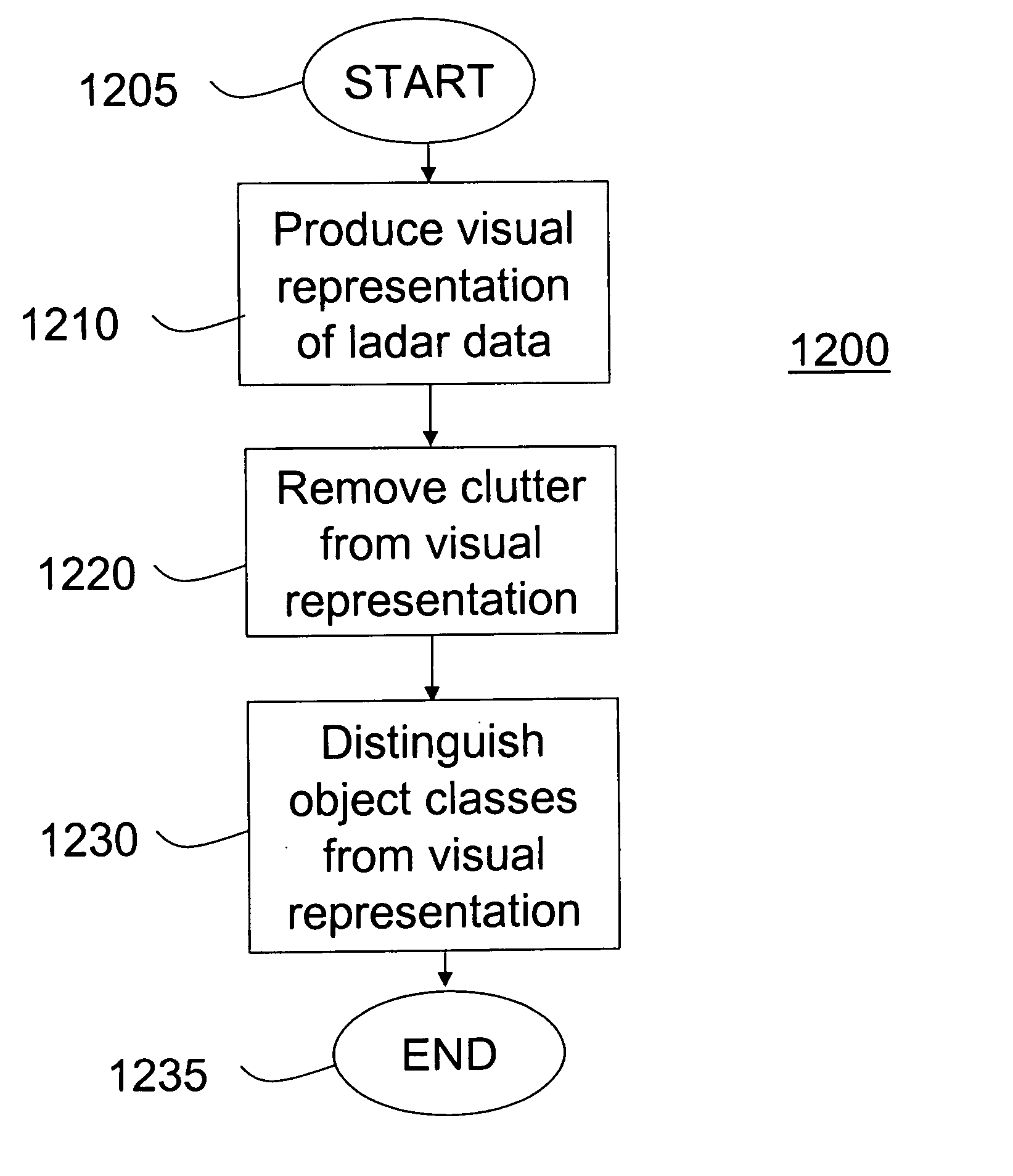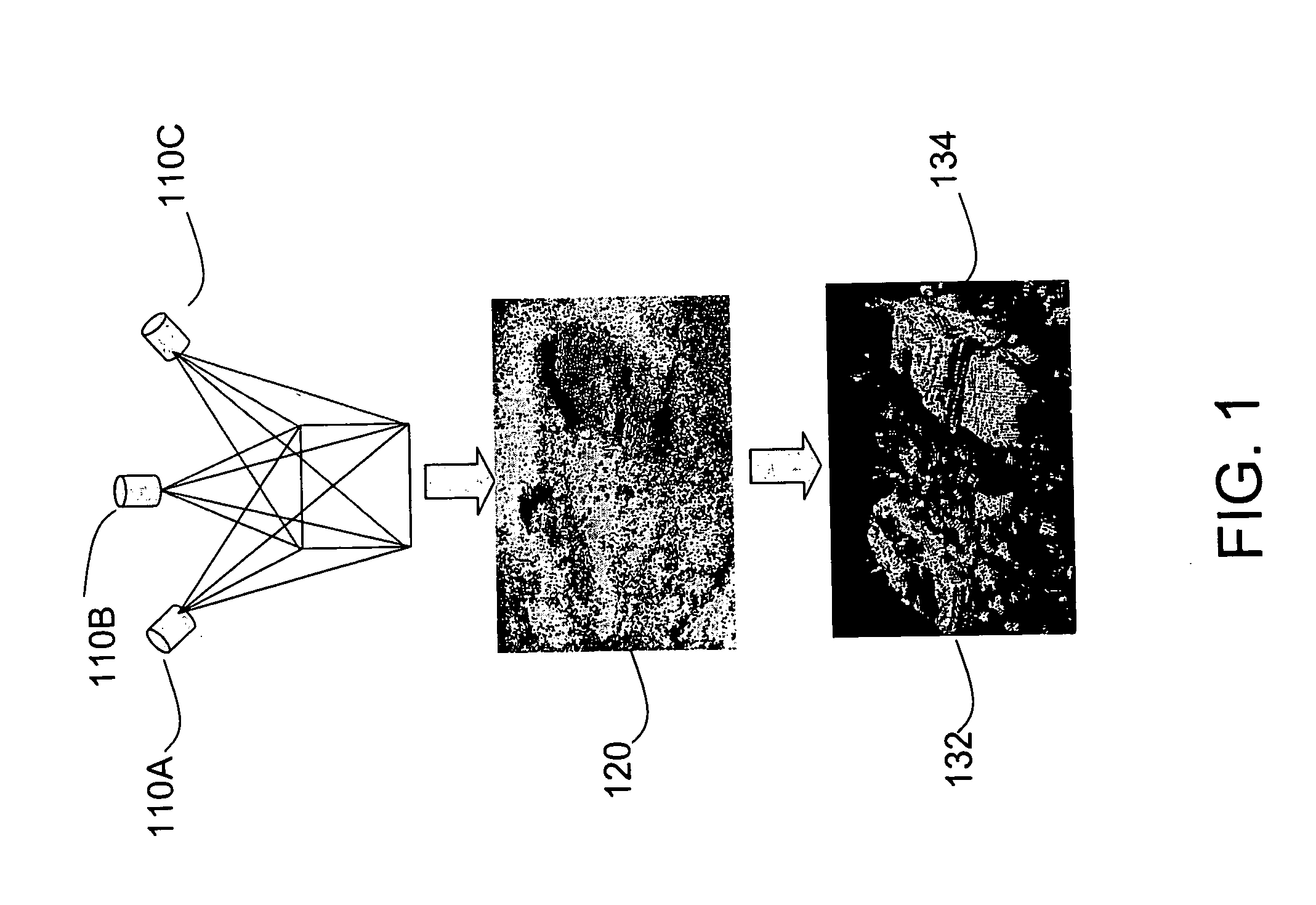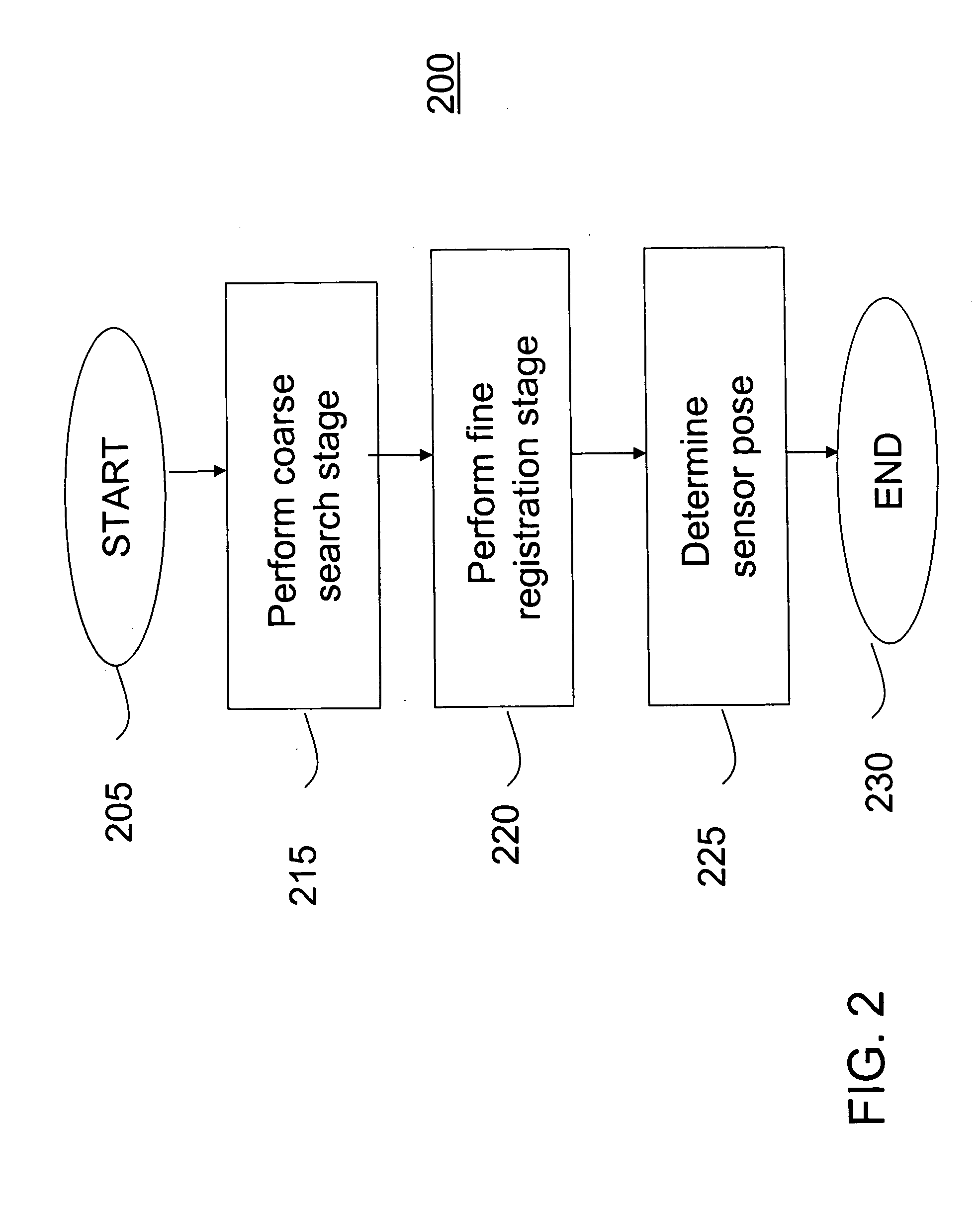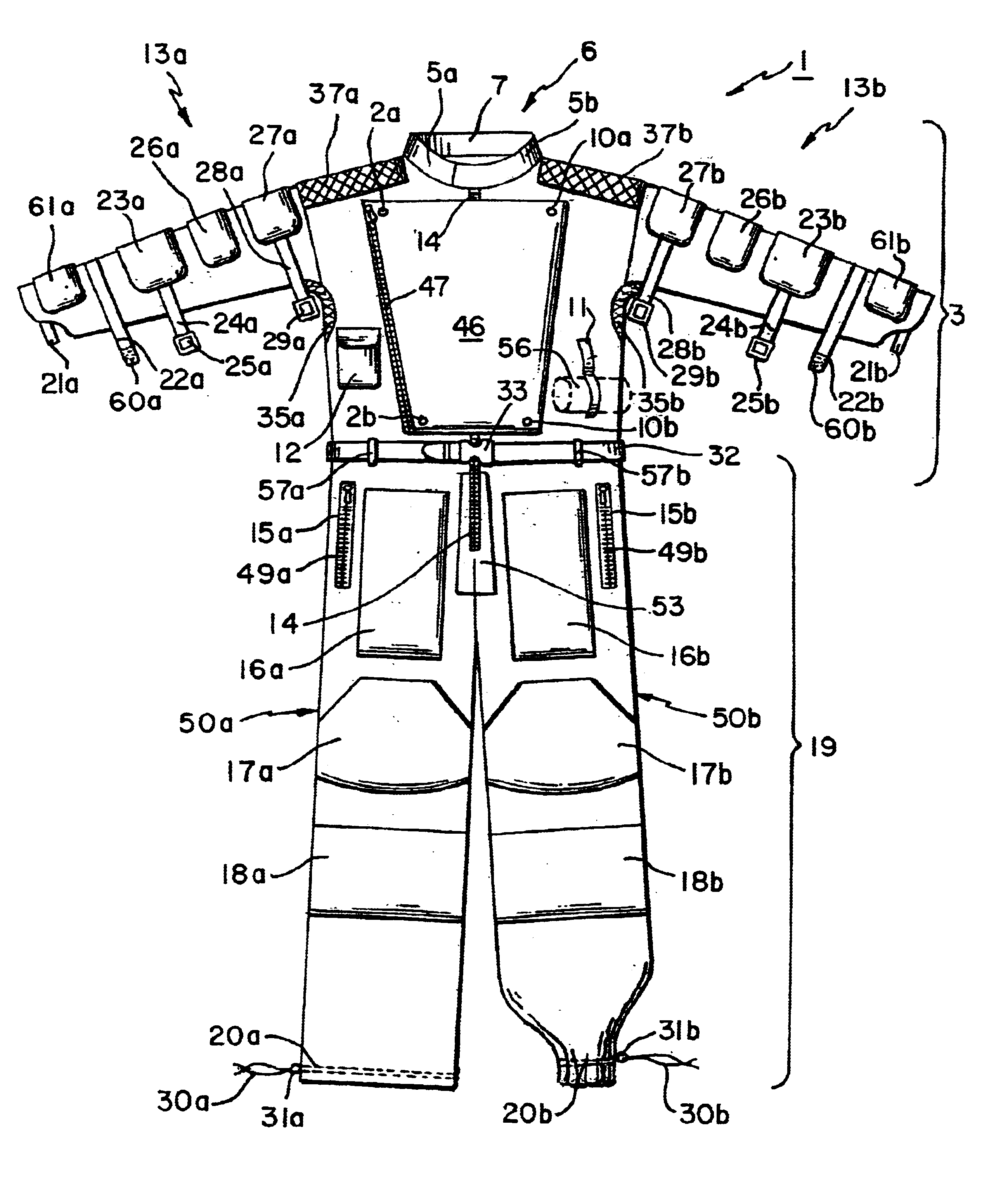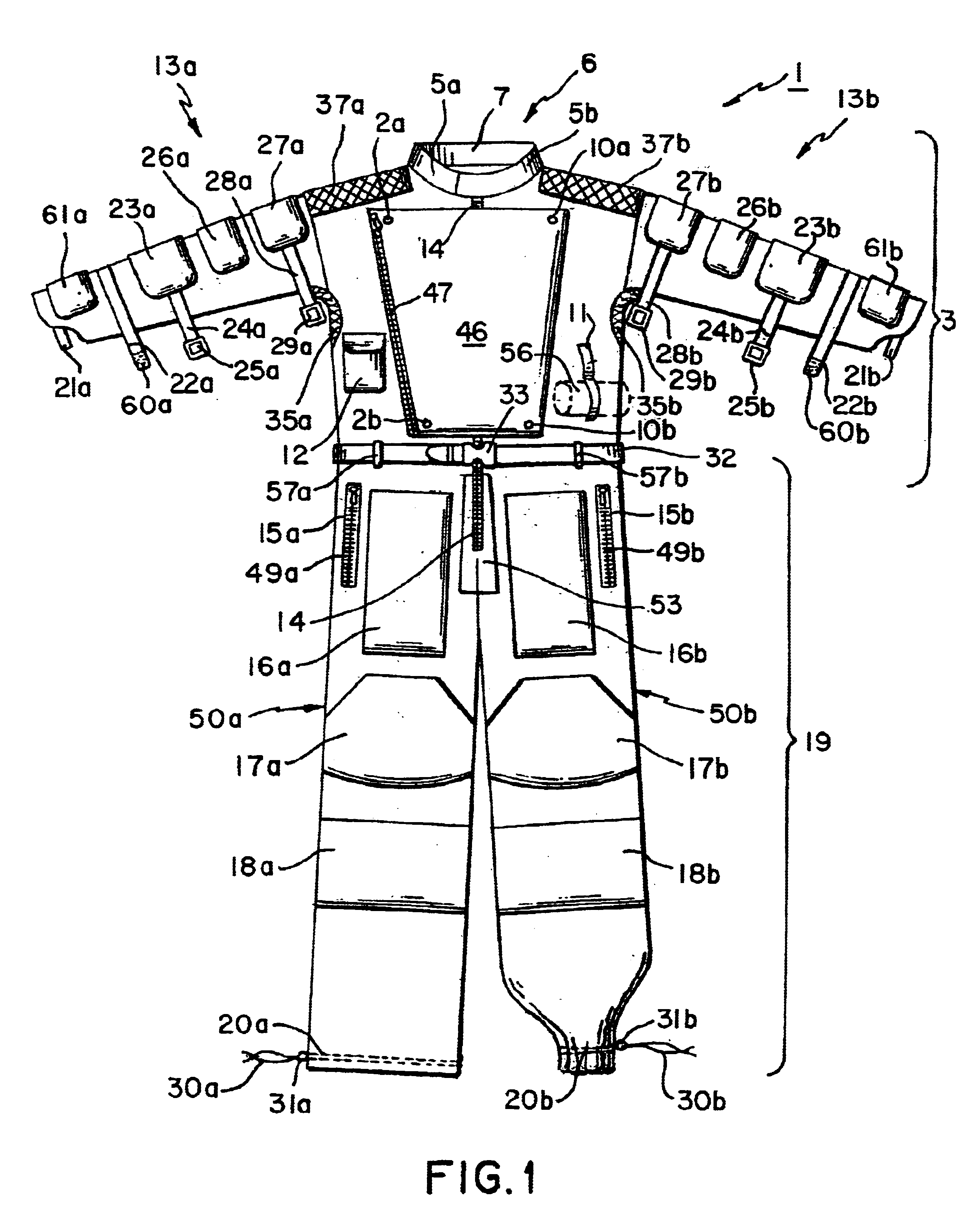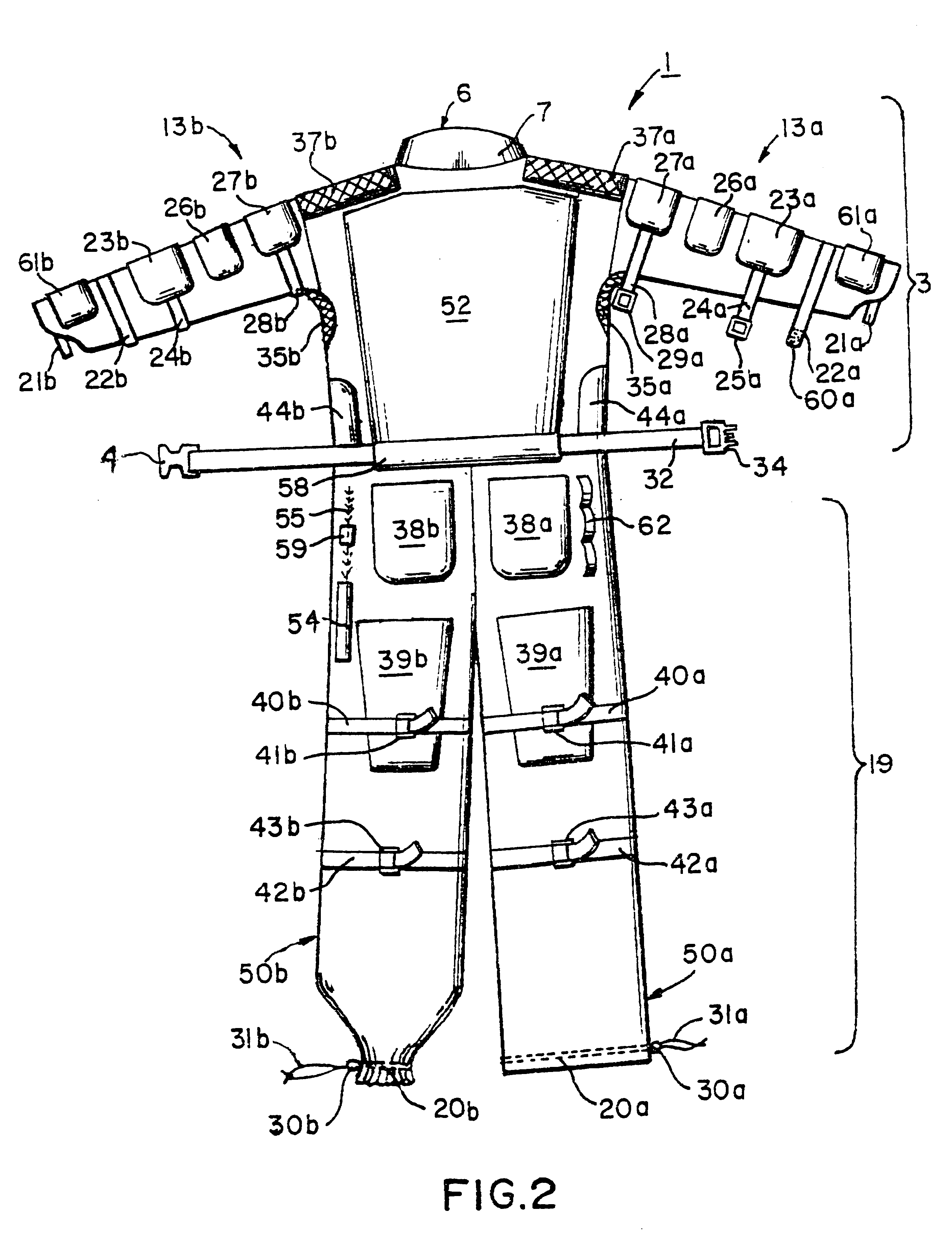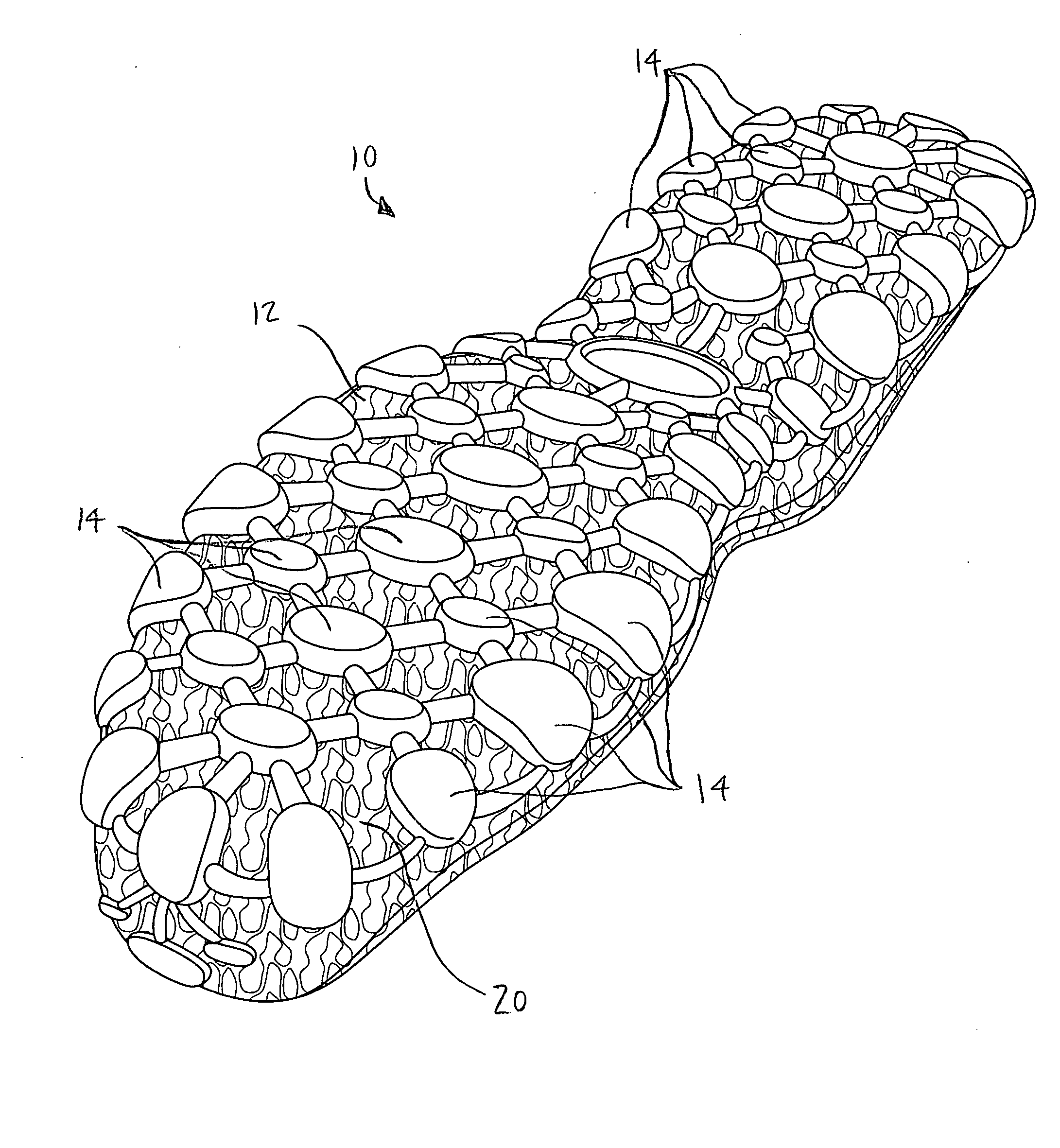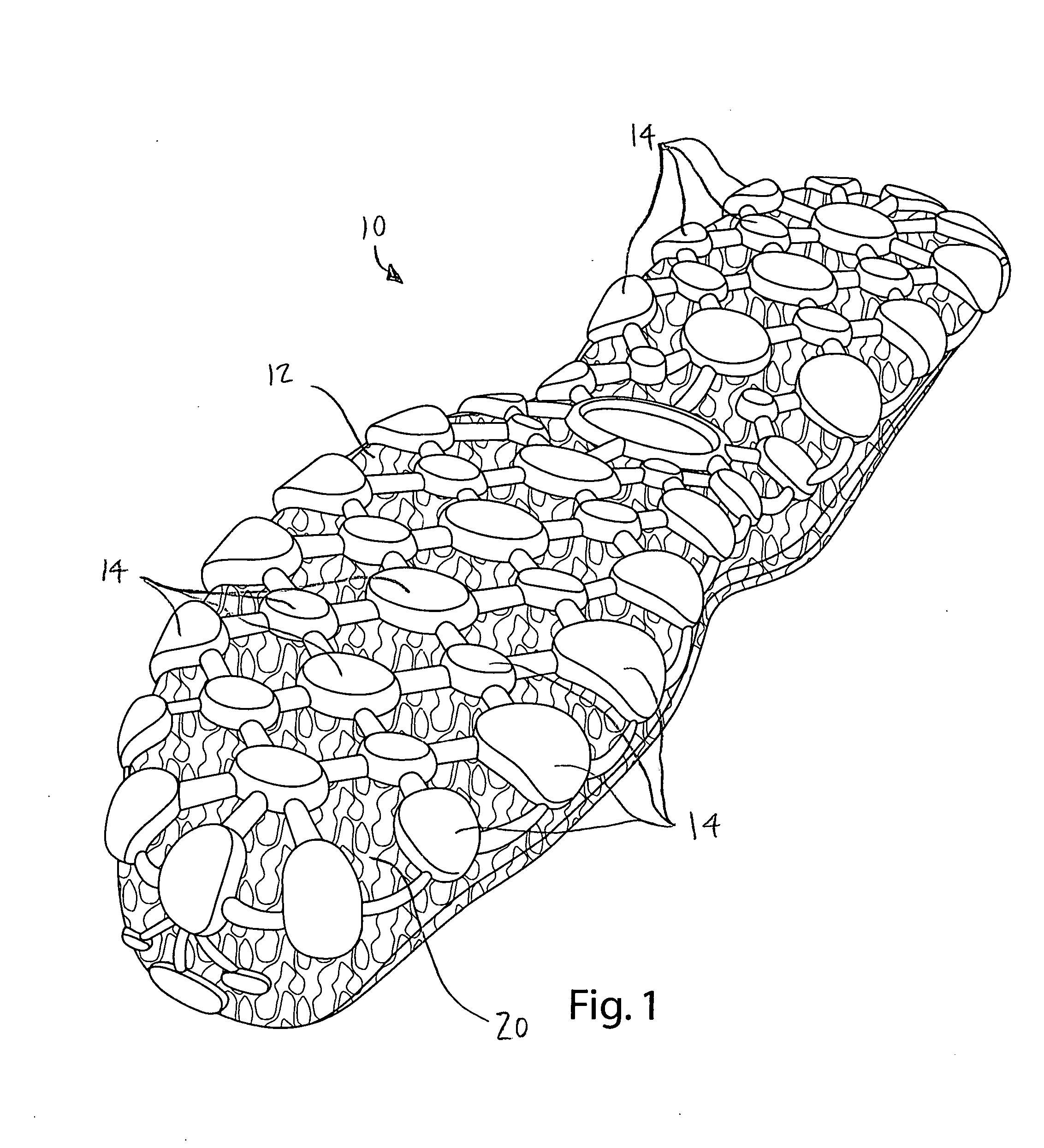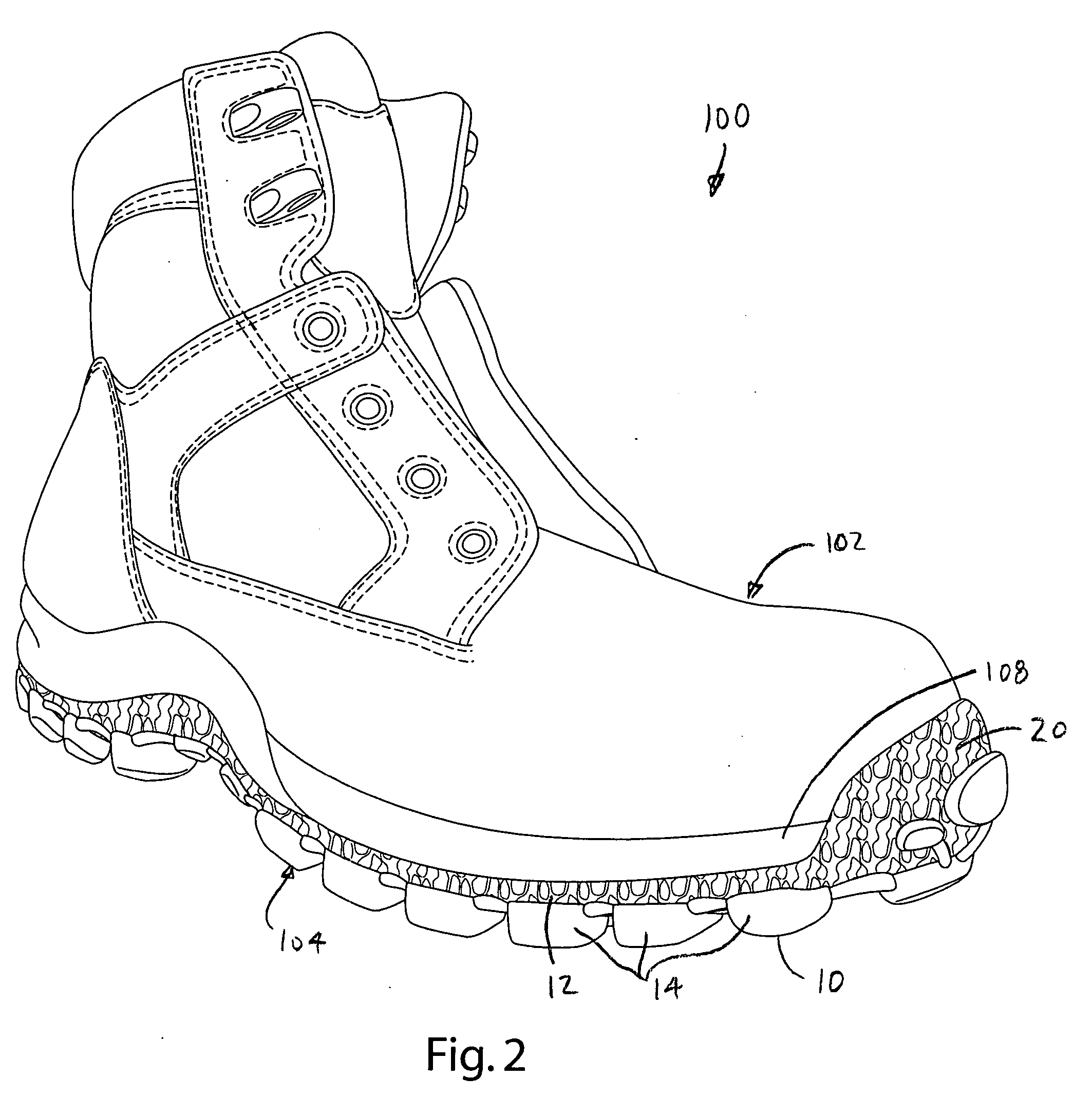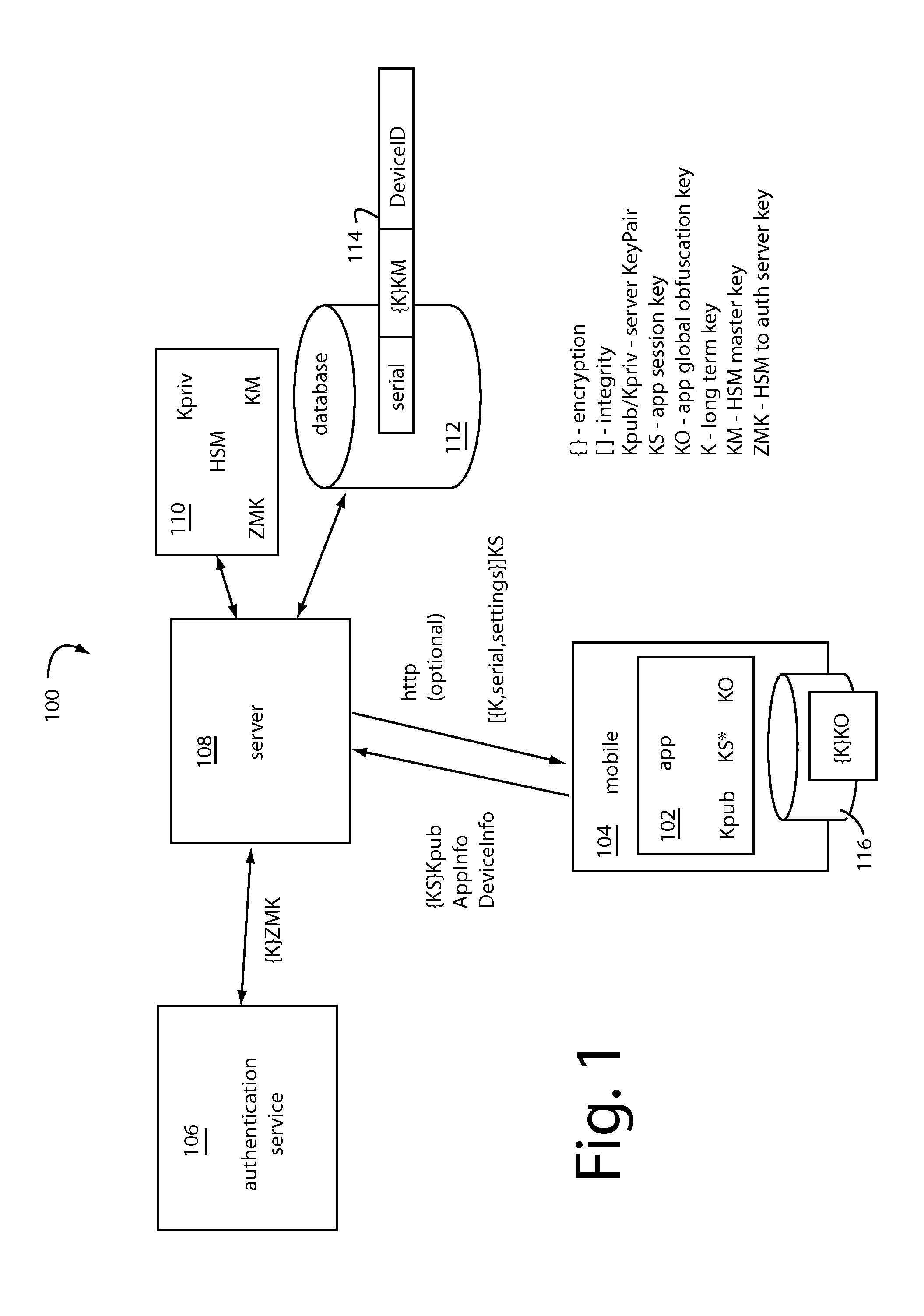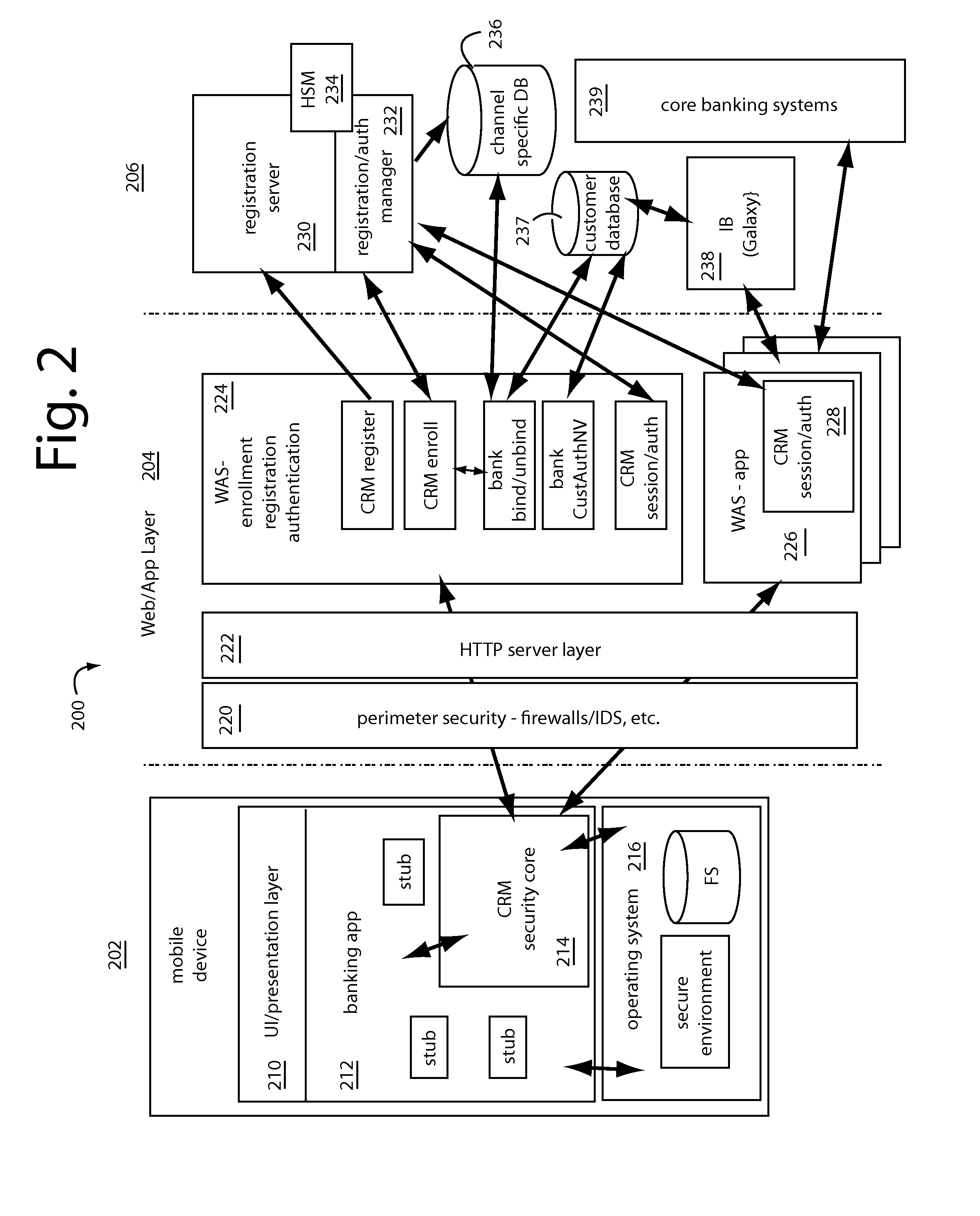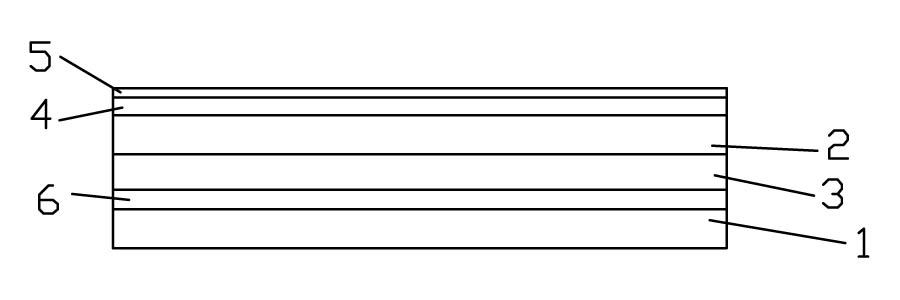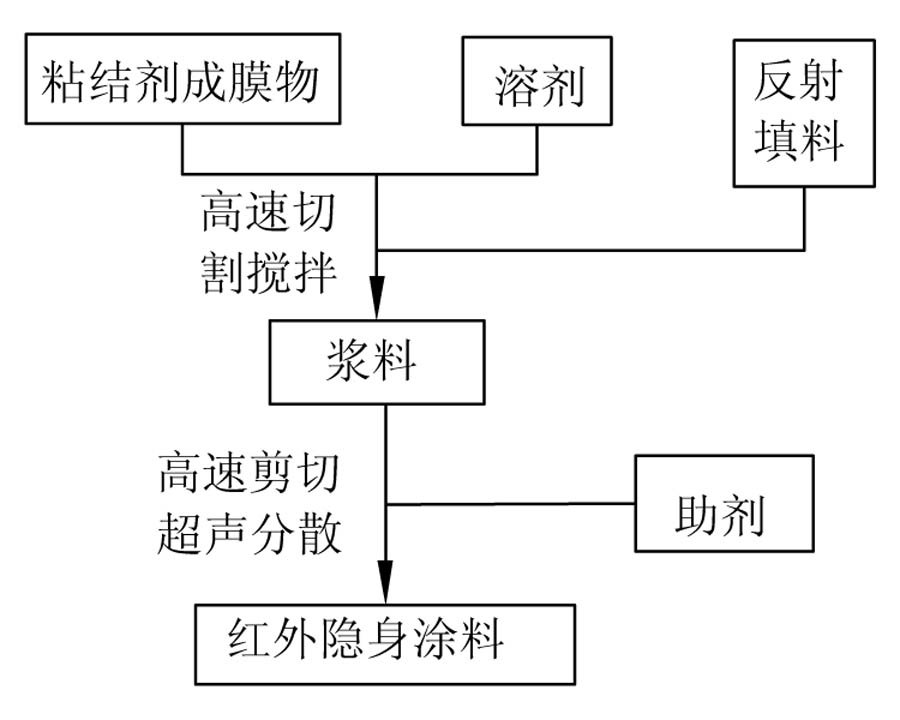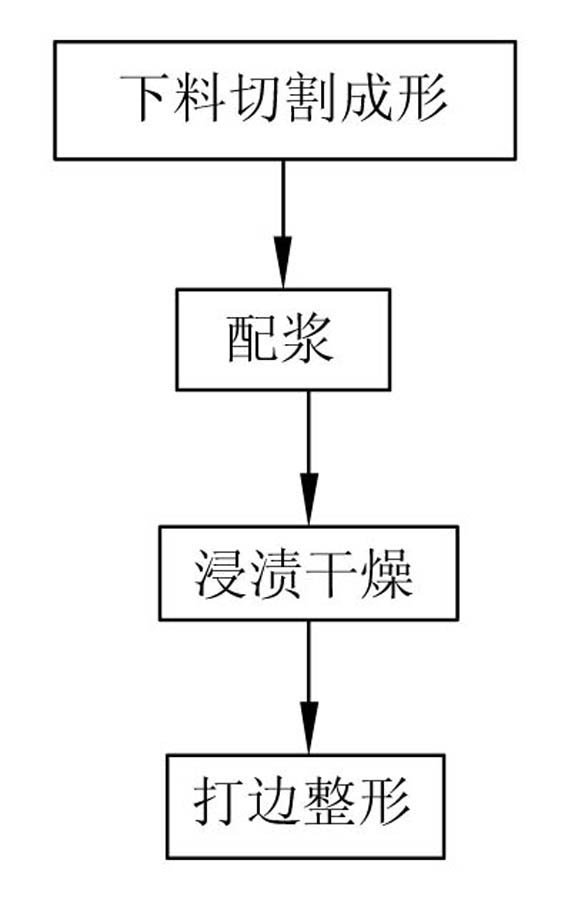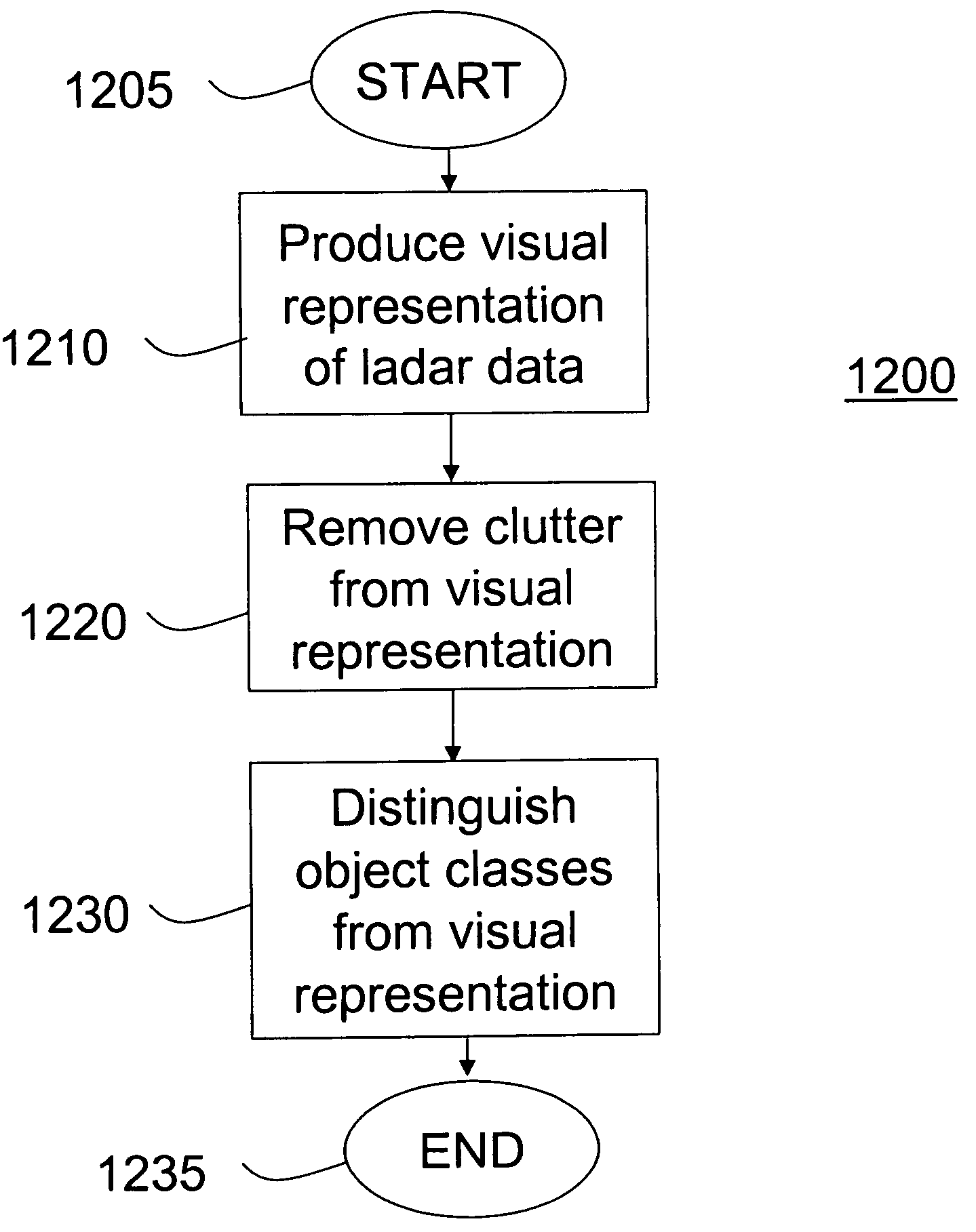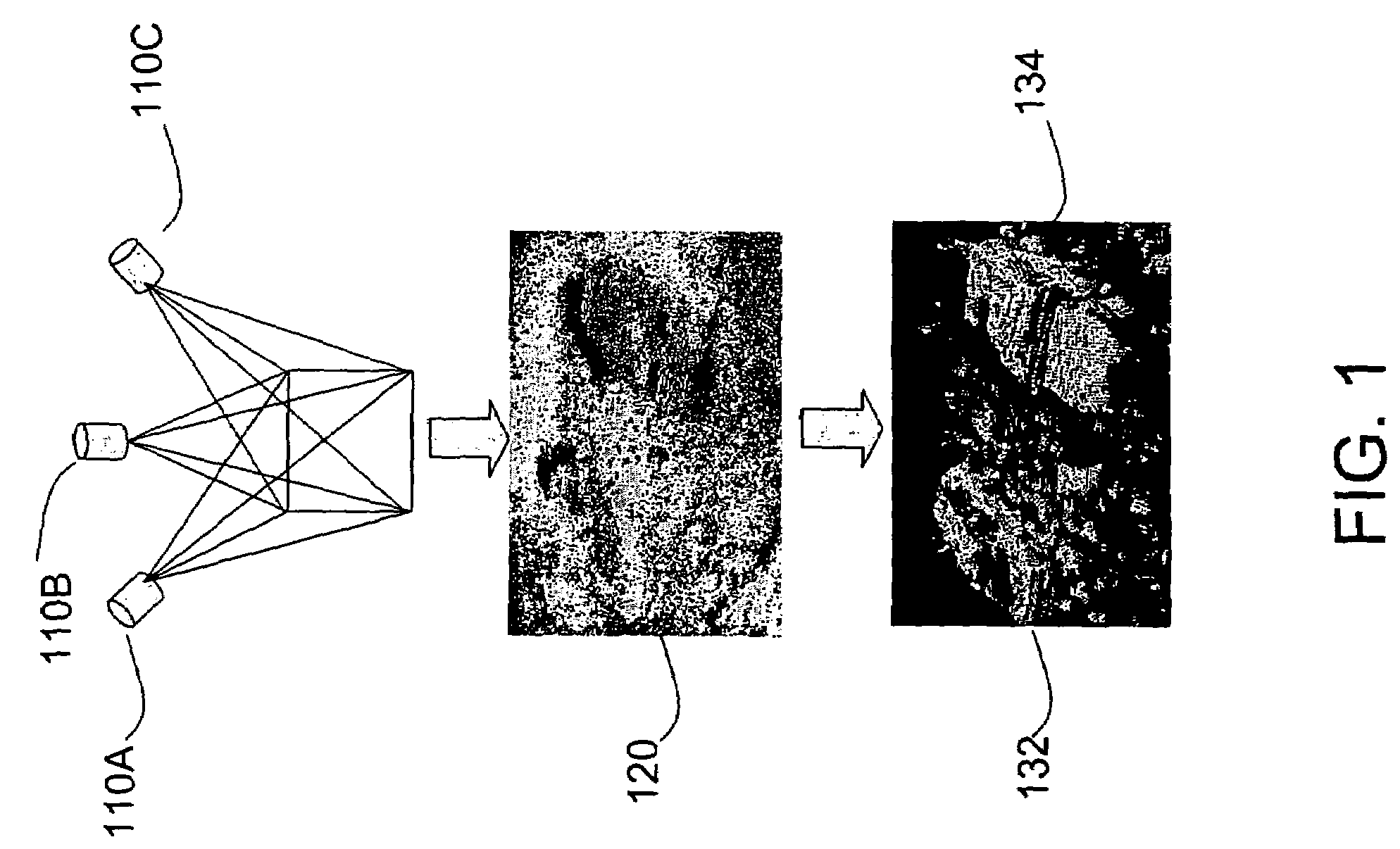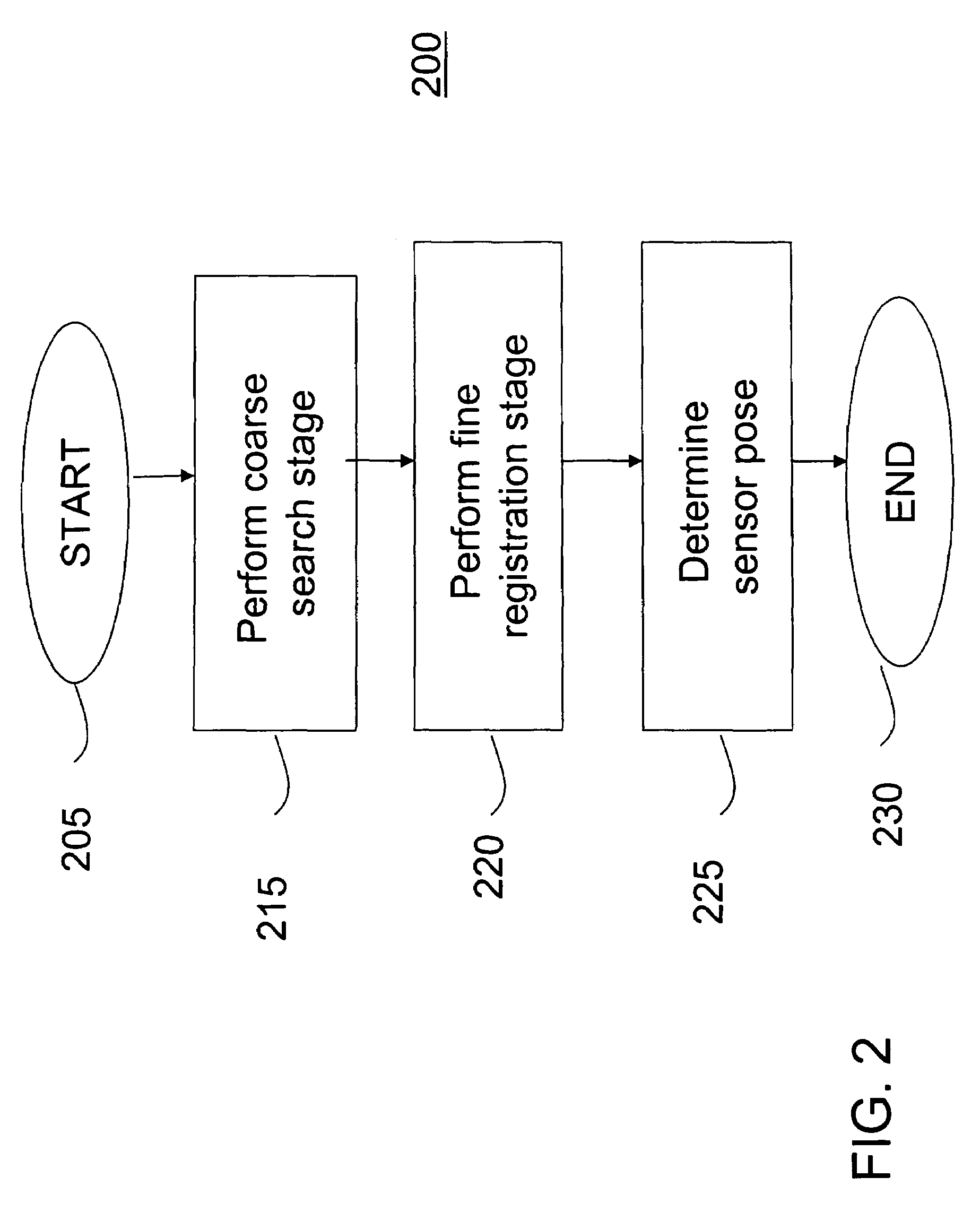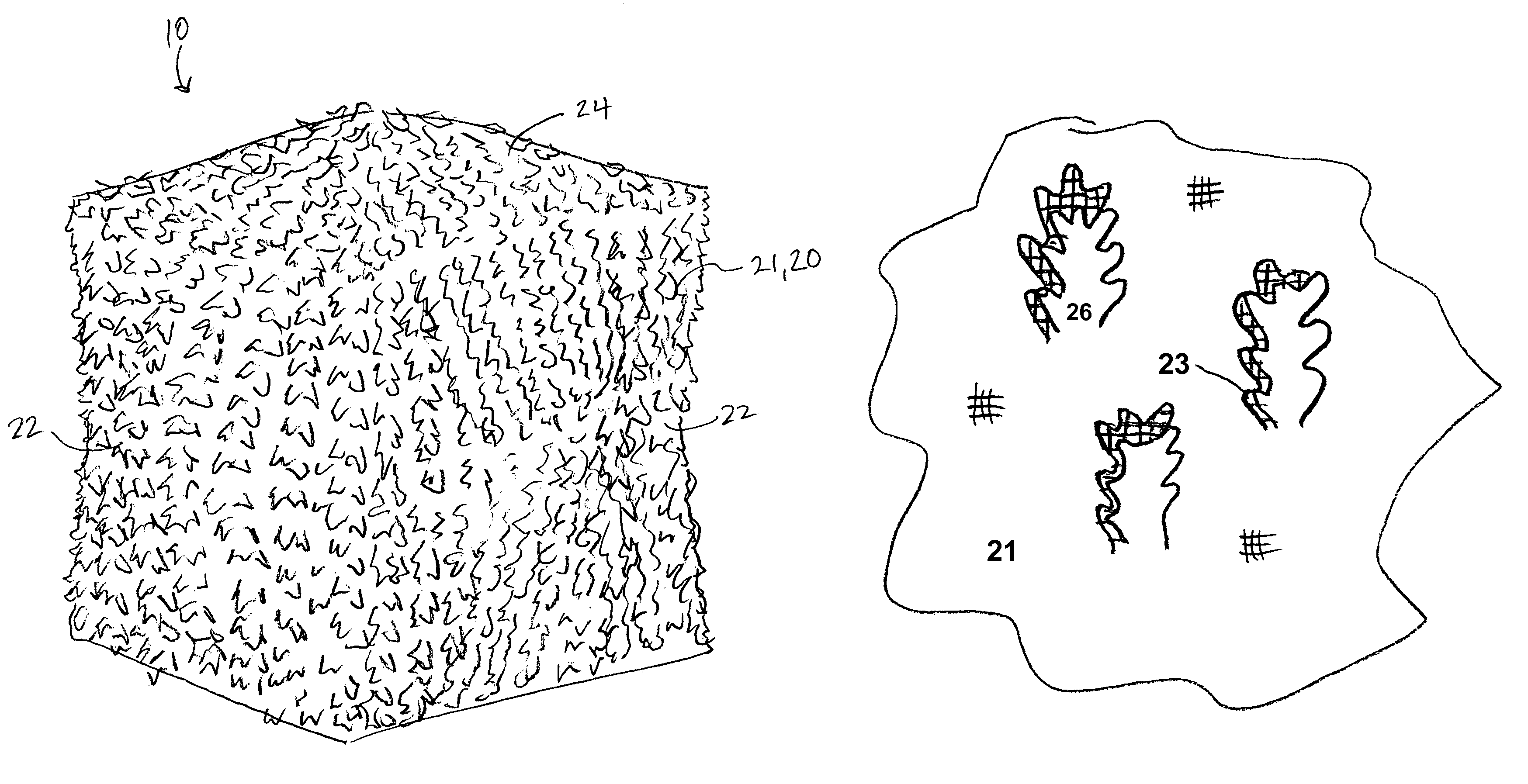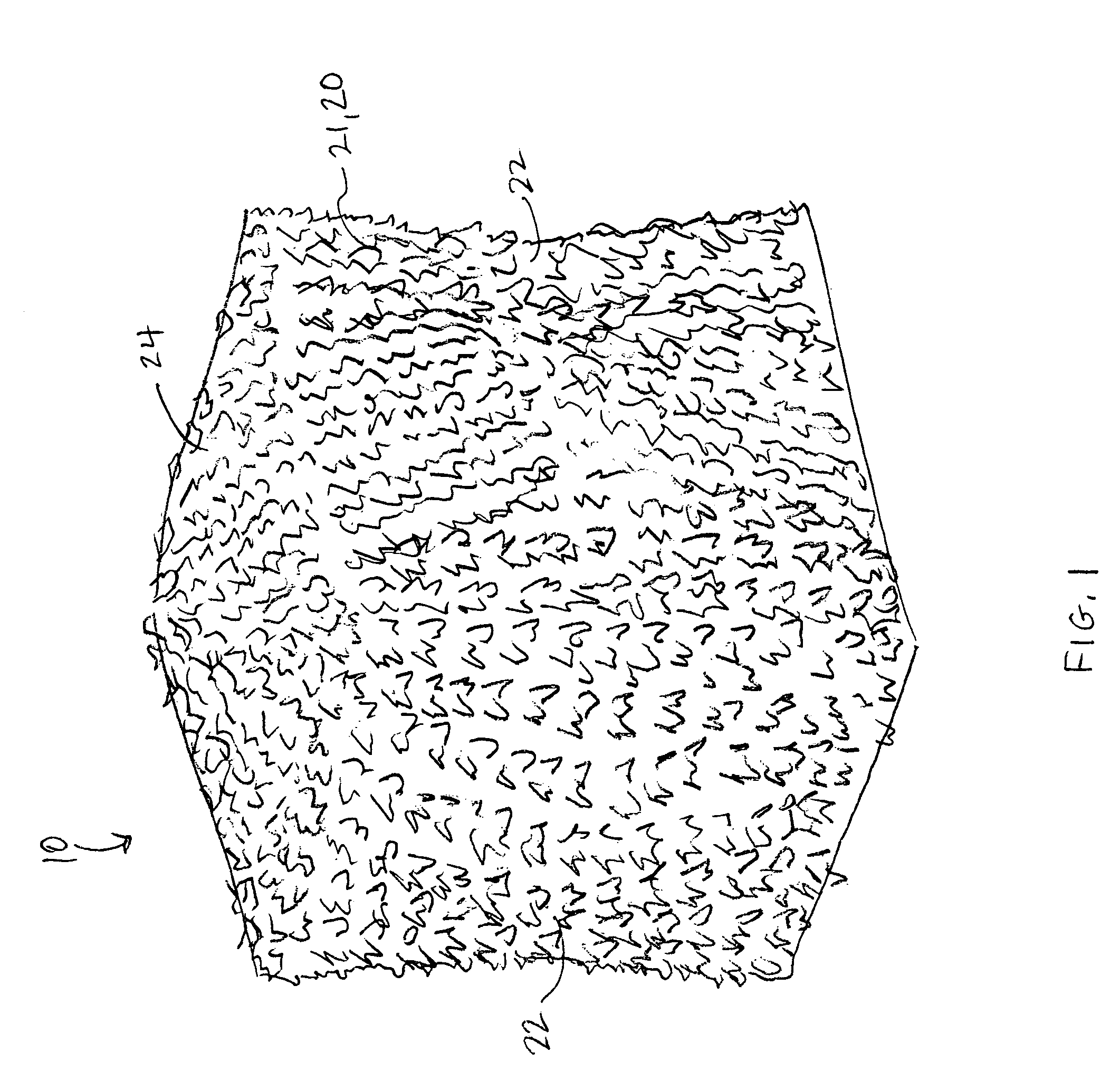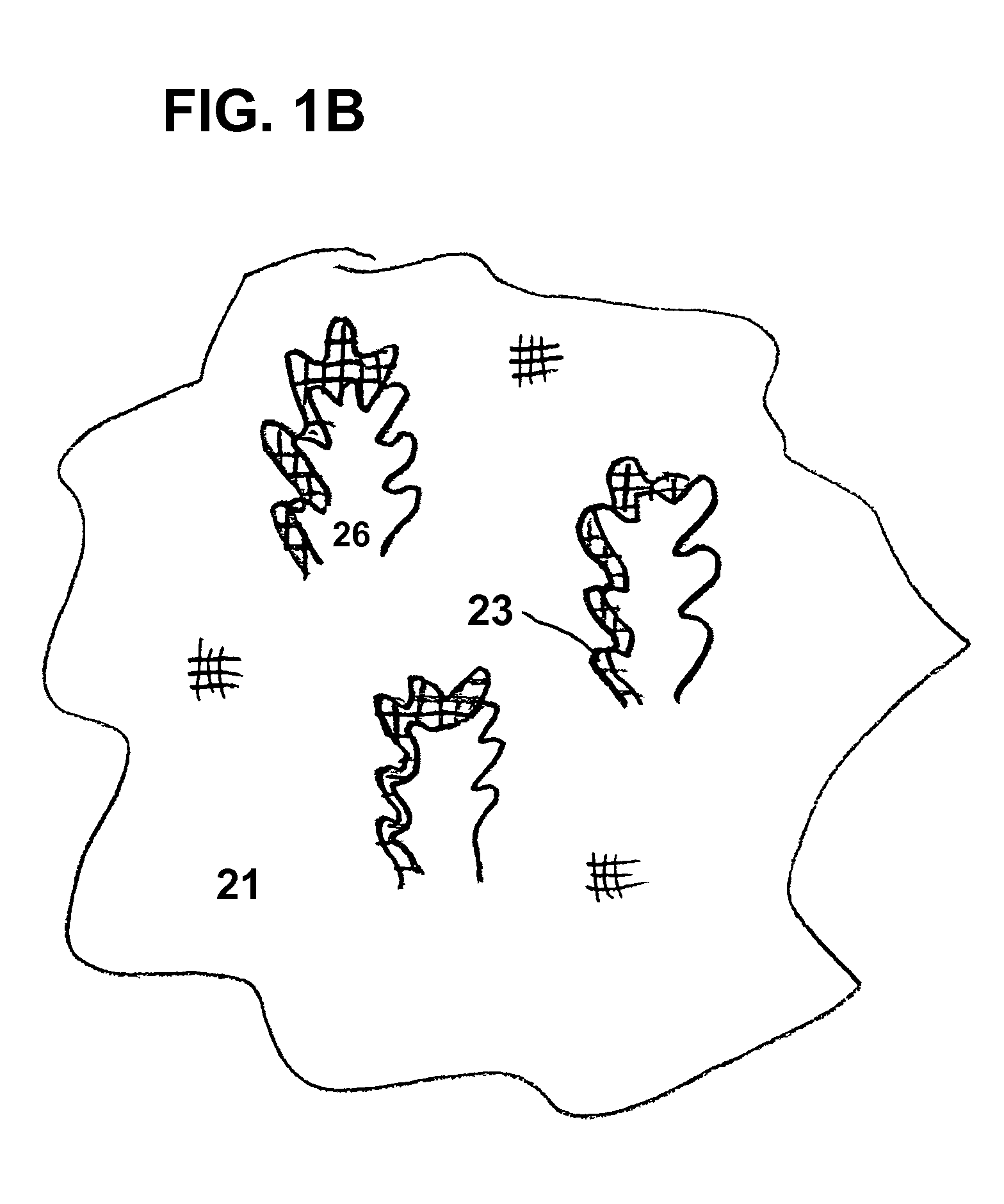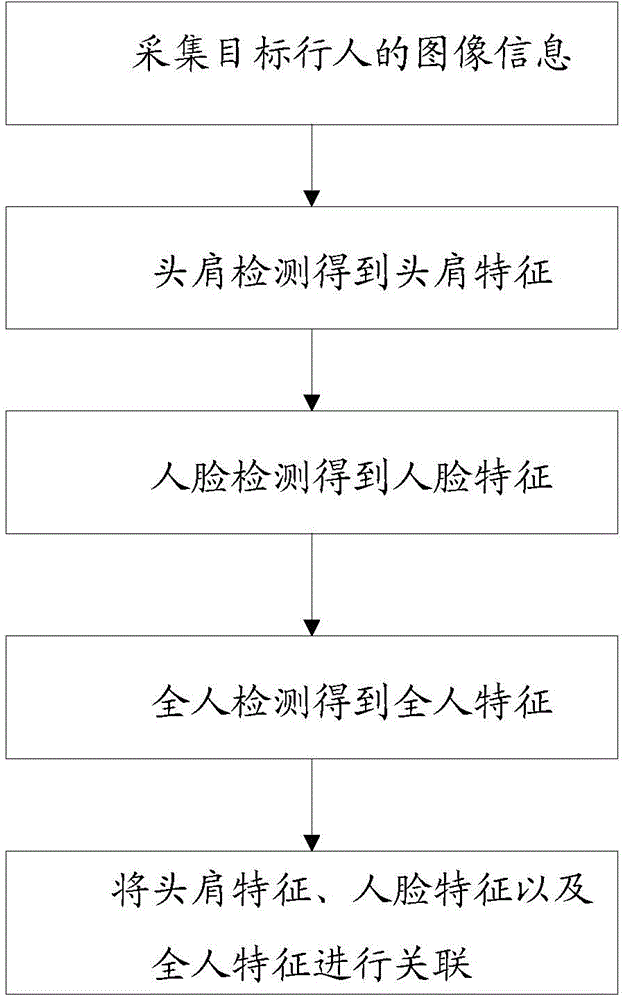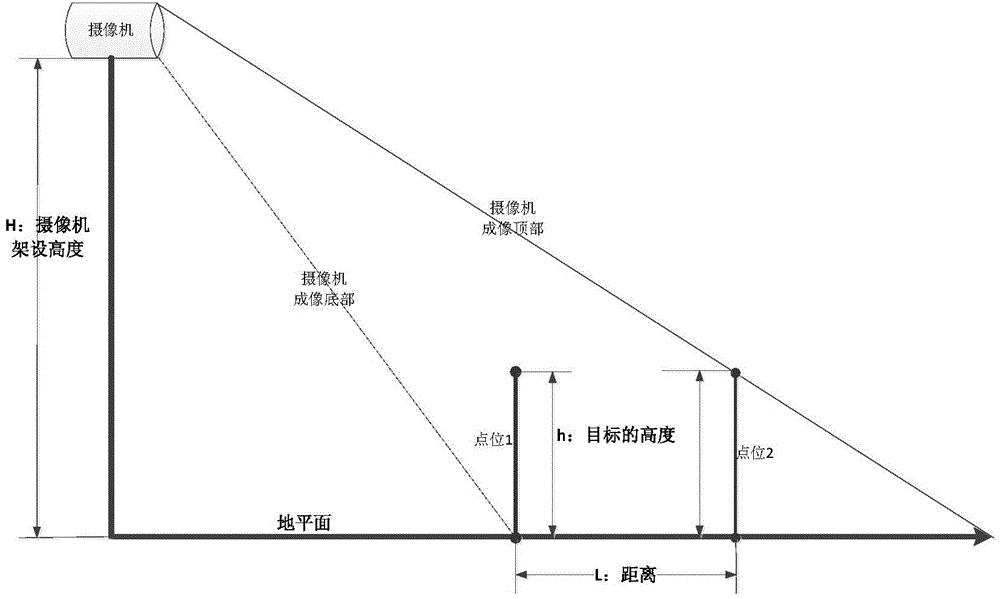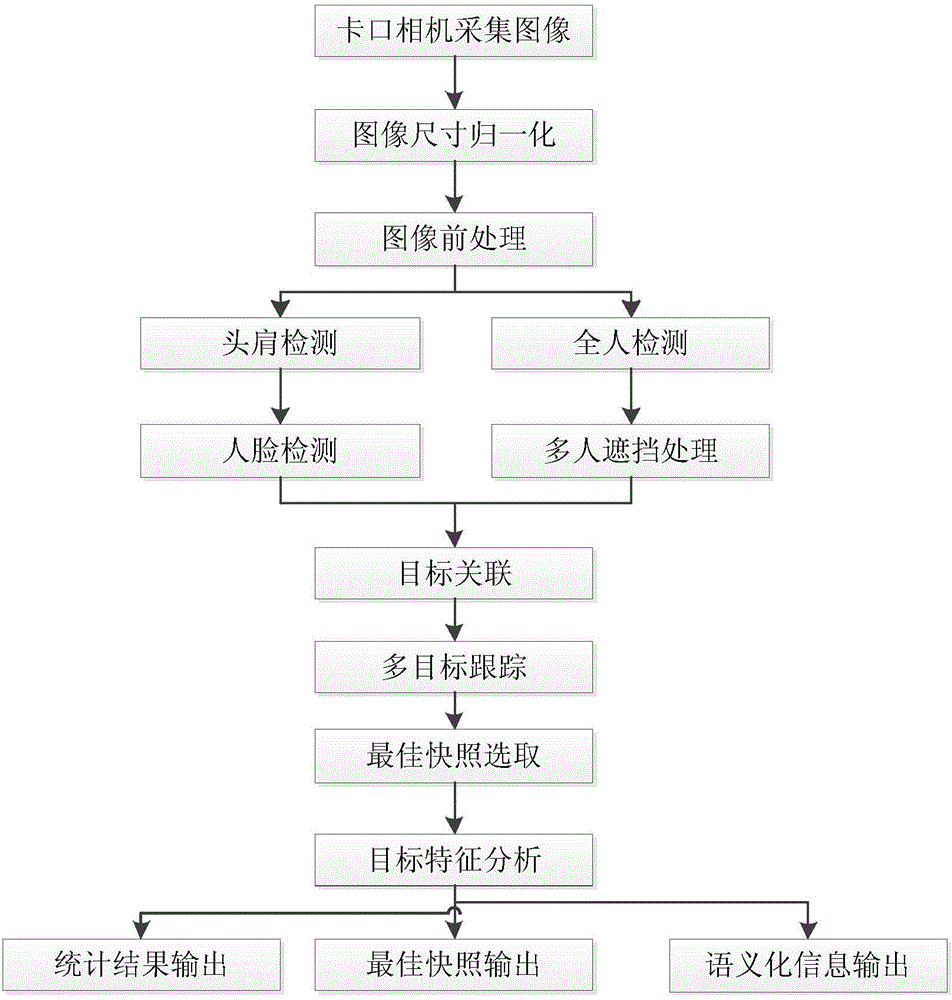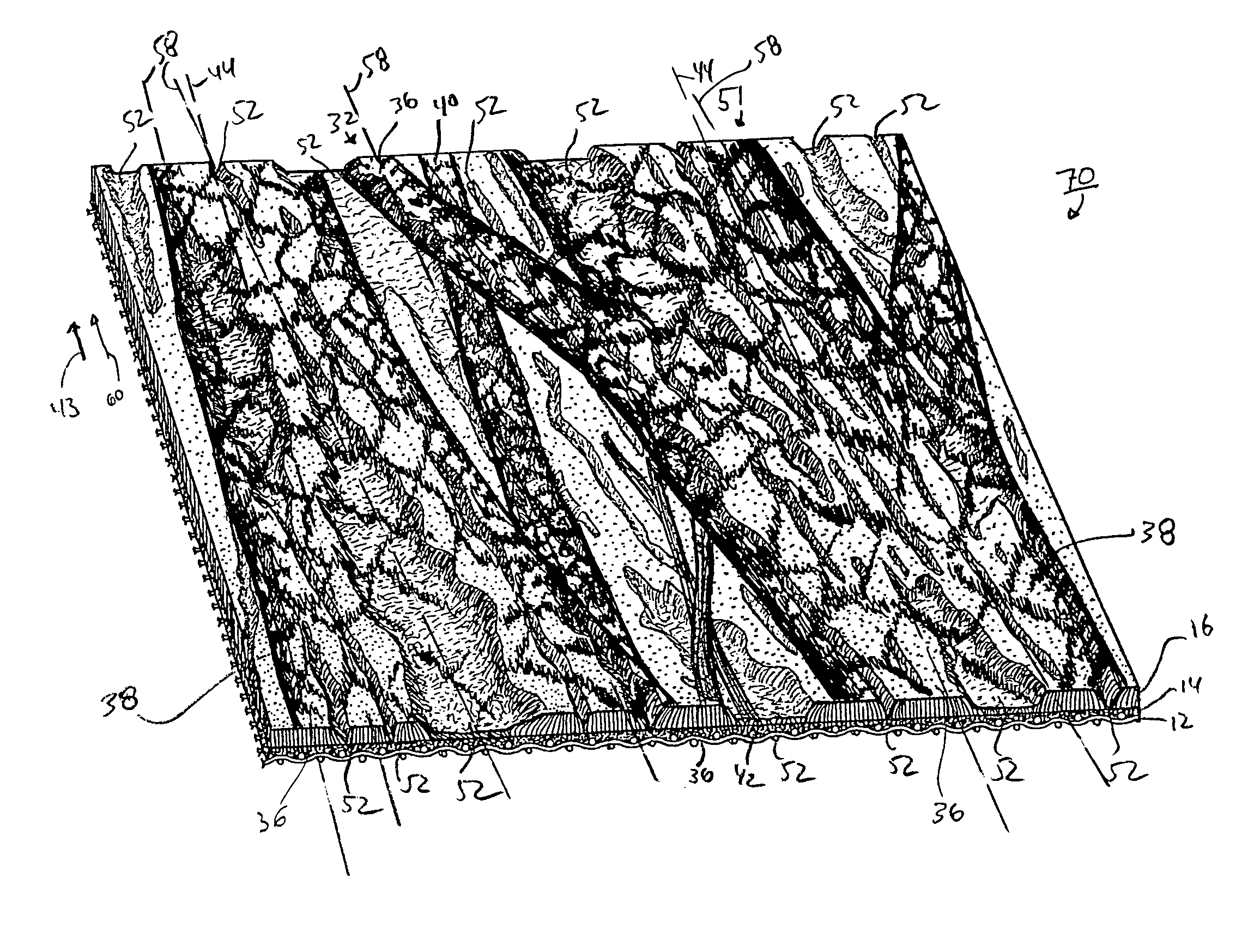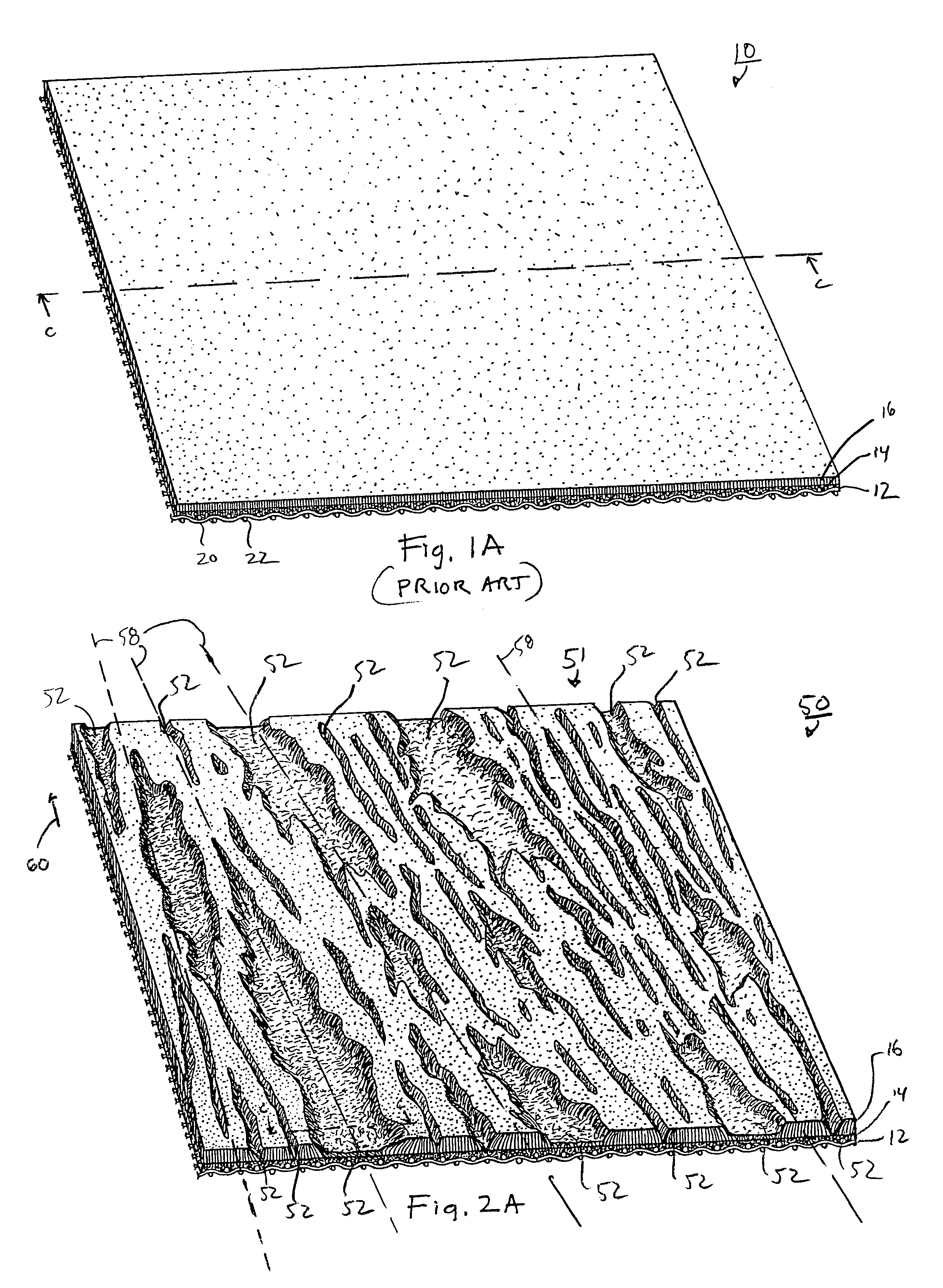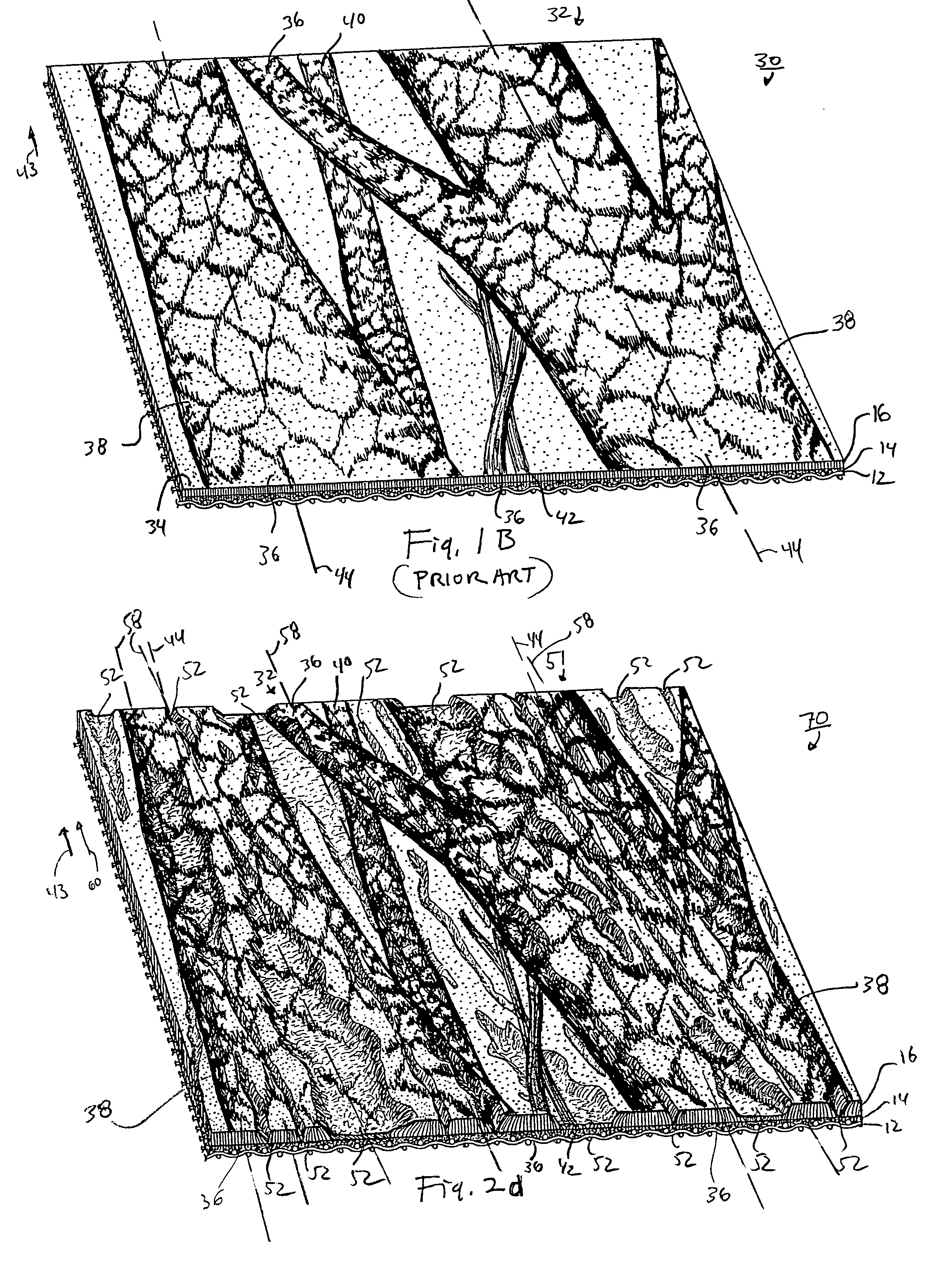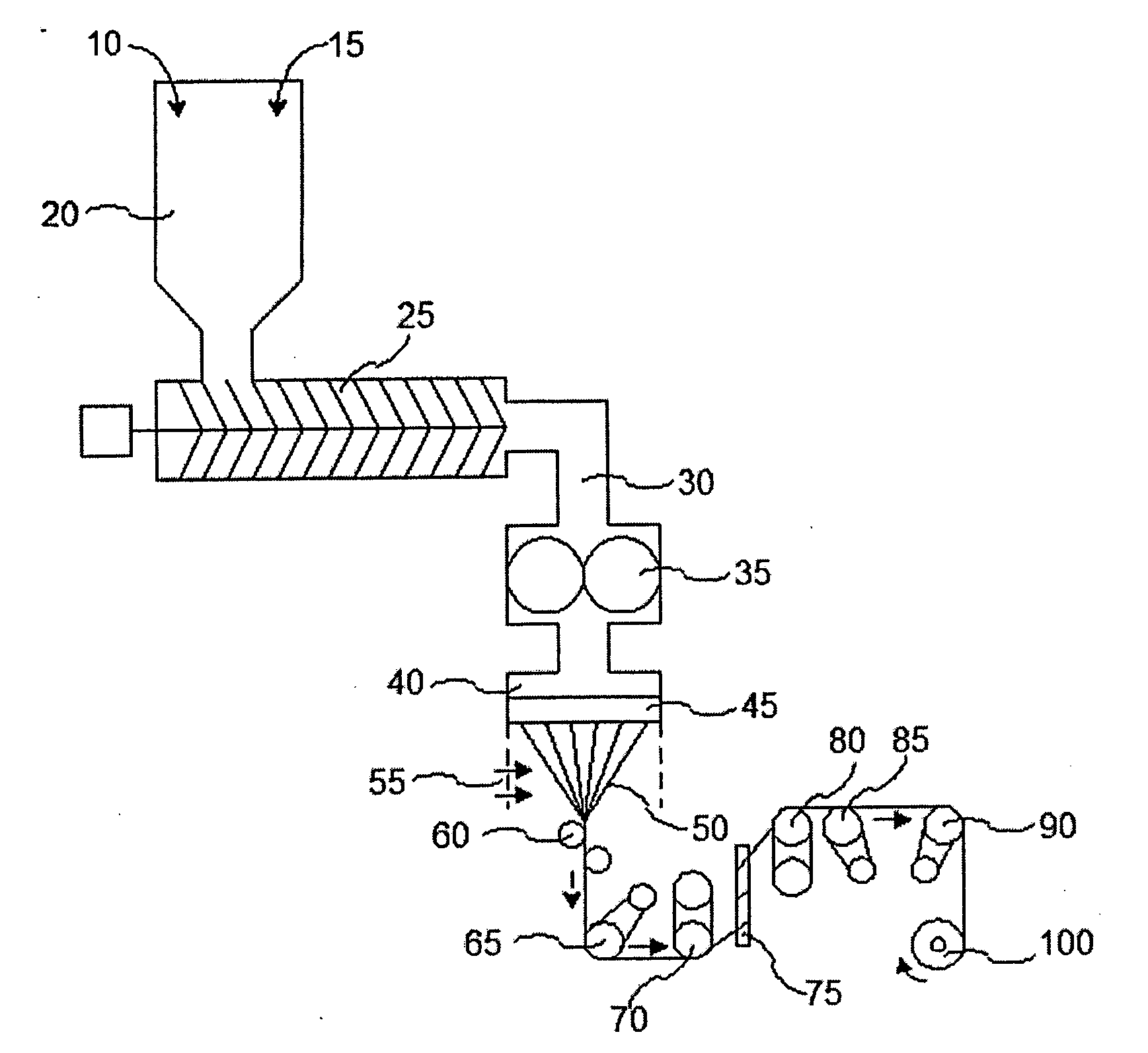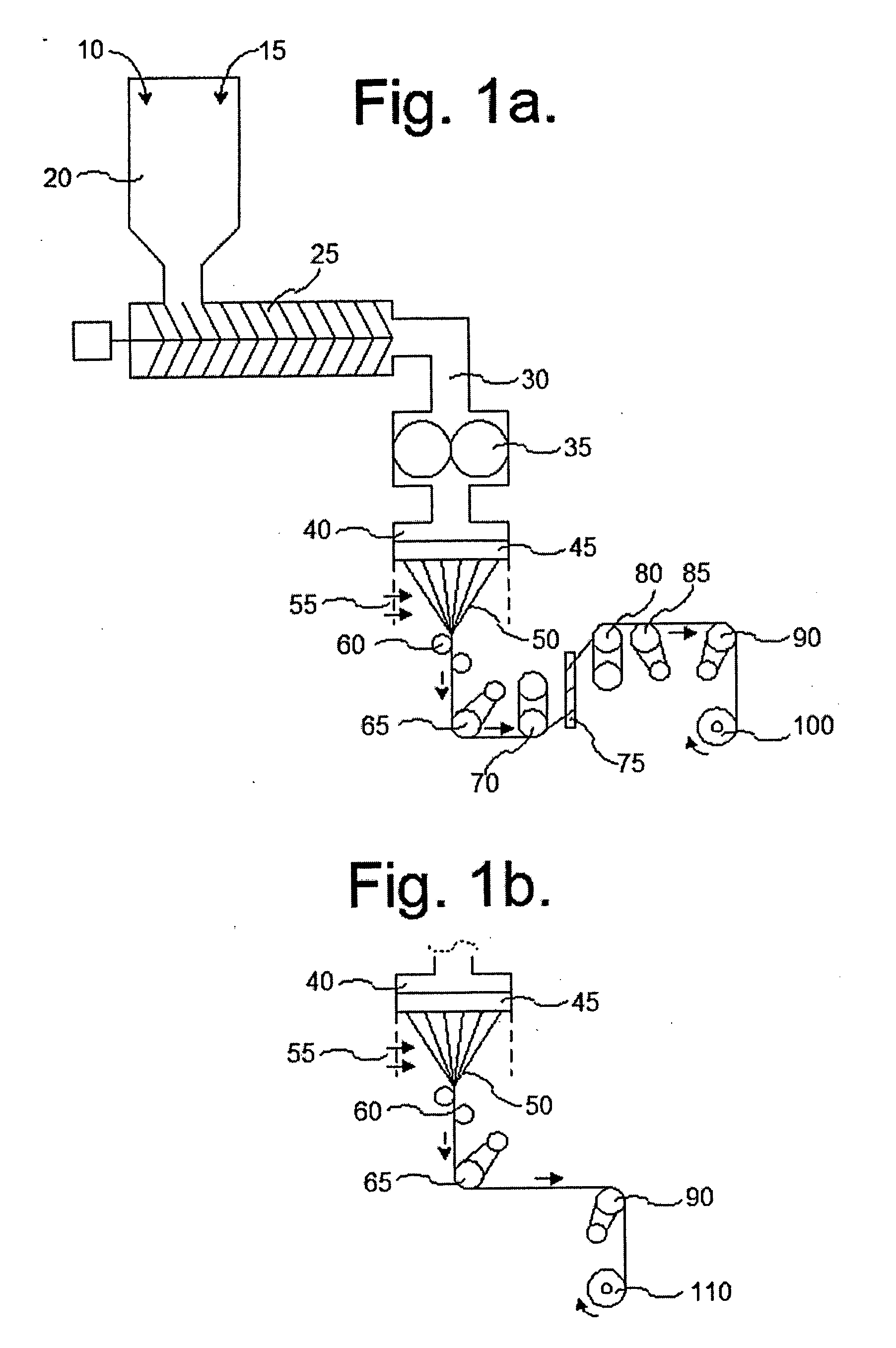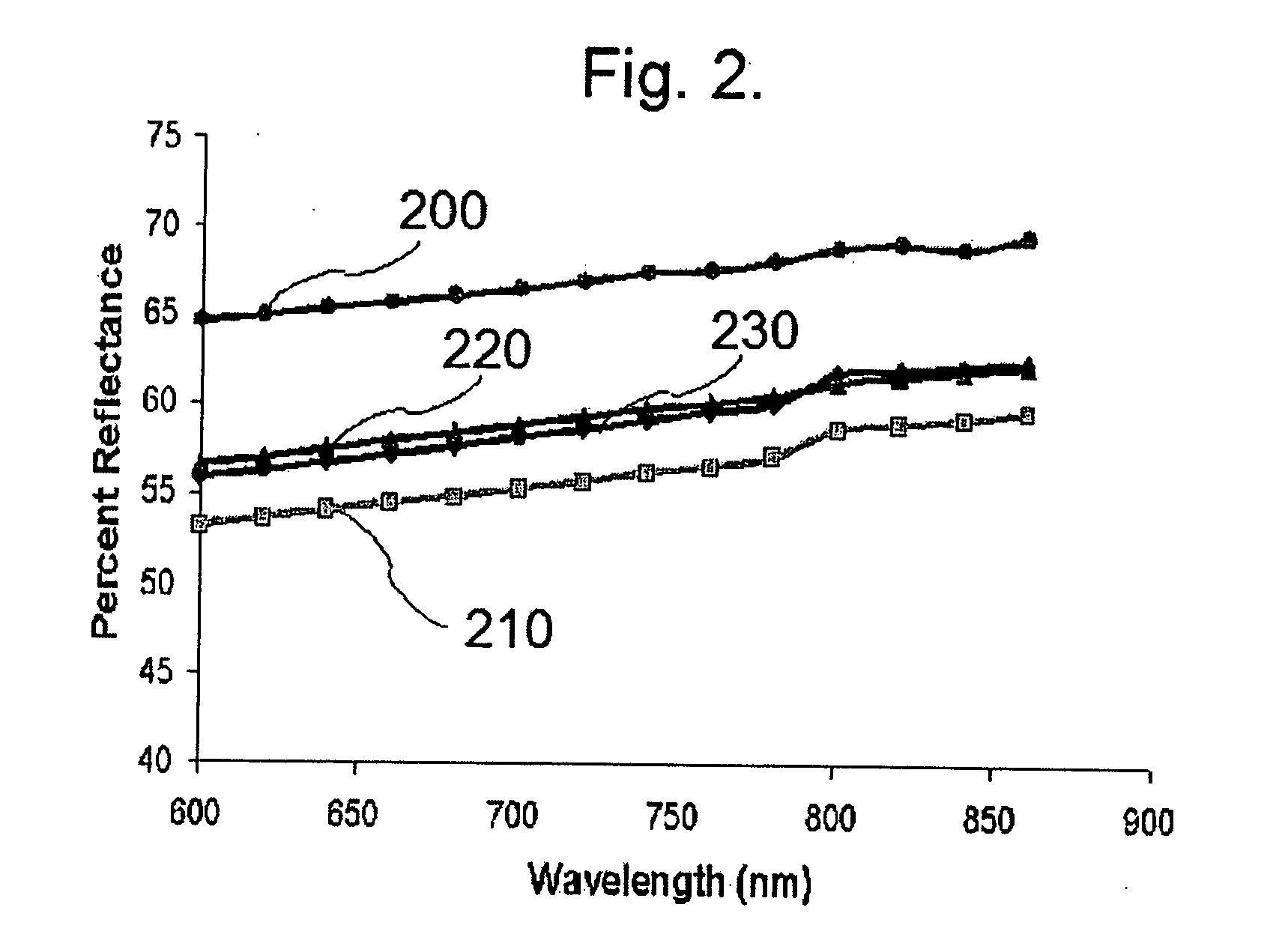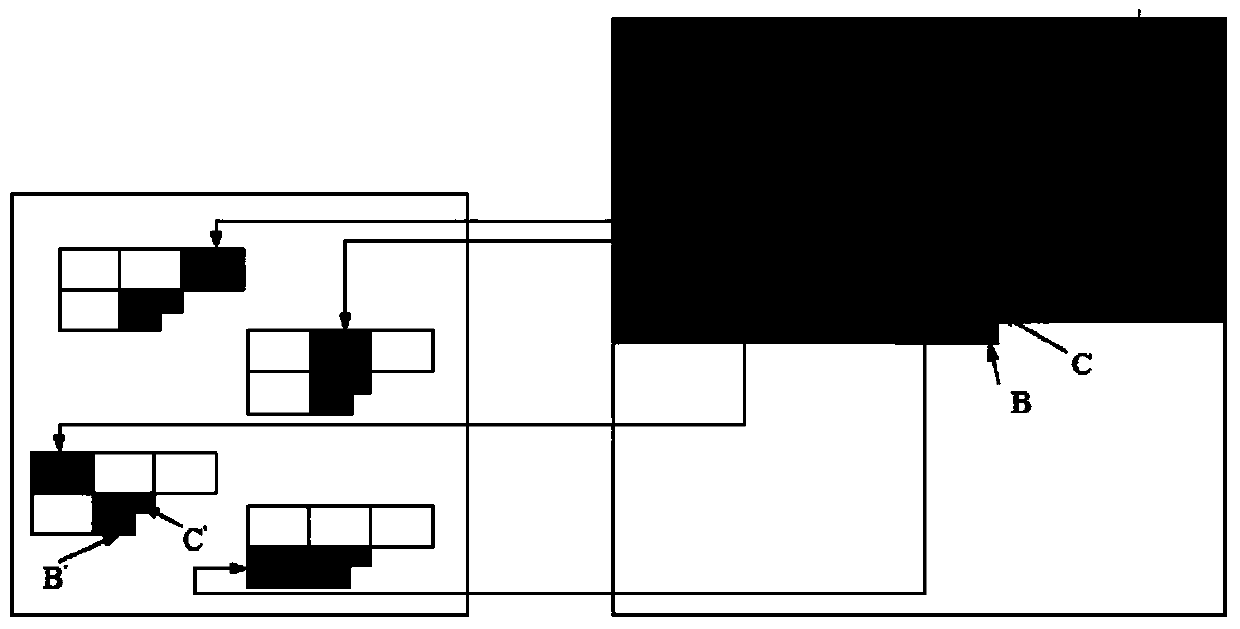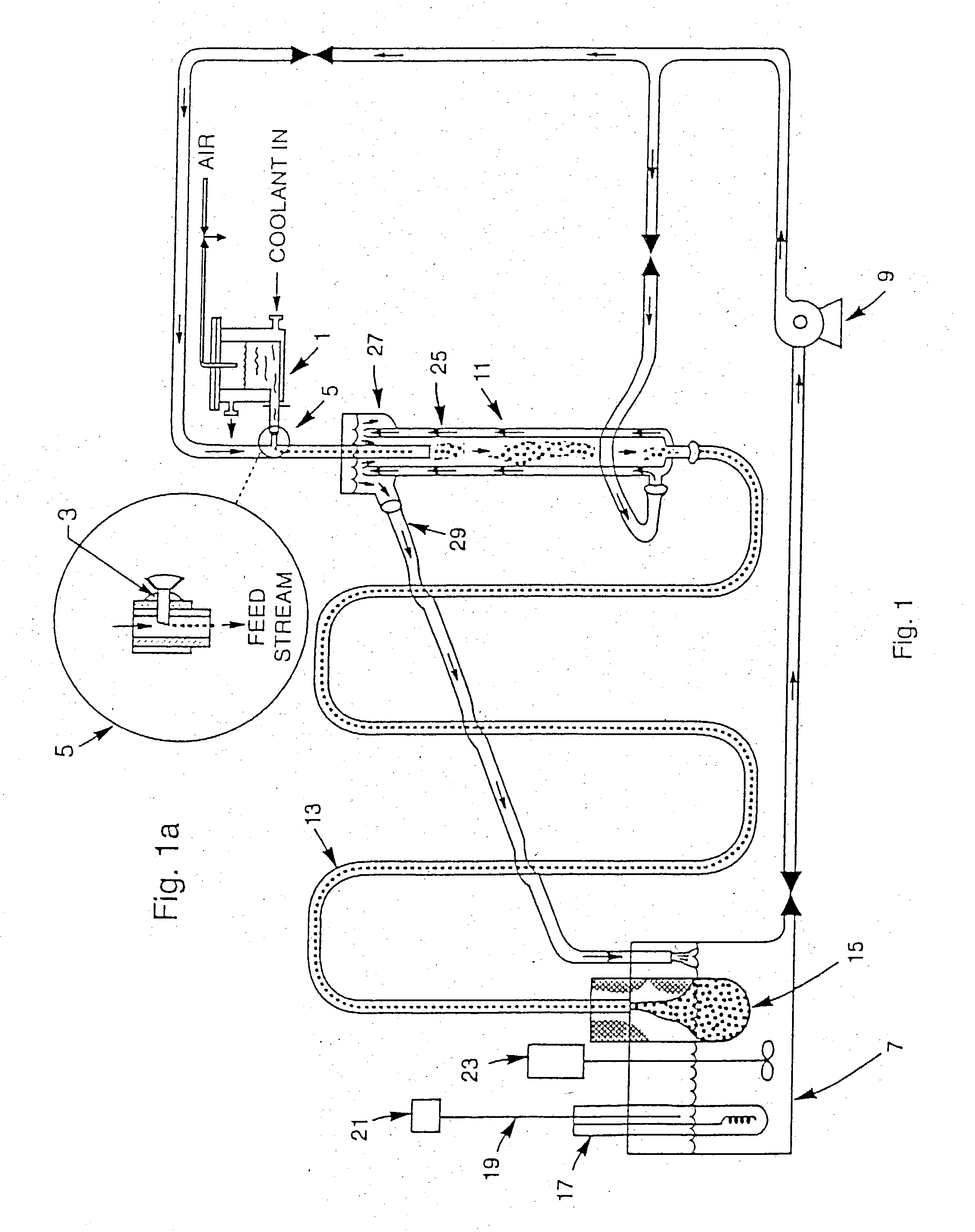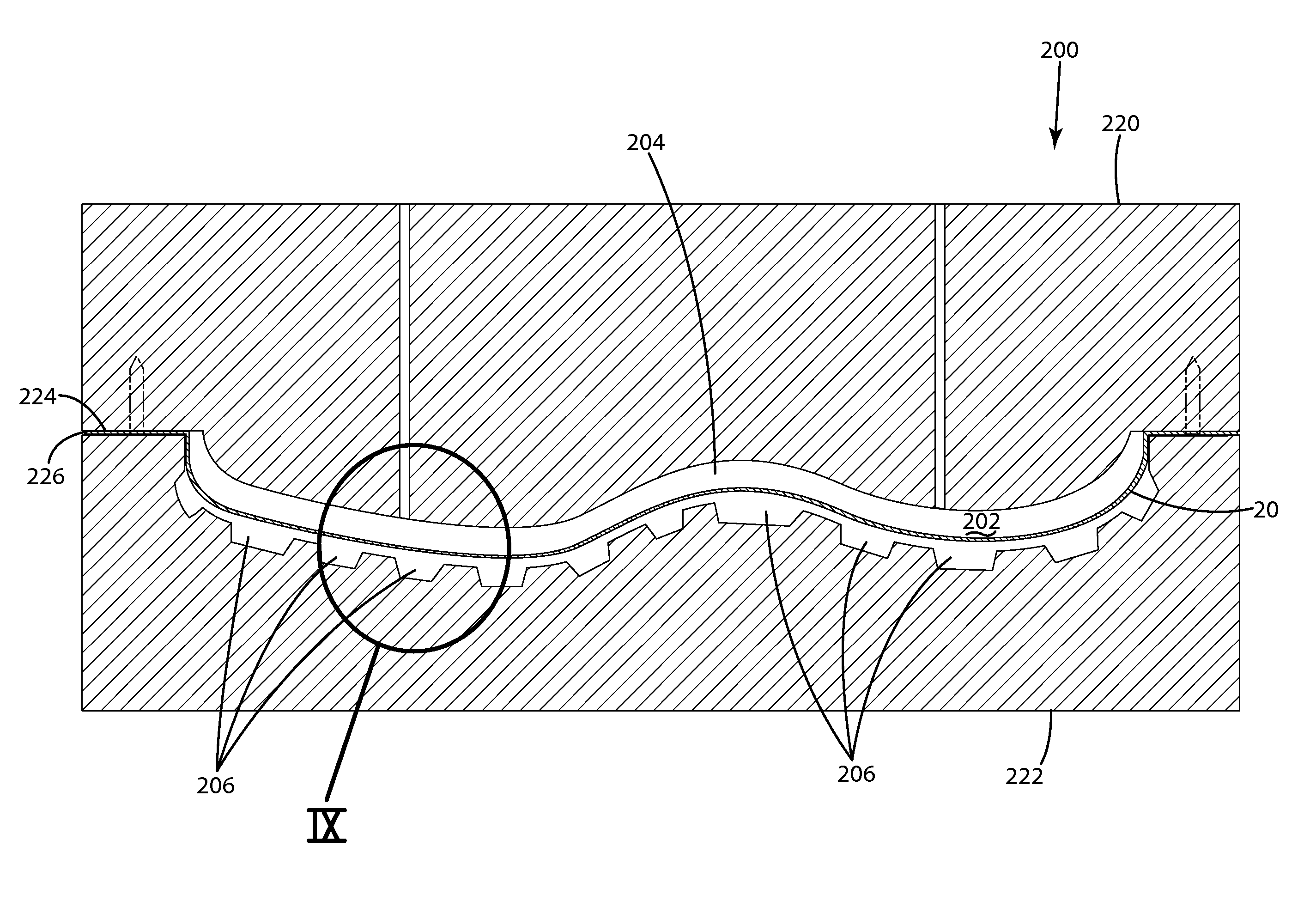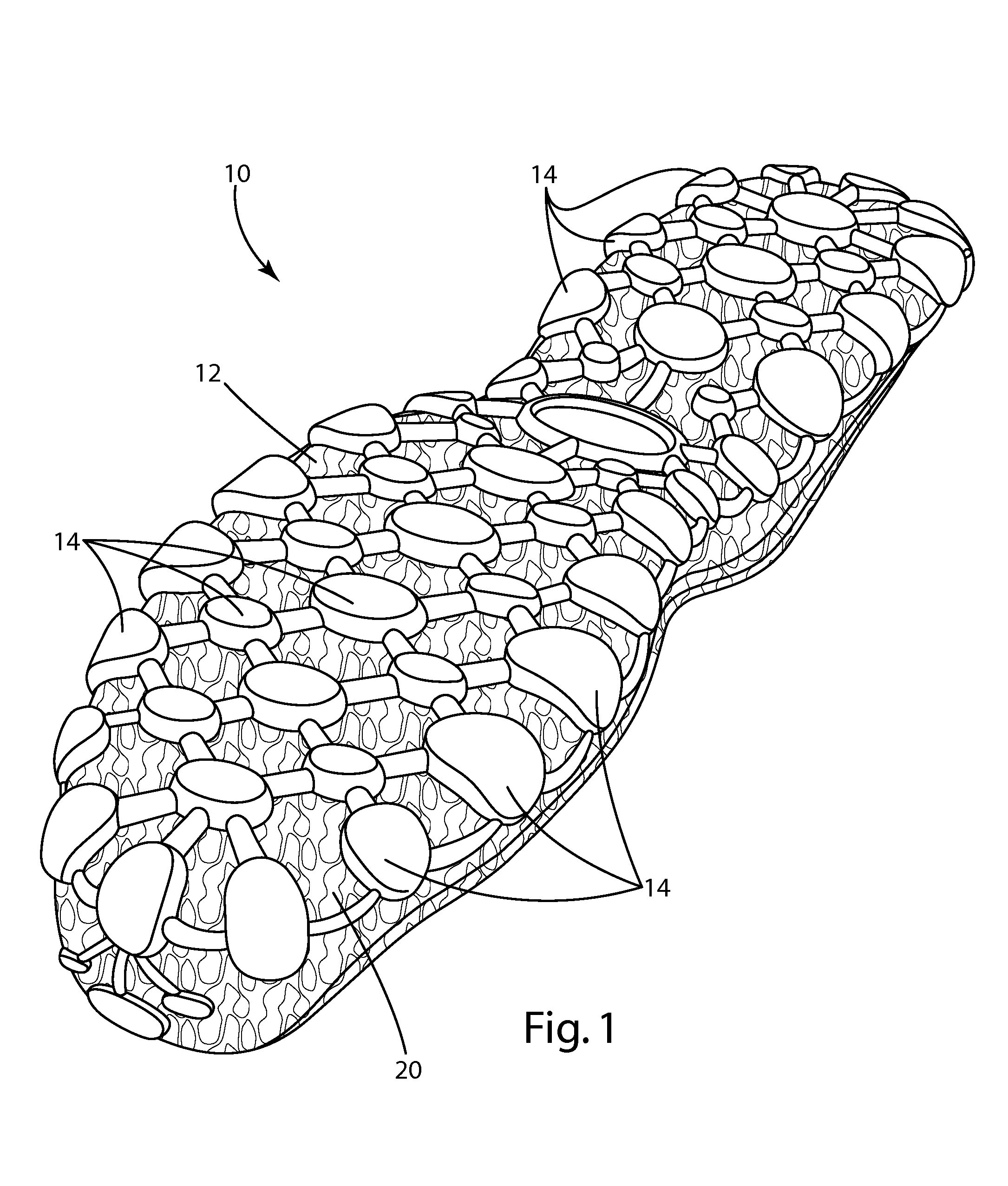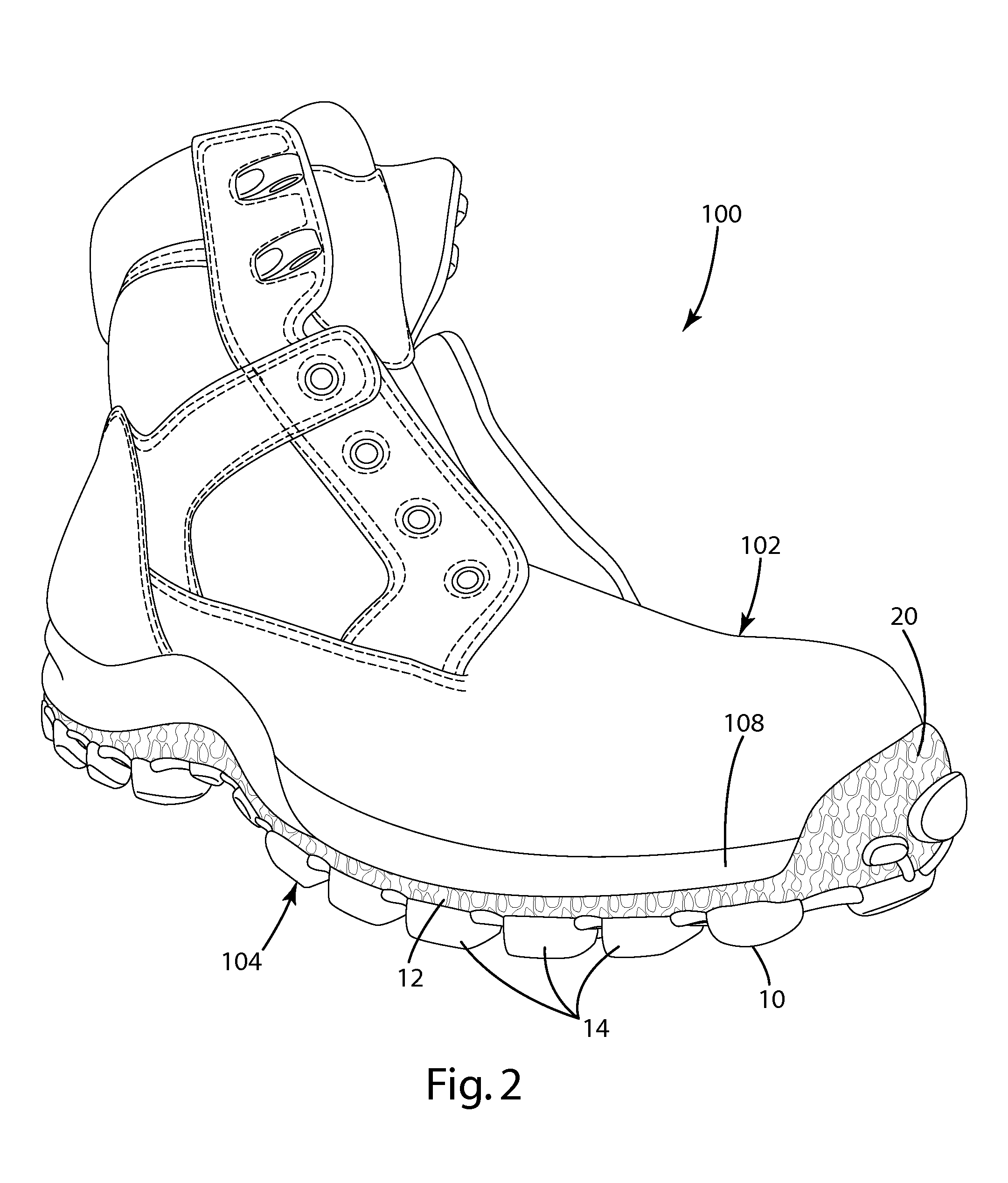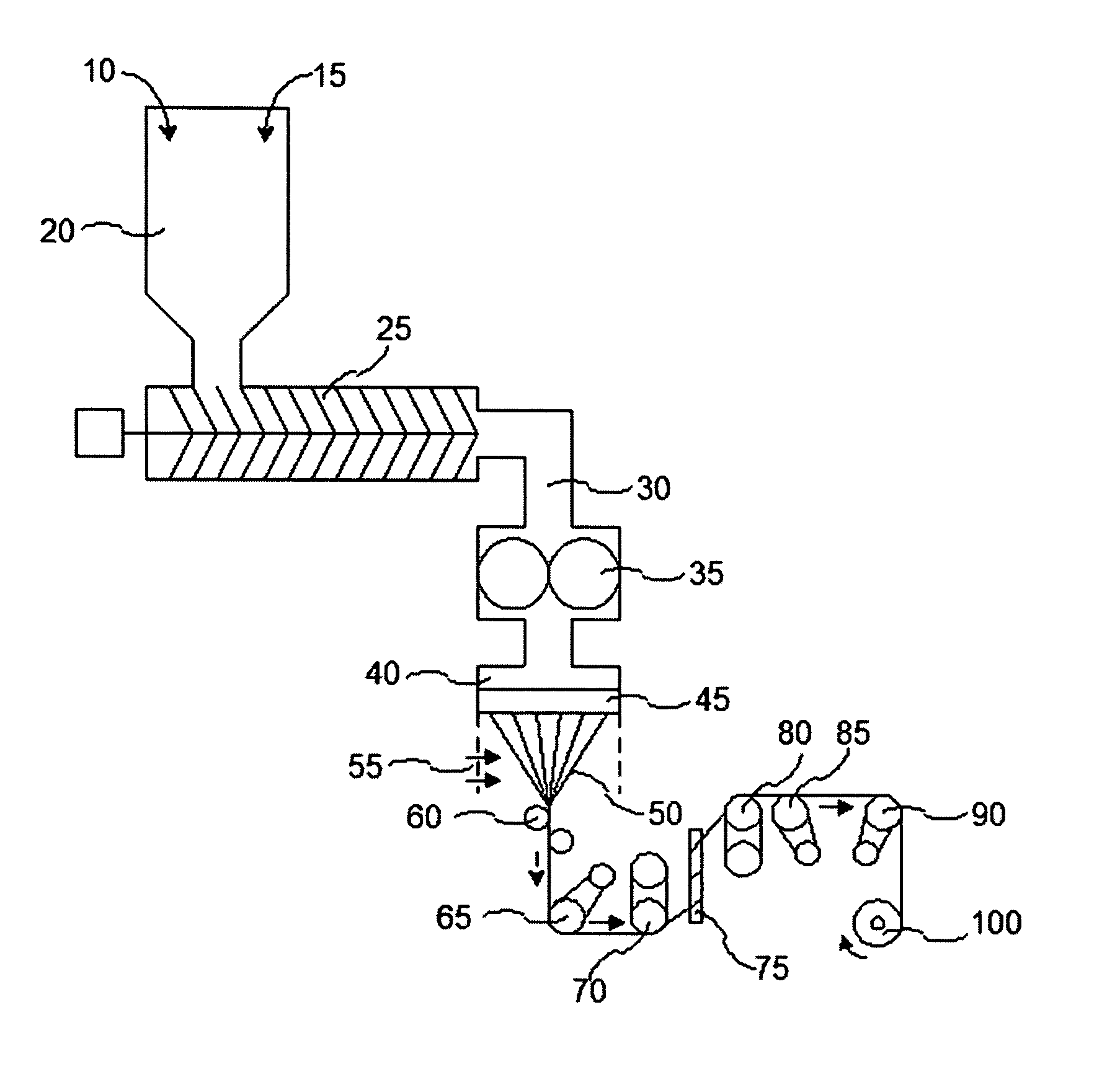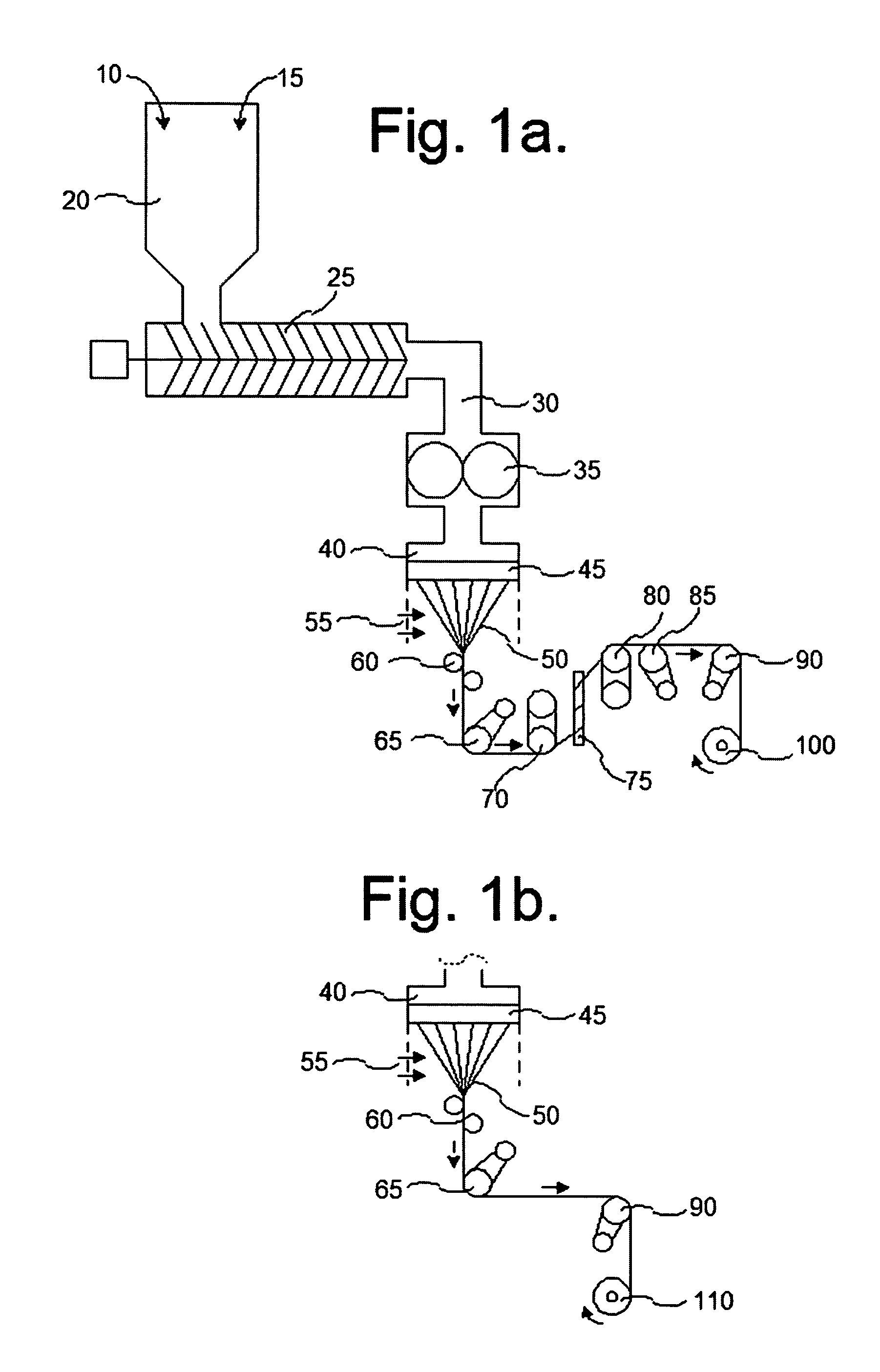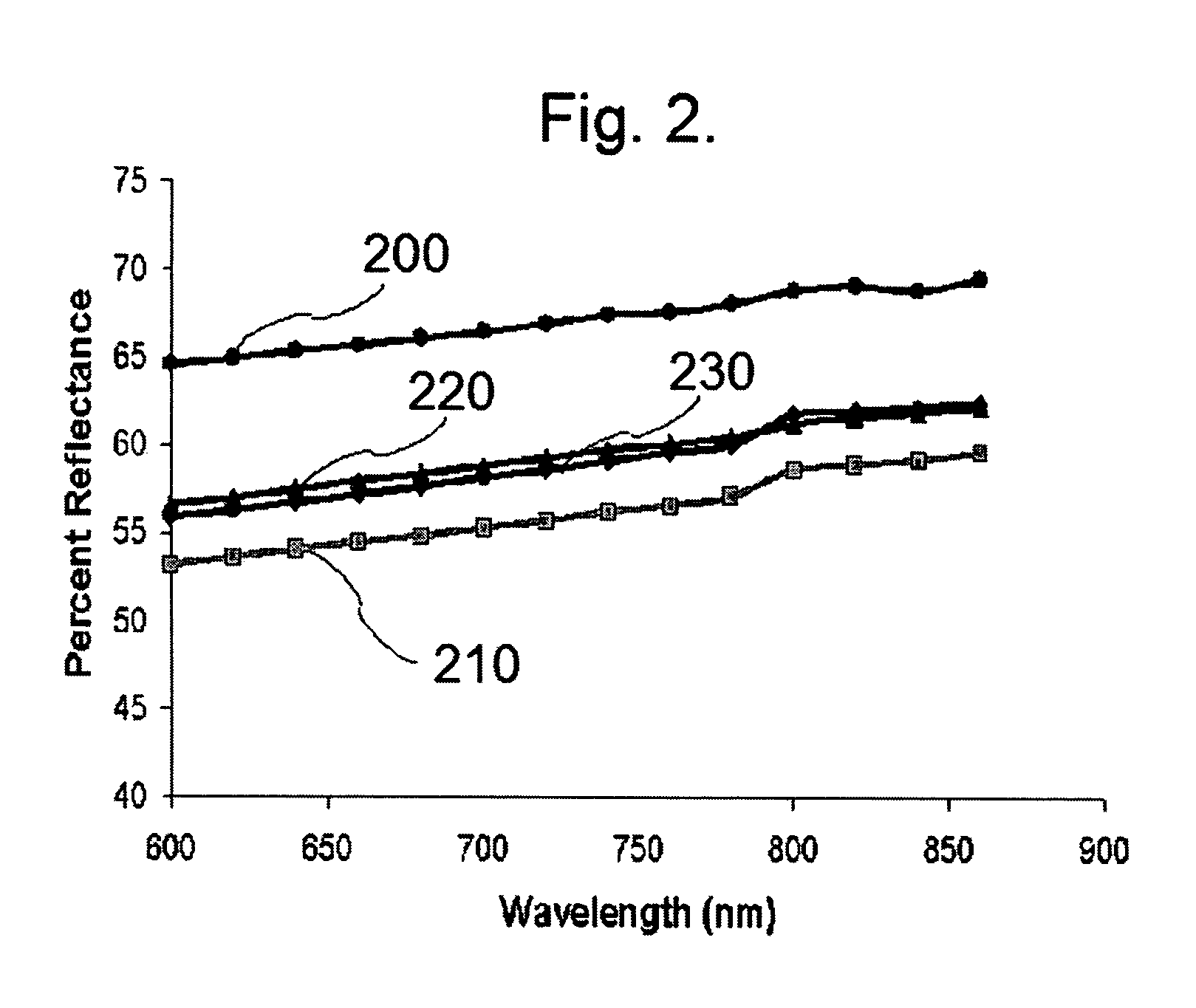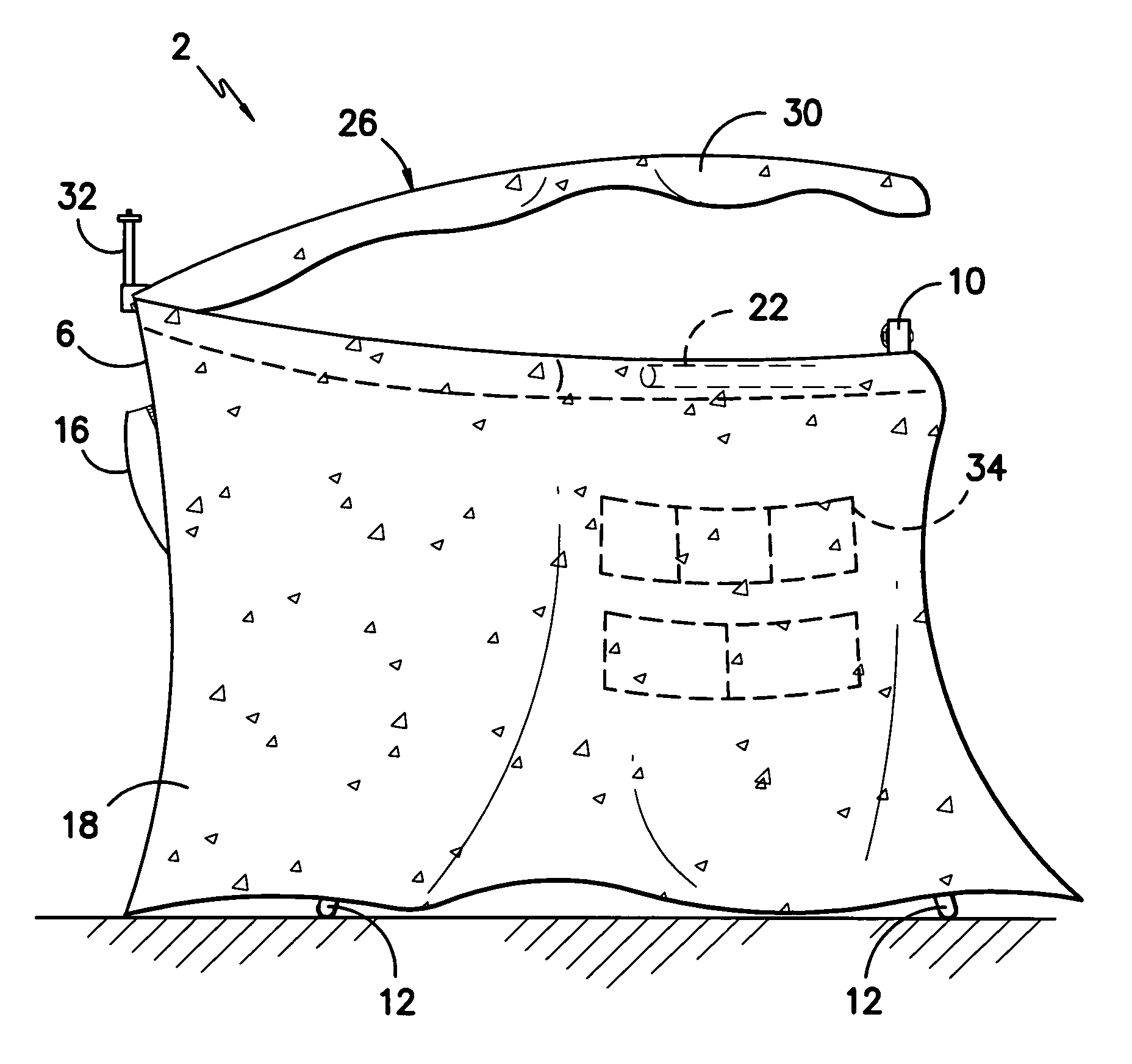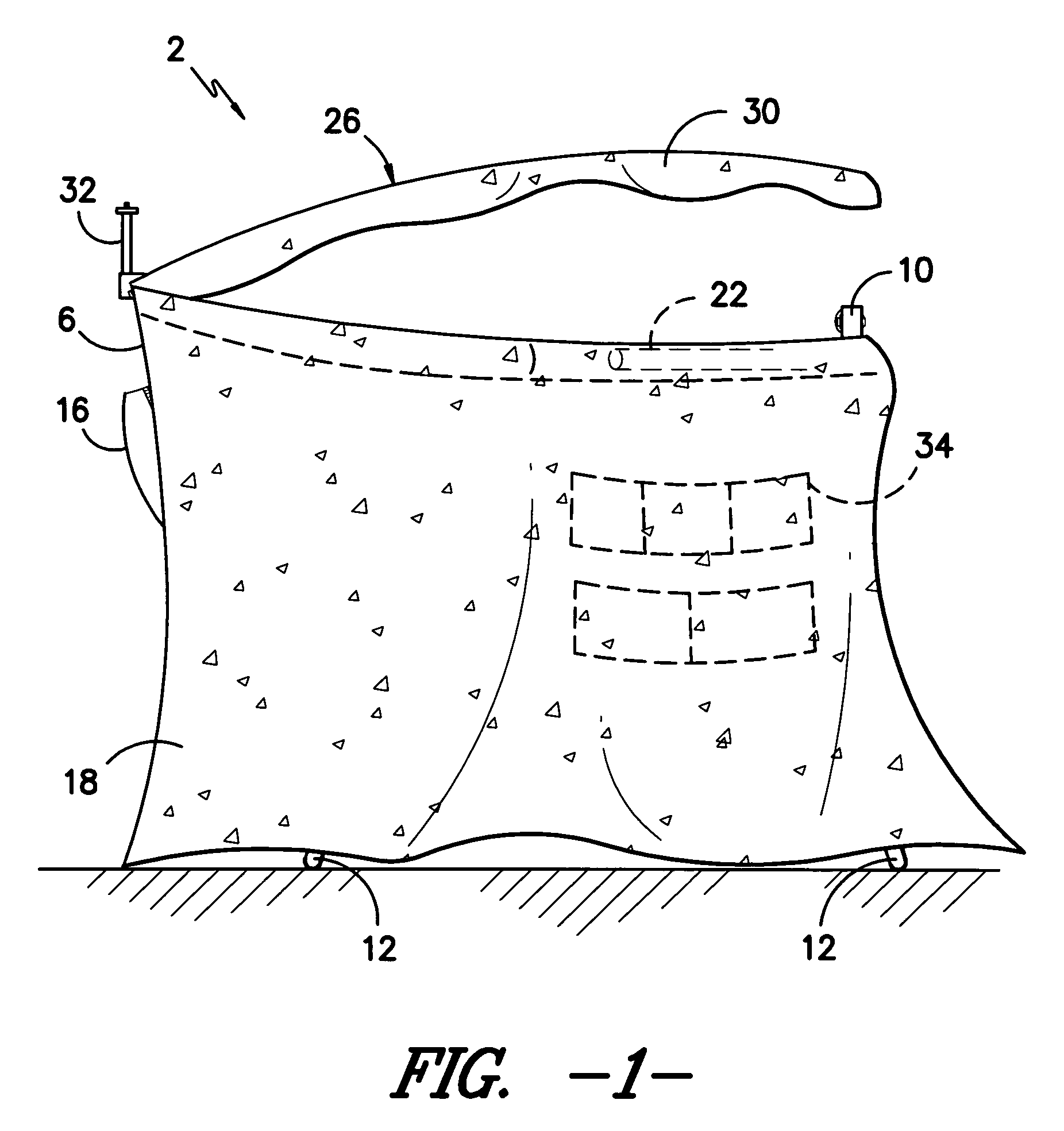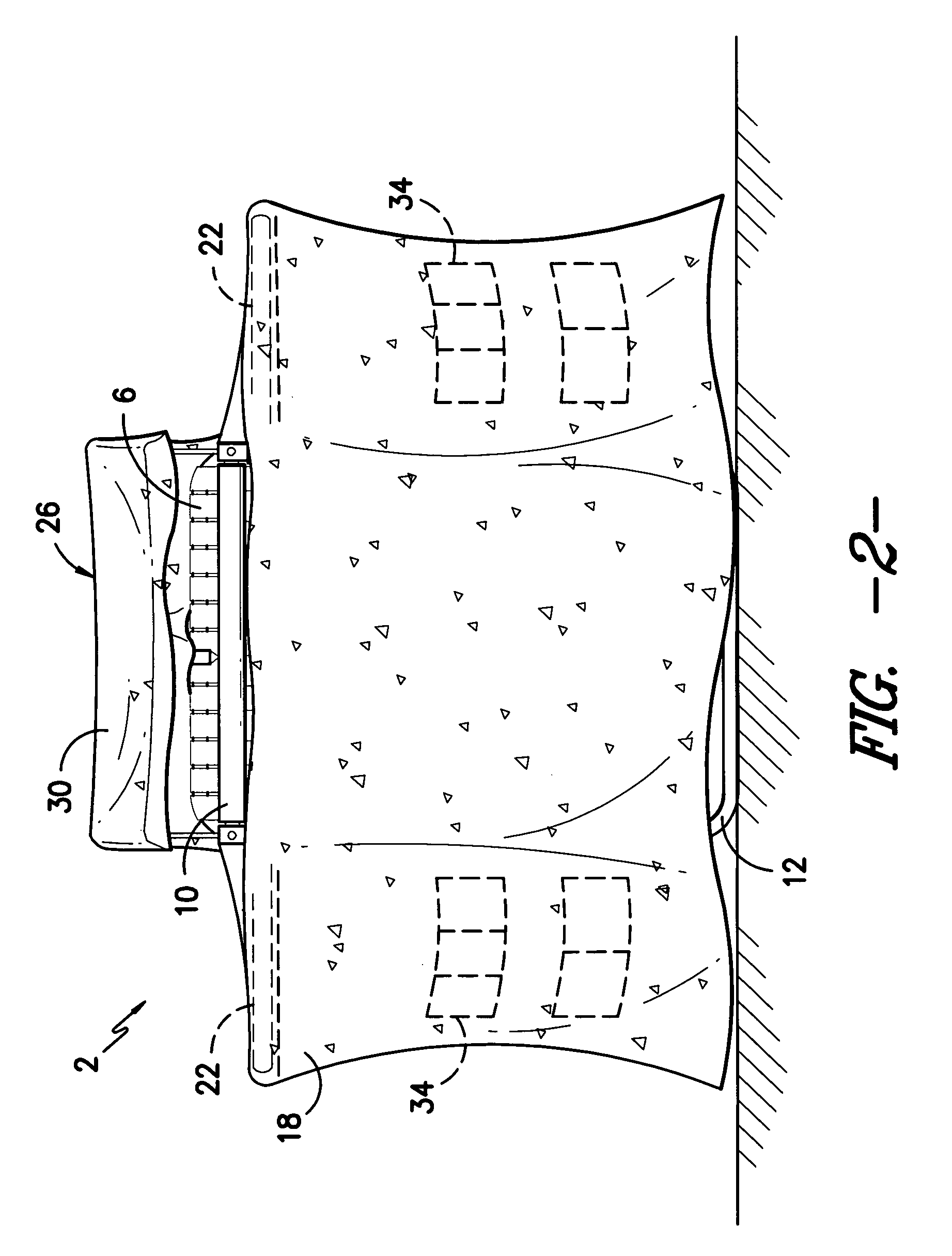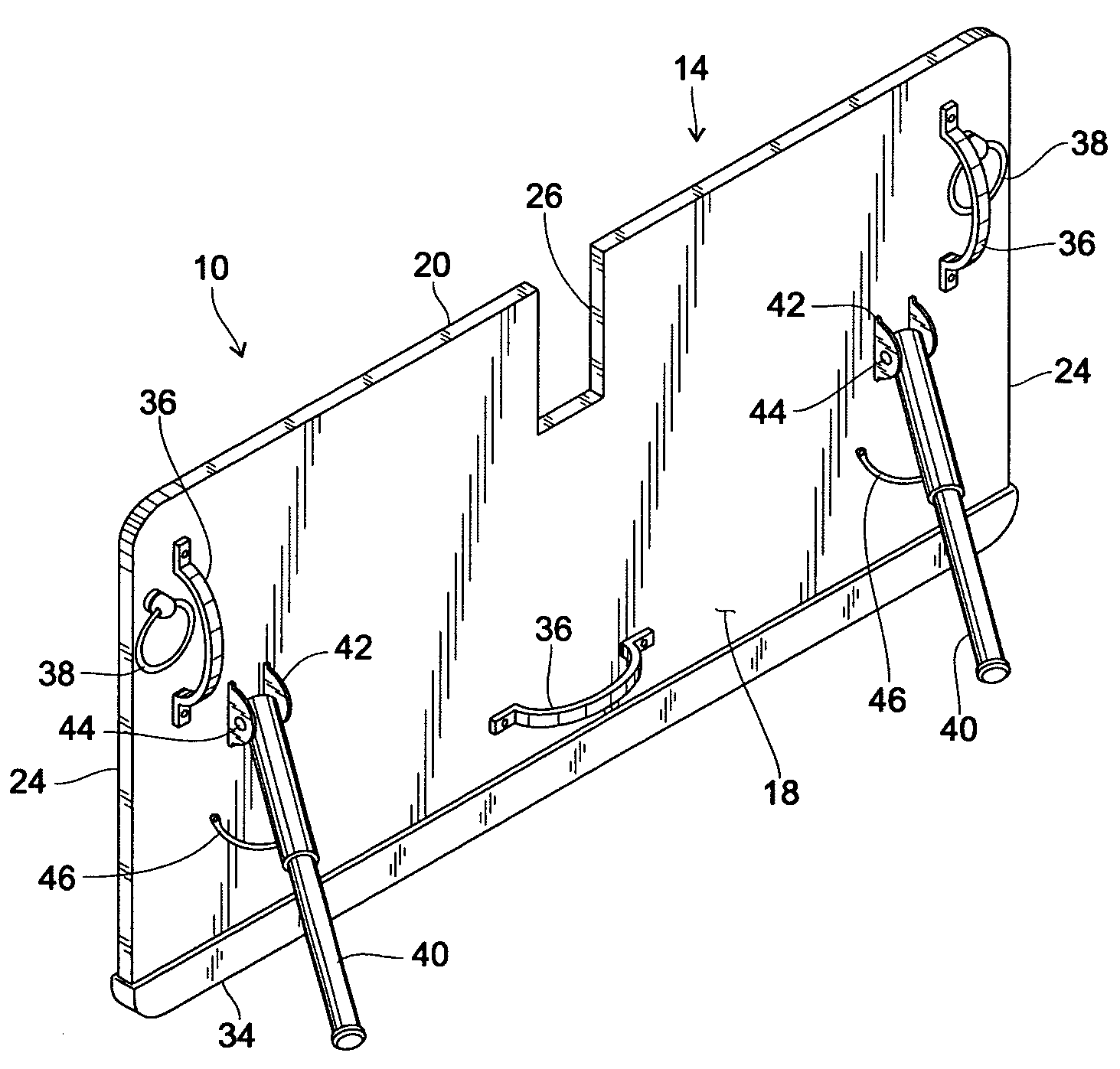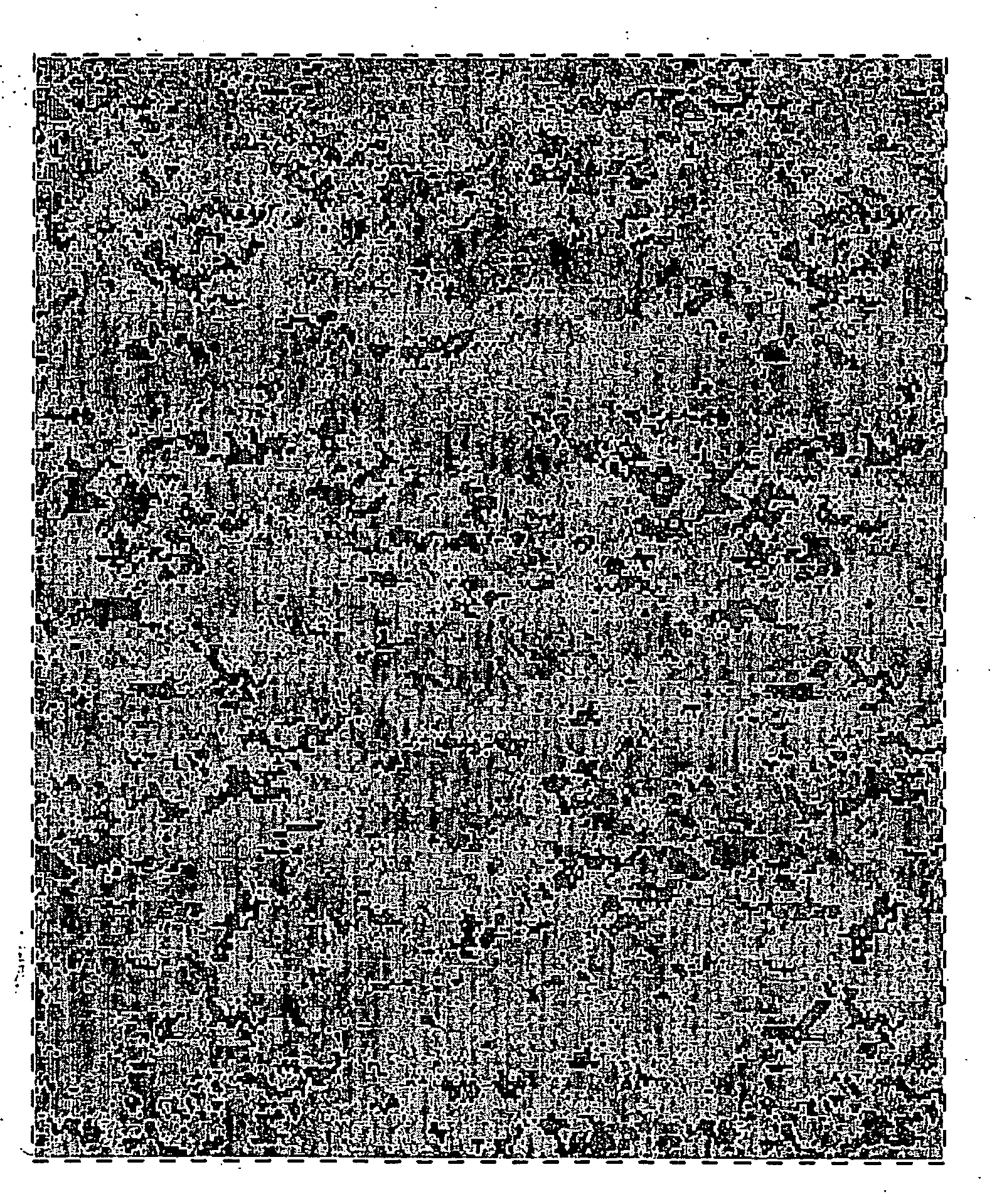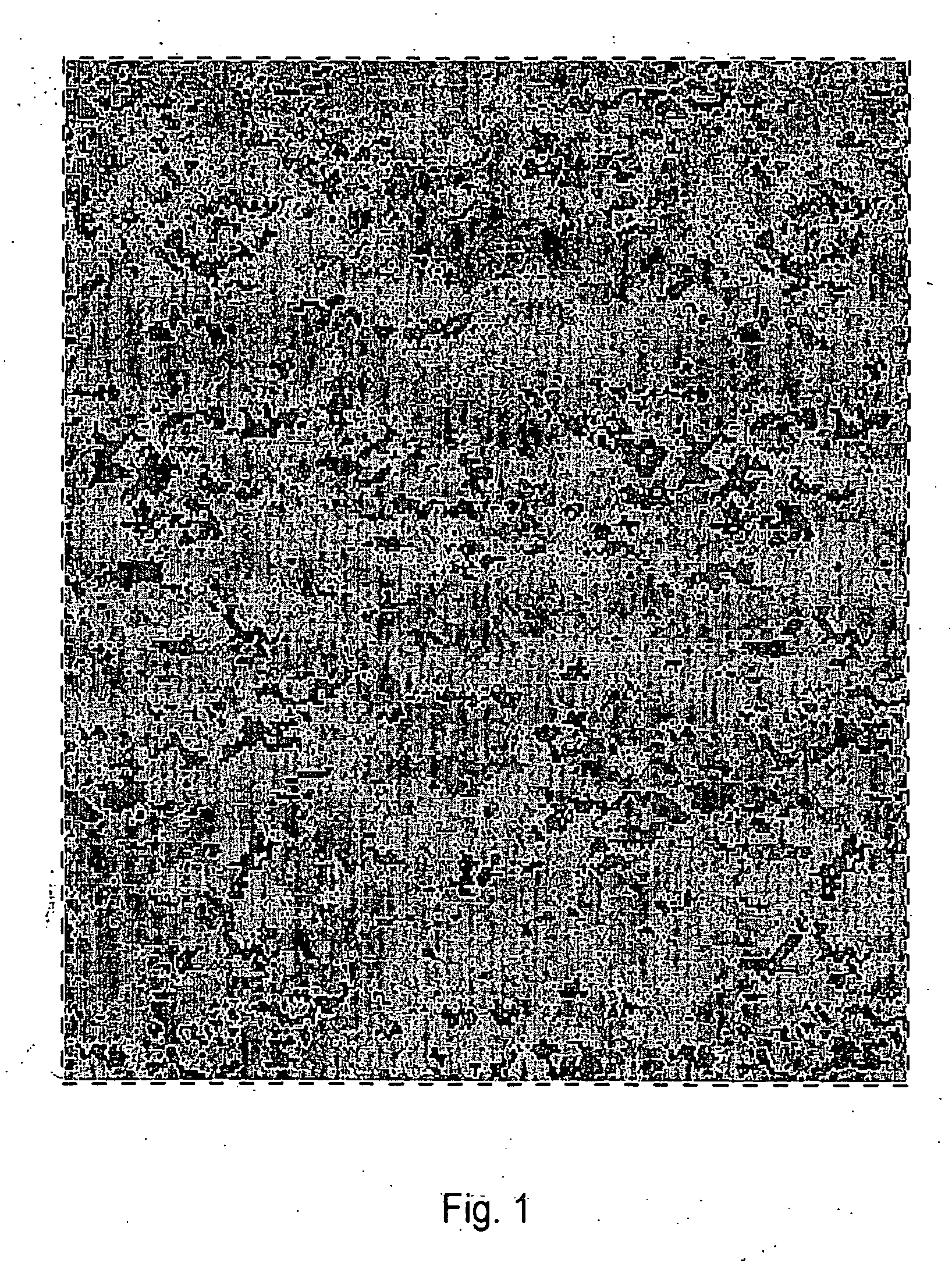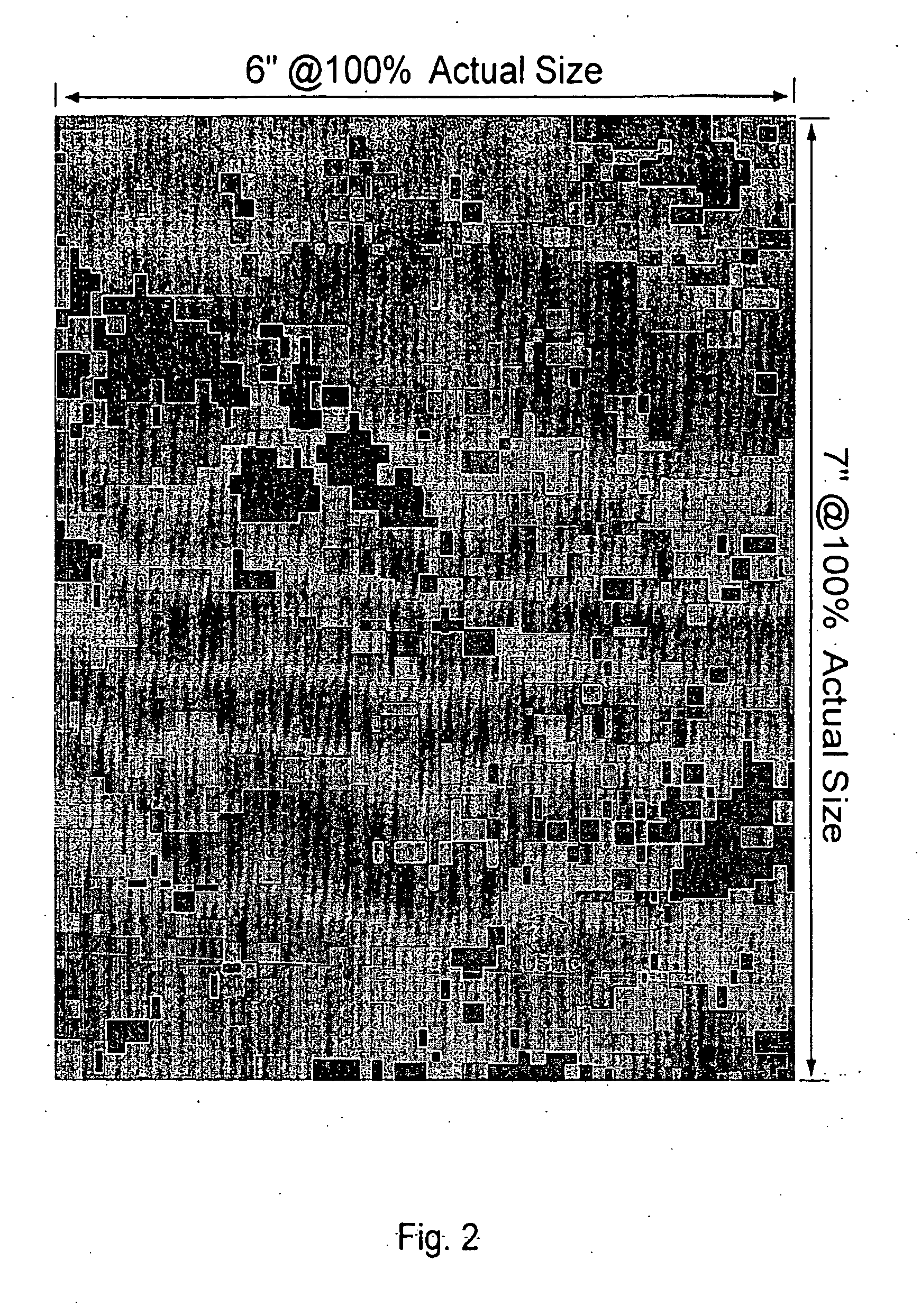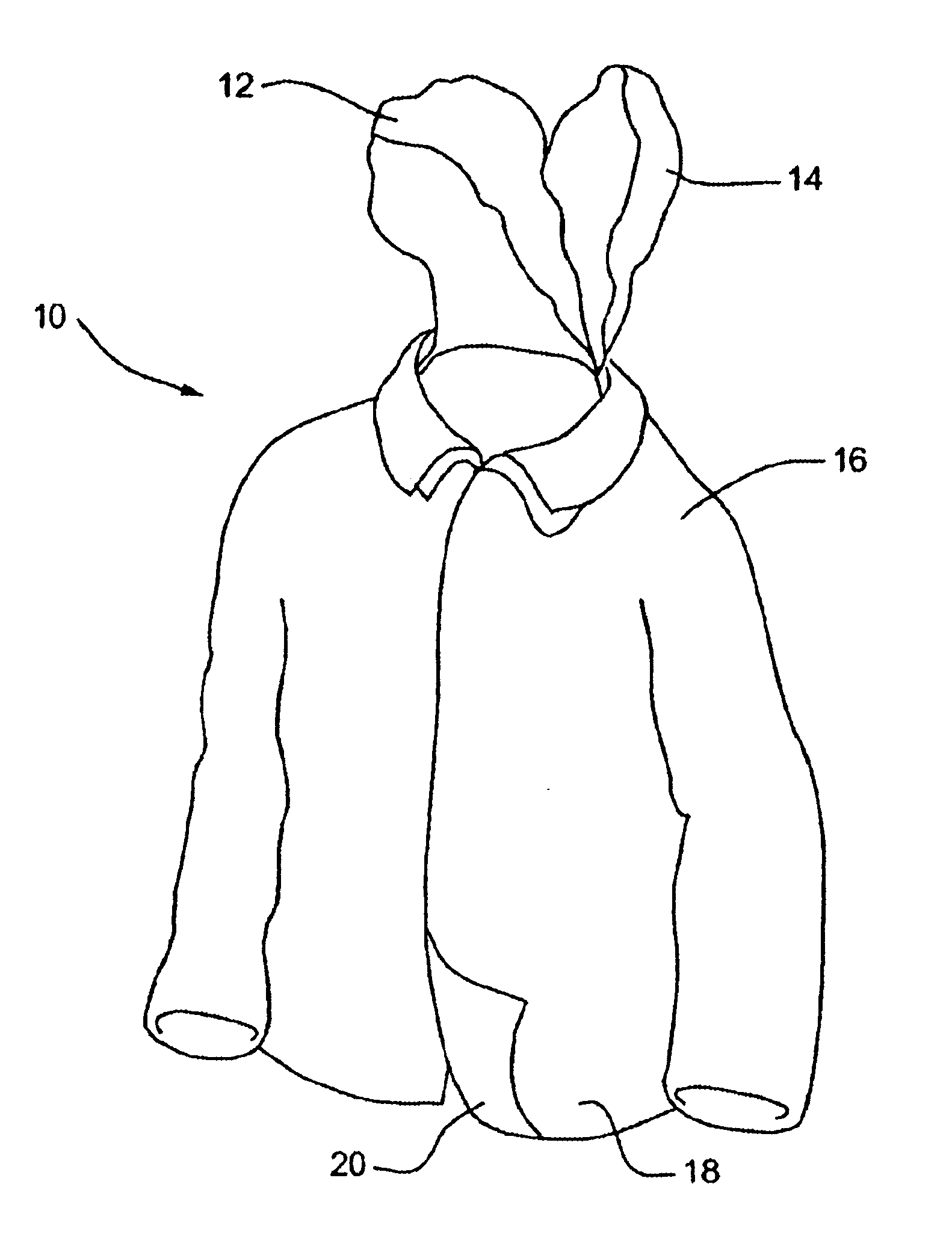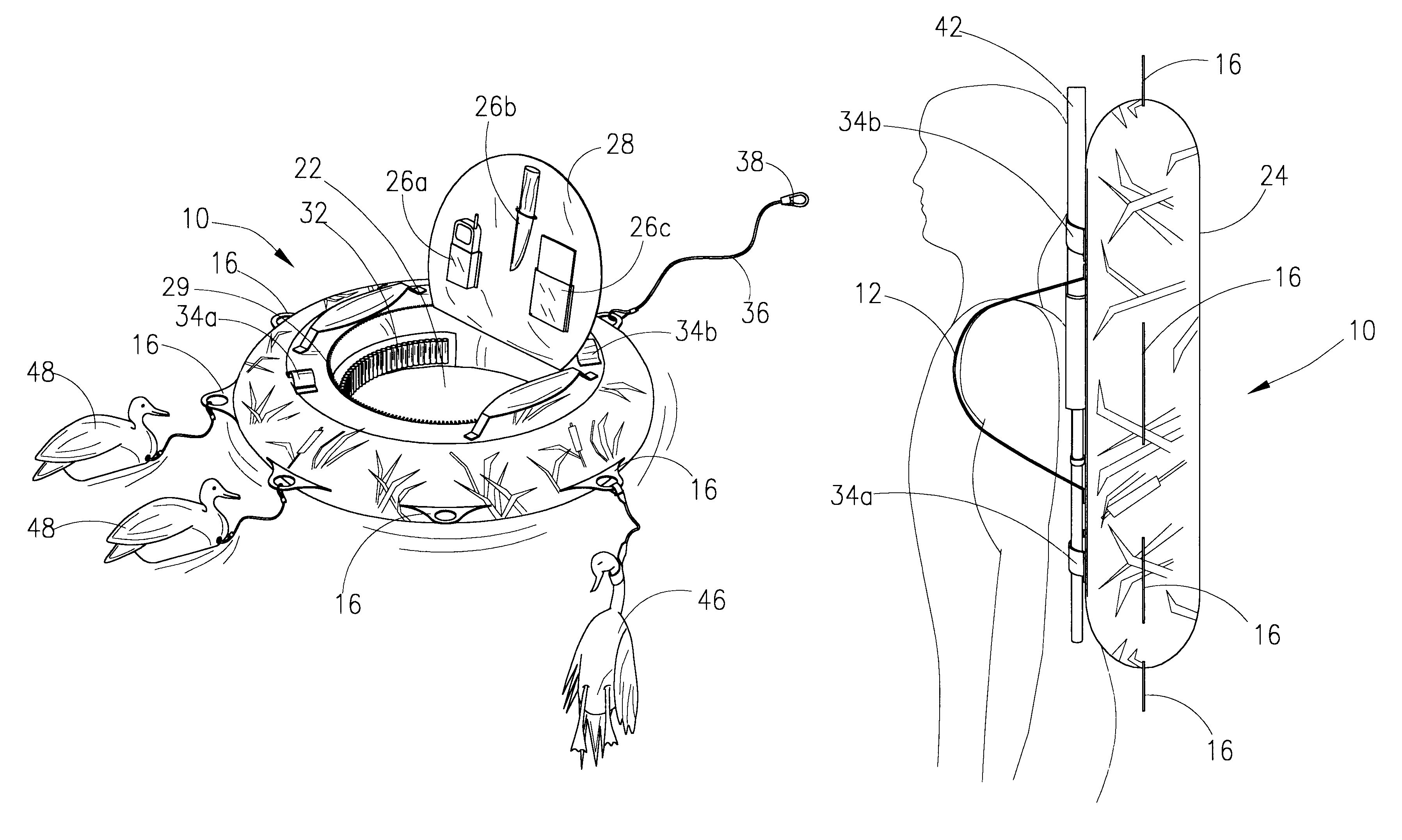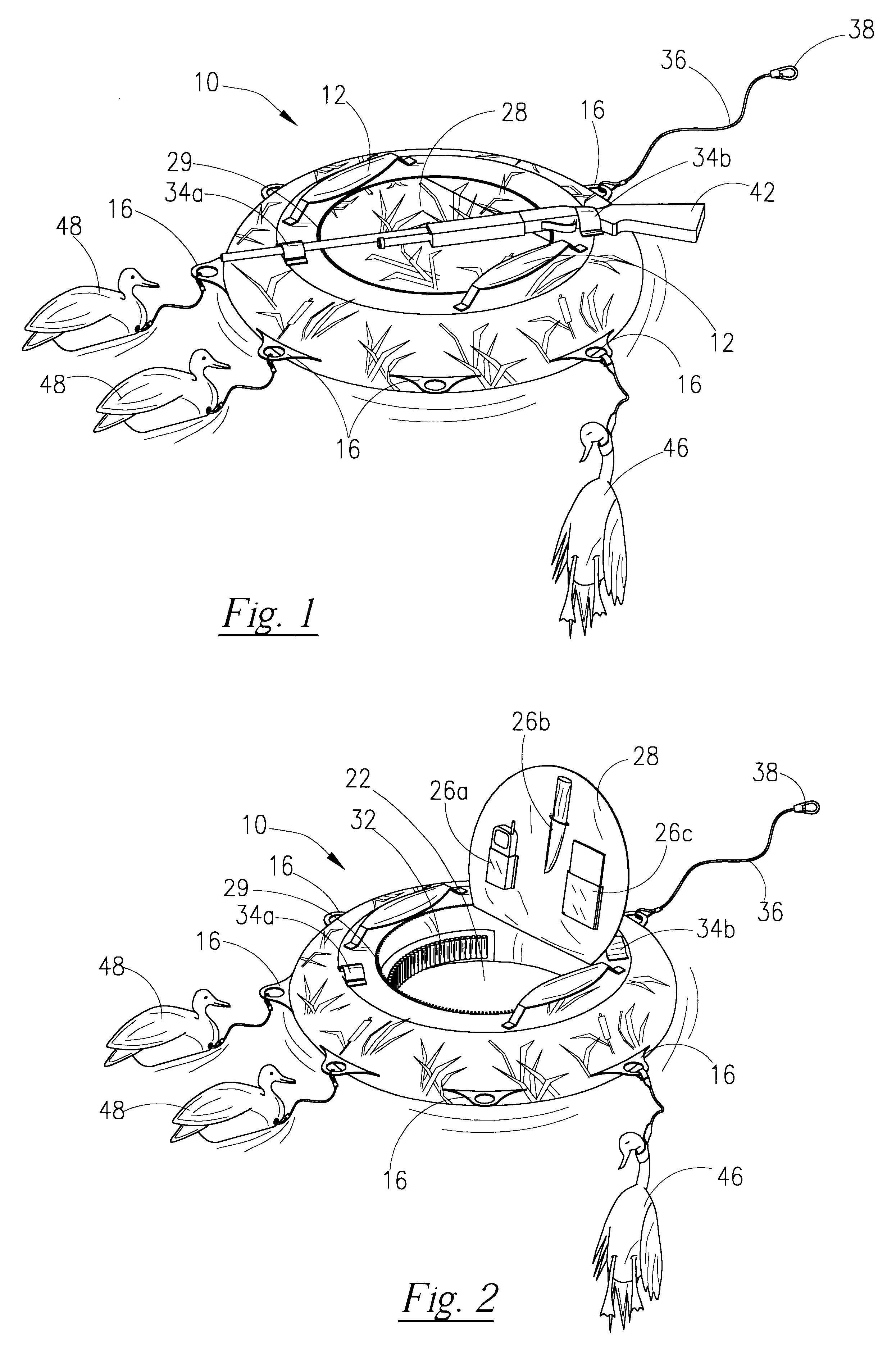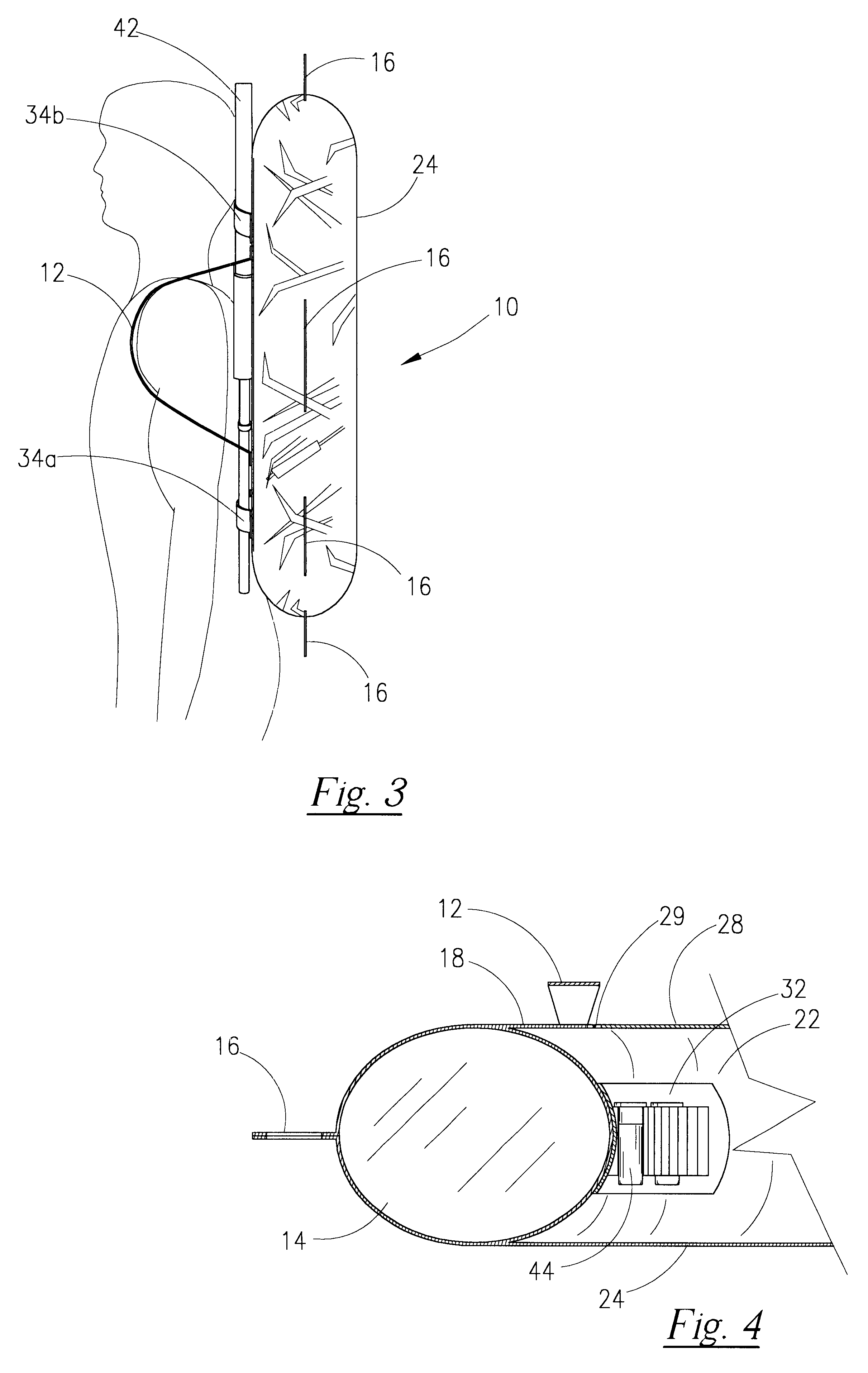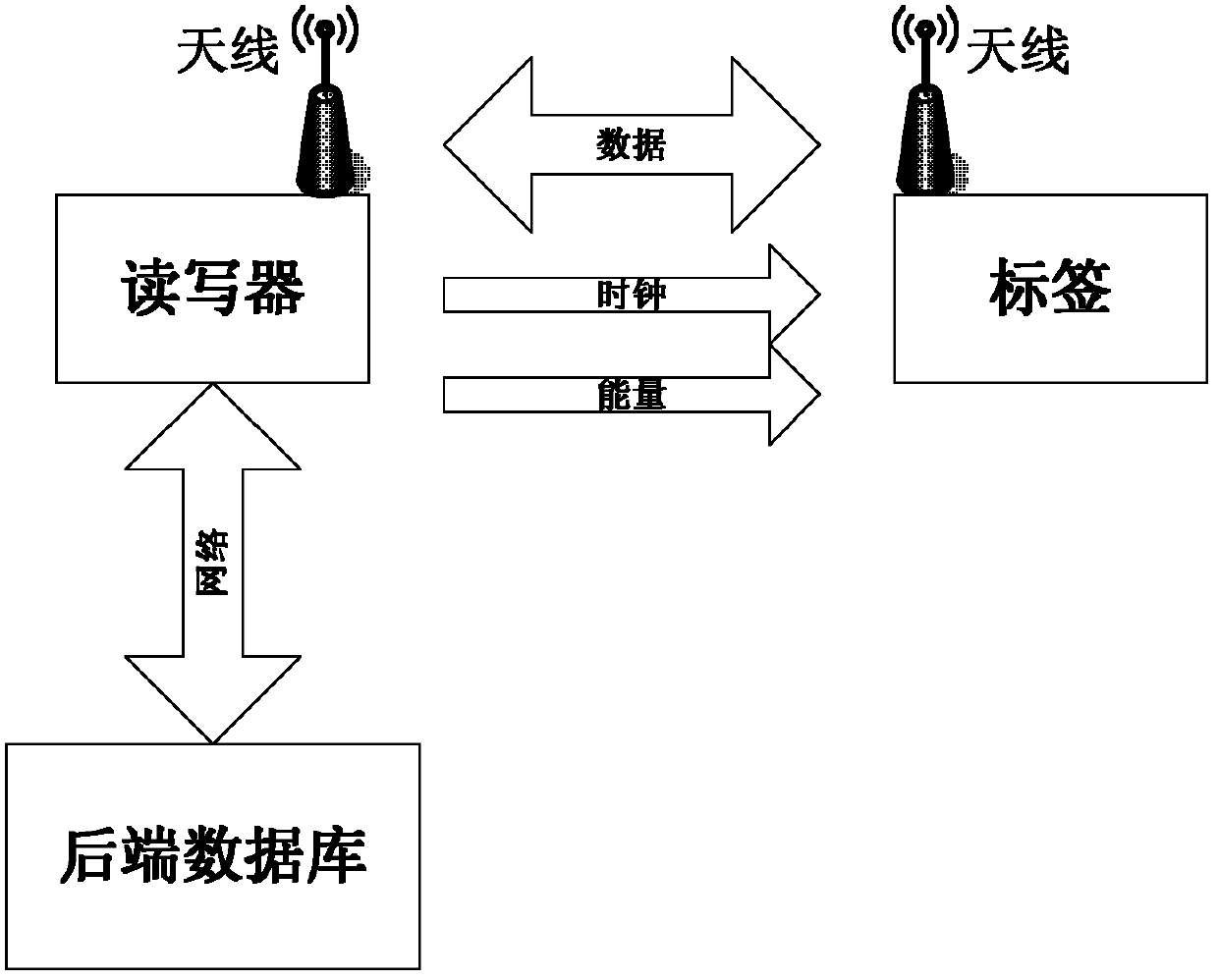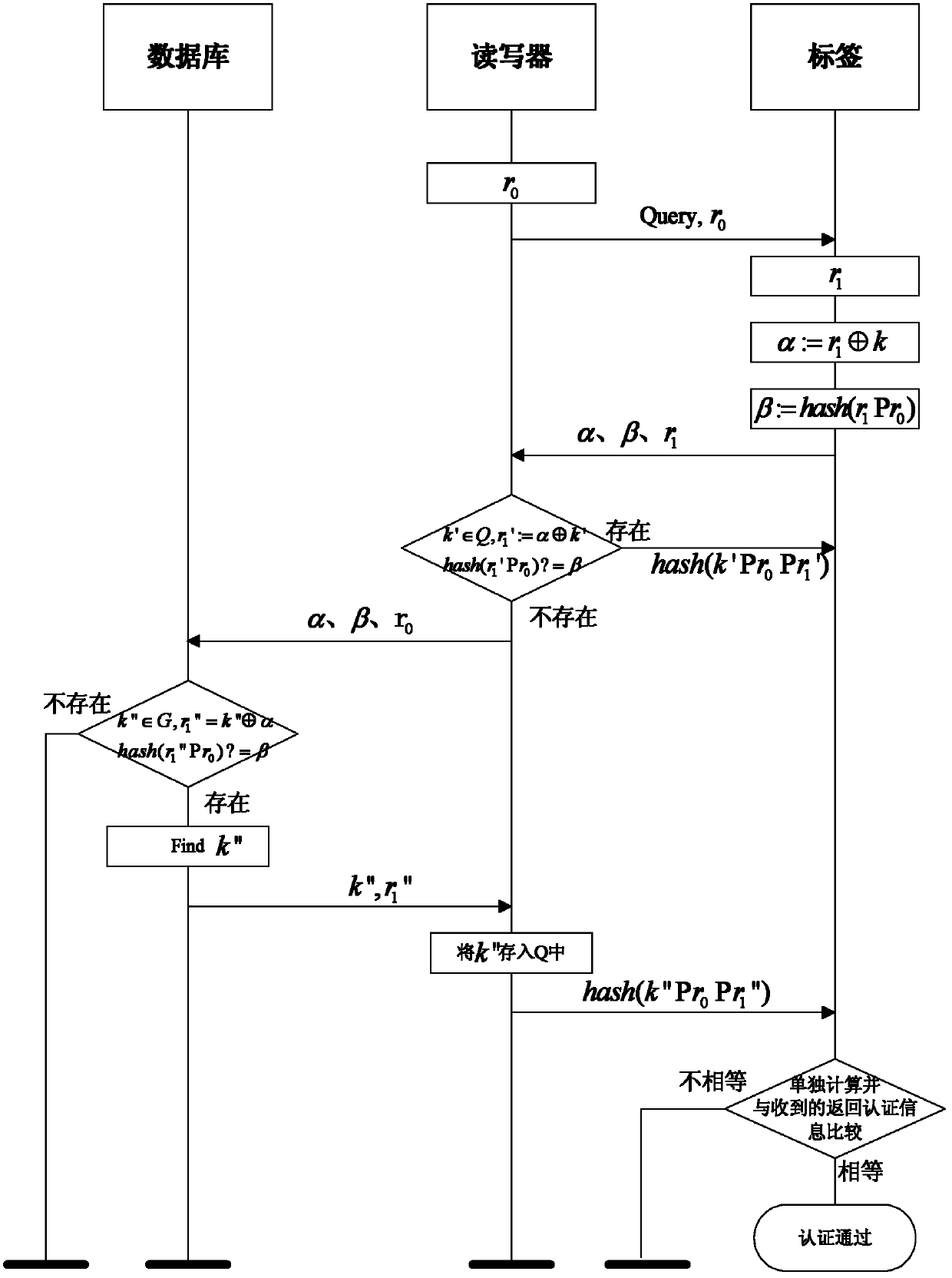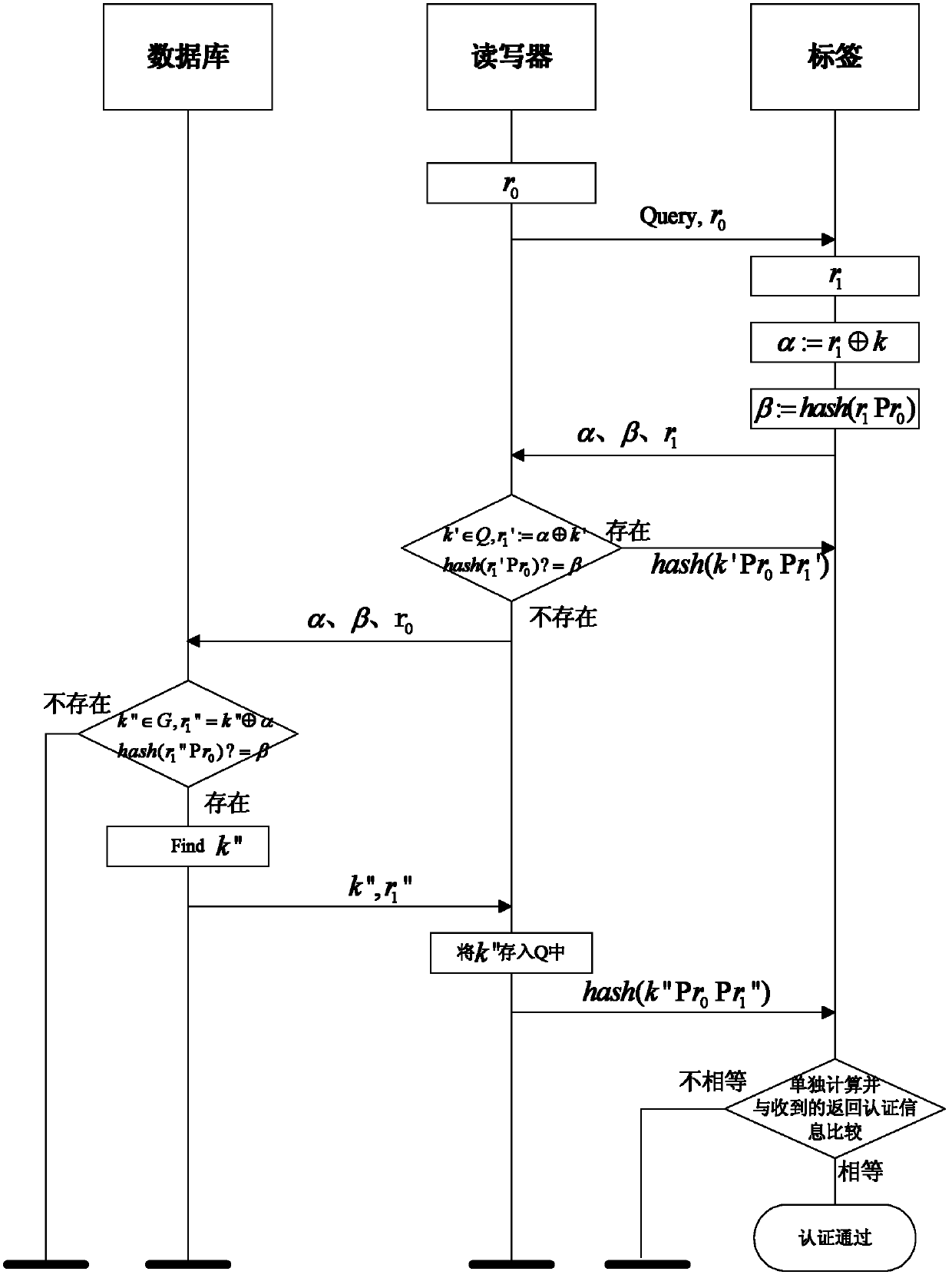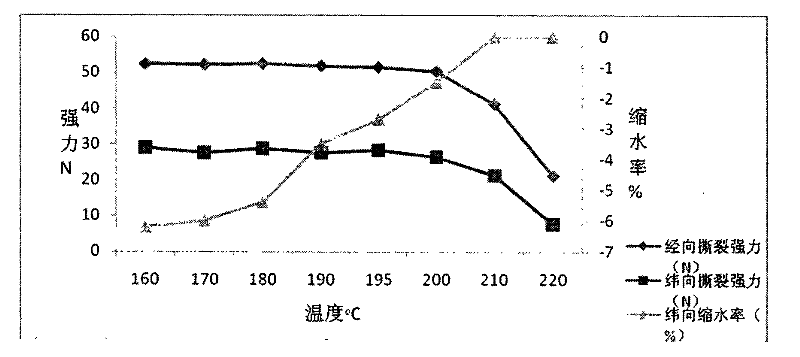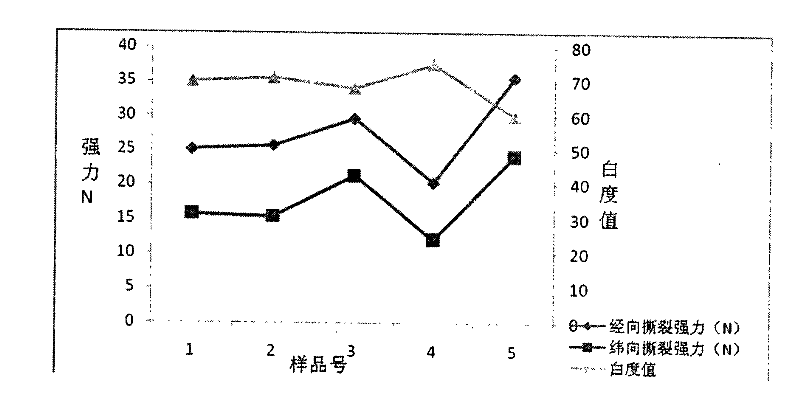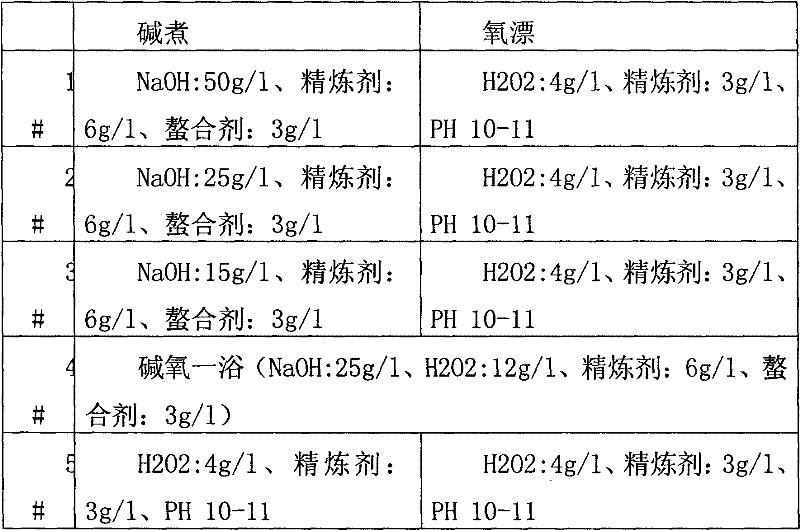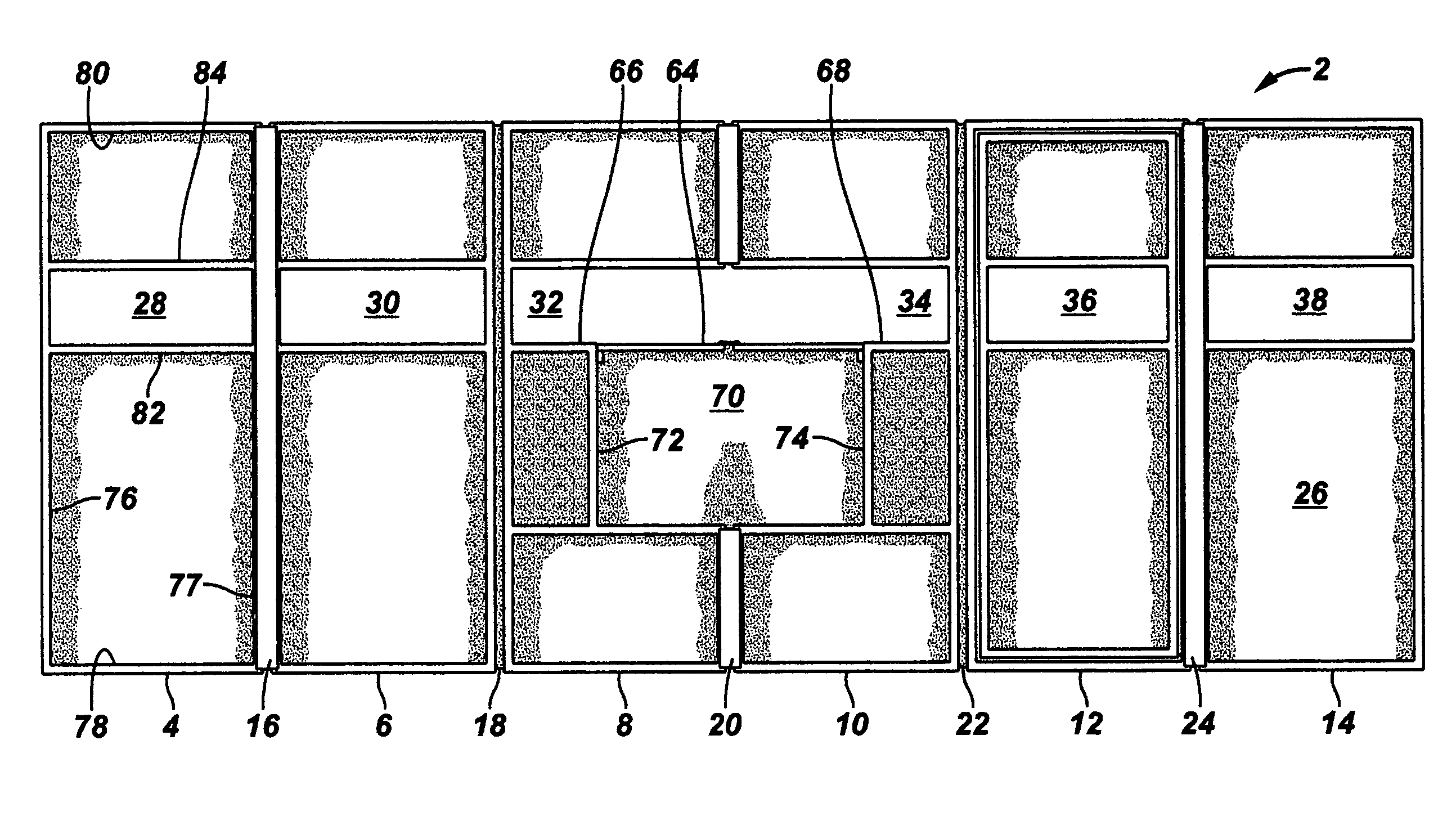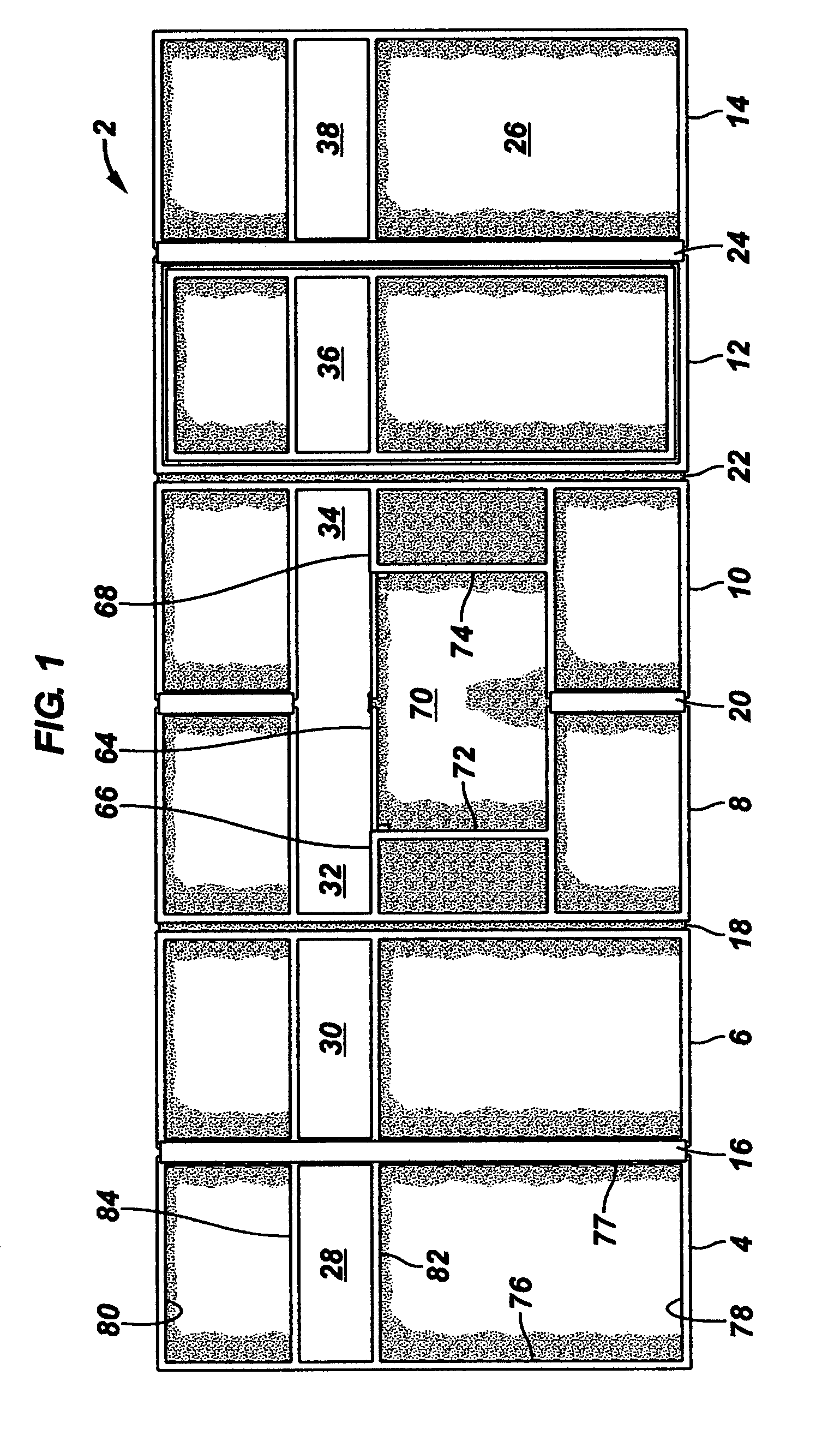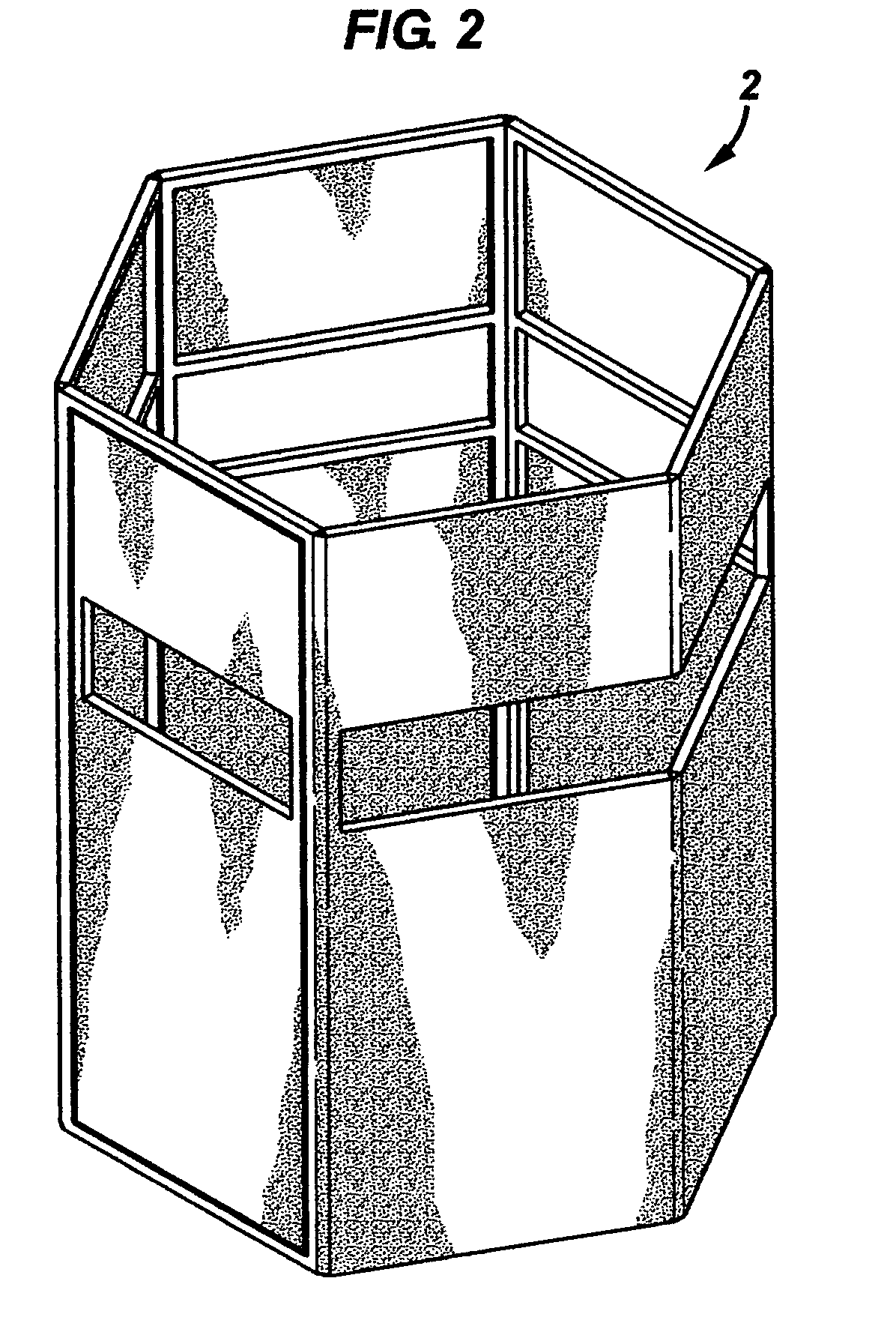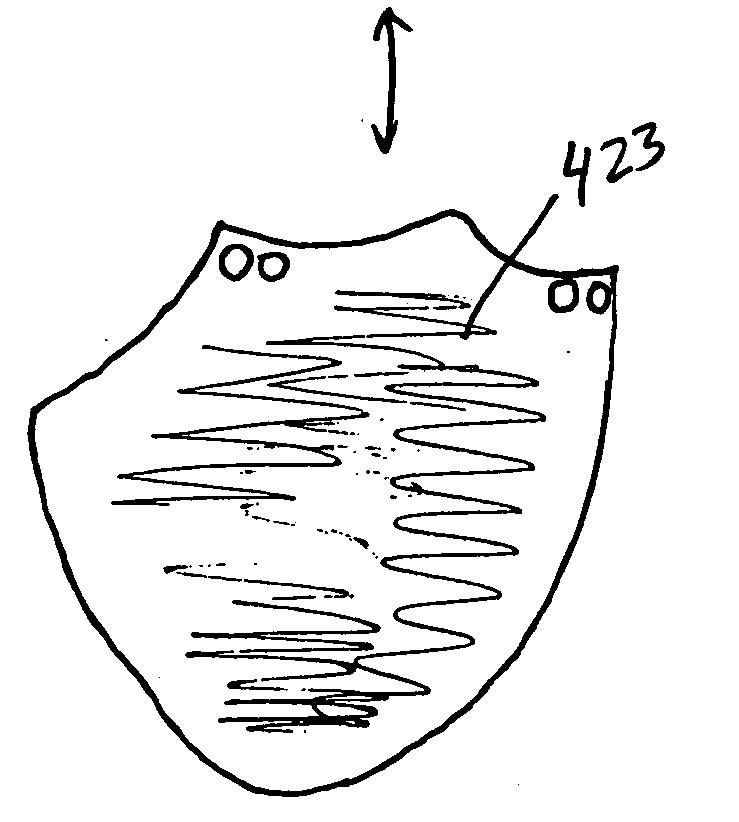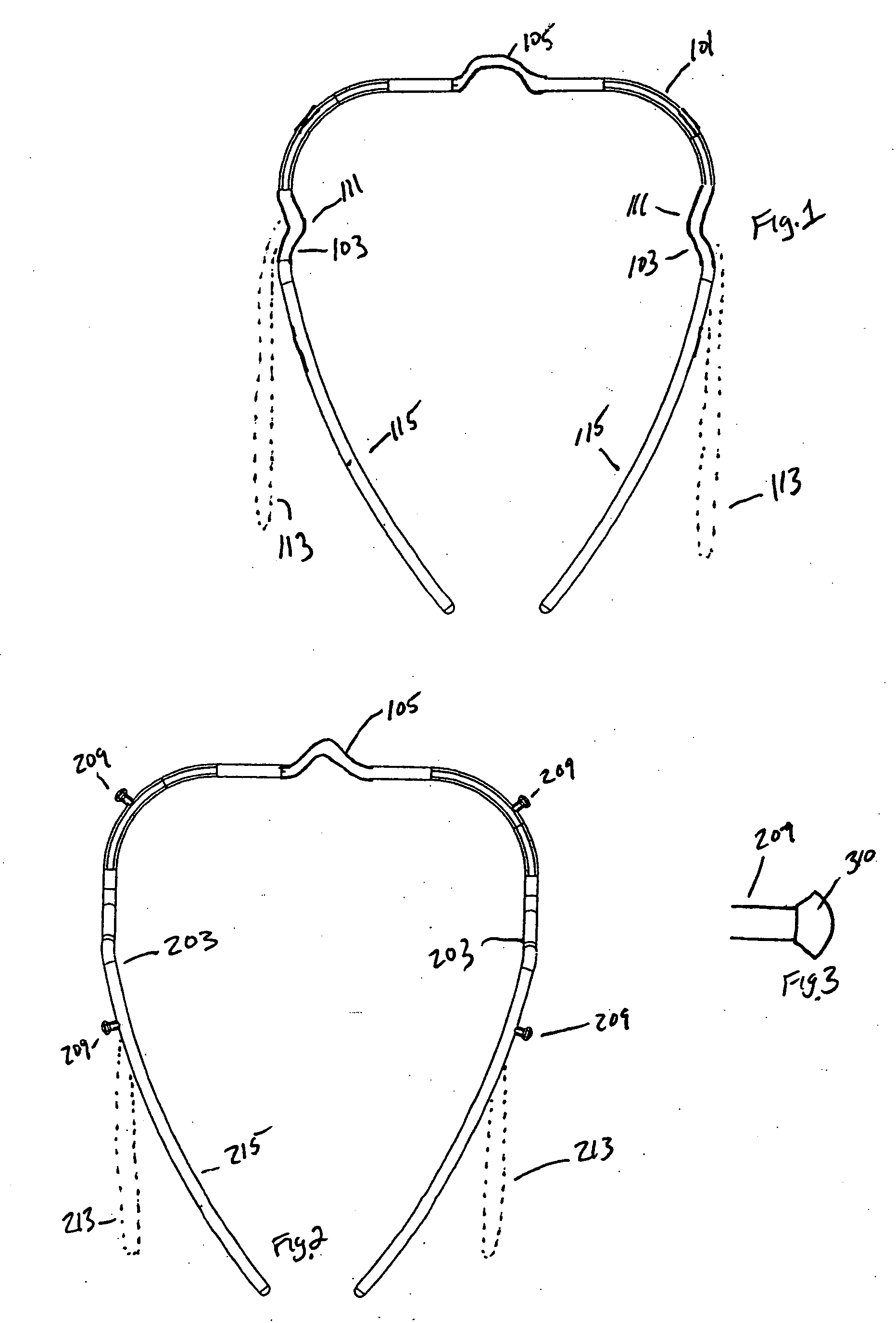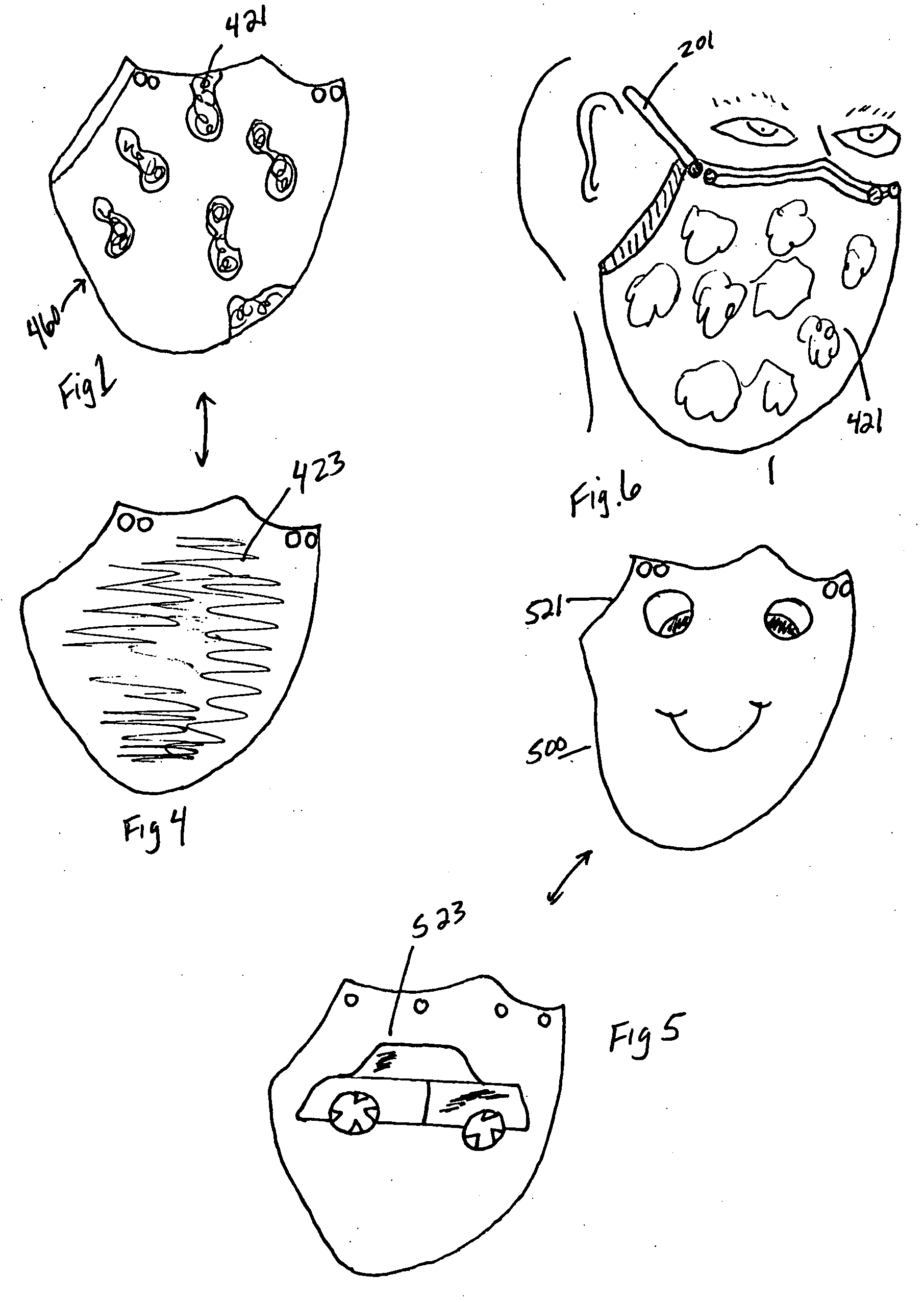Patents
Literature
Hiro is an intelligent assistant for R&D personnel, combined with Patent DNA, to facilitate innovative research.
921 results about "Camouflage" patented technology
Efficacy Topic
Property
Owner
Technical Advancement
Application Domain
Technology Topic
Technology Field Word
Patent Country/Region
Patent Type
Patent Status
Application Year
Inventor
Camouflage is the use of any combination of materials, coloration, or illumination for concealment, either by making animals or objects hard to see (crypsis), or by disguising them as something else (mimesis). Examples include the leopard's spotted coat, the battledress of a modern soldier, and the leaf-mimic katydid's wings. A third approach, motion dazzle, confuses the observer with a conspicuous pattern, making the object visible but momentarily harder to locate. The majority of camouflage methods aim for crypsis, often through a general resemblance to the background, high contrast disruptive coloration, eliminating shadow, and countershading. In the open ocean, where there is no background, the principal methods of camouflage are transparency, silvering, and countershading, while the ability to produce light is among other things used for counter-illumination on the undersides of cephalopods such as squid. Some animals, such as chameleons and octopuses, are capable of actively changing their skin pattern and colours, whether for camouflage or for signalling. It is possible that some plants use camouflage to evade being eaten by herbivores.
Ammunition having surface indicia and method of manufacture
InactiveUS7014284B2Improved adhesion to surfaceReduce glareShotgun ammunitionTypewritersBiomedical engineeringHeat transfer
Ammunition, such as shotshells used in waterfowl hunting, have indicia applied to substantially all of the external surface to reduce glare normally a problem in conventional ammunition. The indicia, such as a camouflage pattern, is applied either through the use of inkjet printing directly on the shotshell surface or through the application of a heat transfer sleeve to which the indicia has been previously applied. The process of applying the camouflage pattern may be incorporated into the manufacture of the ammunition or may be operable as a standalone process used for pre-manufactured ammunition.
Owner:MORTON WILLIAM BILL +2
Collapsible enclosure with interchangeable and reversible covering elements
The invention is a portable, collapsible enclosure for protection from the elements in an outdoor environment. The tent-like enclosure is provided with one or more fabric coverings each bearing at least one color or camouflage pattern. The coverings are easily removable from the enclosure, and may be reversible, bearing one color or camouflage pattern on one side, and a different color or camouflage pattern on the reverse side. In this fashion, the same portable enclosure can be made to present a variety of appearances, depending on which covering is attached to the enclosure, and which side of the attached covering is exposed or outermost.
Owner:EVOLVED INGENUITY
Copy-forgery-inhibited pattern image generation method and image processing apparatus
ActiveUS20050219634A1Increase speedDifficult to recognizeDigitally marking record carriersDigital computer detailsImaging processingLatent image
A combination of a latent-image pattern which forms a latent-image part and a background pattern that forms a background-image part is determined so that the latent-image part and background-image part have equal print densities. The determined latent-image pattern and background pattern, color information used to determine a color of the copy-forgery-inhibited pattern image, input image information as an image to be processed, copy-forgery-inhibited pattern basic information used to designate the latent-image part and background-image part, and camouflage region designation-image information used to designate a camouflage region are input. A copy-forgery-inhibited pattern image is generated on the basis of the input information.
Owner:CANON KK
Method and apparatus for automatic registration and visualization of occluded targets using ladar data
ActiveUS20050243323A1Enhancing visual exploitationImage enhancementRadiation pyrometryClosest pointPoint cloud
A method and apparatus for high-resolution 3D imaging ladar system which can penetrate foliage and camouflage to sample fragments of concealed surfaces of interest is disclosed. Samples collected while the ladar moves can be integrated into a coherent object shape. In one embodiment, a system and method for automatic data-driven registration of ladar frames, comprises a coarse search stage, a pairwise fine registration stage using an iterated closest points algorithm, and a multi-view registration strategy. After alignment and aggregation, it is often difficult for human observers to find, assess and recognize objects from a point cloud display. Basic display manipulations, surface fitting techniques, and clutter suppression to enhance visual exploitation of 3D imaging ladar data may be utilized.
Owner:SRI INTERNATIONAL
Protective garment for game of paintball
InactiveUS6745400B1Sturdily constructedNot easy to tearChemical protectionGarment special featuresDark colorEngineering
A one piece protective garment to be worn by children or adults while playing paintball has padding sewn into it at spots where injury is anticipated due to collision with other players and obstacles. There are also a belted waist, a collar, central zipper, and adjustable safety closures on the sleeves, pant legs, and ankles for adjusting the garment's fit. A removable padded bib covers the chest for extra protection. Mesh-like material on the armpits and chest ventilates the player to avoid overheating. Accessible compartments store accessories specific to the game of paintball. The garment's material is a camouflage design, or dark color, in order for the user to blend into the landscape and effectively hide from other players. The material is also water resistant and strong enough to resist normal wear and tear. A quilted pattern is aesthetically pleasing and increases the material's strength.
Owner:PACIORKOWSKI TRACY JAMES
Footwear outsole and method of manufacture
InactiveUS20060225305A1Simple and effective outsole constructionLayer is smallSolesDomestic footwearEngineeringViscosity
An outsole construction having an integral display layer. The outsole includes a main body and a plurality of lugs extending from the main body to define a plurality of ground engaging elements. The display layer is disposed at the surface of the main body such that it is visible in the main body of the outsole and is spaced away from the surface of the lugs such that it is not visible on the surface of the lugs. The display layer may include a printed pattern, such as a camouflage pattern. The present invention also provides a method for manufacturing an outsole including the general steps of (a) providing a mold defining a main body and a plurality of lugs extending from the main body, (b) placing a permeable display layer in the mold and (c) injecting sole material into the mold. In this method, the permeability of the display layer and / or the viscosity of the sole material may be selected so that the display layer lies along the surface of the main body of the sole but not the surface of the lugs.
Owner:WOLVERINE WORLD WIDE
CRM Security Core
A security core supports a networked banking app for a client application device communicating with a server, such as e.g. a smartphone. It provides a secure environment for the banking app to conduct registration, enrollment, and transaction workflows with corresponding back-end servers on the network. It includes defenses against static analysis, attempts at reverse engineering, and real-time transaction fraud. A principal defense employed is obfuscation of the protocols, APIs, algorithms, and program code. It actively detects, thwarts, misdirects, and reports reverse engineering attempts and malware activity it senses. A routing obfuscator is configured to operate at the outer layer. Previous core designs are retained as camouflage. An internal TLS library is used rather than the OS TLS layer. Cookies are managed internally in the core rather than in the webkit-browser layer.
Owner:CRYPTOMATHIC LTD
Novel infrared and radar integrated stealth fabric and preparation method thereof
InactiveCN101995187AOvercome crackingOvercome sheddingSynthetic resin layered productsPersonal protection gearBursting strengthCoated surface
The invention discloses a novel infrared and radar integrated stealth fabric and a preparation method thereof. The stealth fabric comprises an infrared camouflage surface layer and an antistatic bottom layer in turn from outside to inside; the infrared camouflage surface layer comprises an infrared stealth layer, a fabric layer and a radar wave absorption attenuation layer in turn from outside toinside; the infrared stealth layer is compounded by using a coating coated by an infrared stealth coating and a magnetron sputtering ITO (indium tin oxide) film arranged on the surface of the coating; the radar wave absorption attenuation layer comprises a sponge body; and a wave absorption material is adsorbed on the sponge body. The stealth fabric can realize radar stealth function and infraredstealth function at the same time, has good integral wave absorption effect and low surface density of materials, and has good effects on the aspects of breaking strength, bursting strength and the like. Moreover, excessive complex processes are not adopted for manufacturing the stealth fabric, and the stealth fabric can be produced by using a conventional fabric production method, so the stealthfabric is convenient for production and easy for implementation.
Owner:WUYI UNIV
Method and apparatus for automatic registration and visualization of occluded targets using ladar data
A method and apparatus for high-resolution 3D imaging ladar system which can penetrate foliage and camouflage to sample fragments of concealed surfaces of interest is disclosed. Samples collected while the ladar moves can be integrated into a coherent object shape. In one embodiment, a system and method for automatic data-driven registration of ladar frames, comprises a coarse search stage, a pairwise fine registration stage using an iterated closest points algorithm, and a multi-view registration strategy. After alignment and aggregation, it is often difficult for human observers to find, assess and recognize objects from a point cloud display. Basic display manipulations, surface fitting techniques, and clutter suppression to enhance visual exploitation of 3D imaging ladar data may be utilized.
Owner:SRI INTERNATIONAL
Concealed outdoor enclosure having one-way visibility over a 360 degree visual field
InactiveUS7565909B2Dead plant preservationArtificial flowers and garlandsVisibilityVisual field loss
A portable outdoor enclosure includes a support frame and a three dimensional camouflage cover having a bi-layer construction that provides a high degree of unidirectional visibility. The cover includes an outer layer and an inner layer, the outer layer comprising a plurality of partial cutouts, the cutouts formed with a curvilinear incision pattern which are partially separable from the inner layer, the outer layer is attached to the inner layer at a plurality of spaced locations, and wherein the exterior-facing surfaces of both the outer layer and the inner layer are printed in a camouflage pattern and coloration. The inner layer of the cover includes a mesh upper portion permitting a high degree of outward visibility therethrough over a 360 degree horizontal visual field, and an opaque lower portion.
Owner:FERADYNE OUTDOORS LLC
Pedestrian detection method and system
ActiveCN104361327AReduce follow-up workloadReduce the amount requiredCharacter and pattern recognitionFace detectionPhysical medicine and rehabilitation
The invention provides a pedestrian detection method and system. According to the pedestrian detection method, head and shoulder detection, face detection and whole body detection are carried out on a collected image to obtain one or more kinds of features of the head and shoulders in front, the head and the shoulders at back or the head and the shoulders on the side, feature information of the whole body in front, feature information of the whole body at back, feature information of the whole body on the left and feature information of the whole body on the right. Accordingly, the features of the head and the shoulders in front, at back and on the side and features of the whole body at multiple angles of a target pedestrian with the covered face or a camouflage target pedestrian can be obtained, real-time handling of illegal activities and postmortem analysis are facilitated, and later workload of related staff can be greatly reduced. Defects of a staff gate system based on face detection in the prior art are overcome. The method and system are suitable for face detection in front, can be used for pedestrian detection at back and on the side, all information of a person is basically included in a face snapshot and a whole body snapshot of the person, and later deep analysis is facilitated.
Owner:SUZHOU KEDA TECH +2
Realistically textured printed flocked fabrics and methods for making the fabrics
InactiveUS7229680B1Improve visual effectsDegree of reductionLiquid surface applicatorsLamination ancillary operationsEngineeringTransfer printing
The present invention is directed to unique flocked pile fabrics and methods for producing such fabrics. The fabrics provided according to one embodiment of the invention include an embossed pattern, characterized by a plurality of elongated depressions in the surface of the pile fabric, and a superimposed printed pattern, characterized by a scene or illustration including a plurality of visual features having elongated shapes. The inventive embossed, printed pile fabrics, having a superimposed embossed and printed pattern, advantageously superimpose the embossed pattern and the printed pattern upon the pile fabric so that the embossed pattern imparts a three-dimensional texture to the scene or illustration or pattern comprising the printed pattern. The texture provided by the embossed pattern can impart a visual effect to the scene or illustration which can render it more realistic than a similar scene or illustration printed upon a conventional unembossed pile fabric. In one embodiment, this unique texturing effect is accomplished by substantially aligning the longitudinal axes of the elongate features of the printed pattern and the elongate features of the embossed pattern. The pile fabric provided by the invention can be produced by utilizing a plurality of embossing and printing techniques. In one embodiment, the embossing technique comprises air embossing, and the printing technique comprises paper transfer printing utilizing a paper transfer sheet. The fabrics provided by the invention are especially useful as camouflage fabrics. Such fabrics typically include a printed scene or illustration representing a sylvan setting dominated by visual features such as trees, branches, bushes, leaves, flowers, berries, grass, rocks, moss, etc.
Owner:MICROFIBERS
Polymer fibers, fabrics and equipment with a modified near infrared reflectance signature
InactiveUS20060234050A1Readily dyed and printedHigh dye absorption propertyFilament/thread formingCamouflage devicesPolyamideNear infrared reflectance
A modified synthetic polymer filament and multifilament yarn of polyamide or polyester filament containing a carbon black polymer additive, and fabrics from these yarns, are disclosed. These melt spun filaments are especially well-suited for use in garments and equipment where a modified Near Infrared Reflectance (NIR) signature is desired. The yarn and fabrics made from this yarn may be advantageously dyed or printed to provide a camouflage fabric for use in desert sand dominated environments, urban environments and multi-terrain environments.
Owner:INVISTA NORTH AMERICA S A R L
Self-adaptation camouflage design method based on background
InactiveCN104318570AHigh synthesis efficiencyQuality assuranceImage analysisTexturing/coloringCluster algorithmSelf adaptive
The invention discloses a self-adaptation camouflage design method based on a background. According to the method, on the basis of a texture synthesis algorithm based on pixels, a whole camouflage image is synthesized pixel by pixel; in the synthesis process, a self coding algorithm is adopted to extract a texture primitive containing background sample complete texture features, and a neighborhood of the pixels to be synthesized is determined; by means of the neighboring correlation principle and a helix supplement search mechanism, a neighborhood matched with a target pixel neighborhood is searched for in a background sample; similarity matching is carried out through a pixel and texture similarity matching rule, pixels in the neighborhoods which are most similar in the sample are selected to serve as synthesis pixels, pixels of a target image are synthesized according to the sequence of scanning lines, and after synthesis, color quantization is carried out on the image by means of the clustering algorithm to generate a final camouflage image. By means of the method, similar camouflage images can be synthesized quickly according to the background, and the application aim of quickly camouflaging a target in a self-adaptation mode can be achieved.
Owner:SHENYANG JIANZHU UNIVERSITY
Inorganic optical taggant and method of making
InactiveUS20050092408A1Overcomes shortcomingDesired performanceCell electrodesMachines/enginesCamouflageYttrium
Sintered, translucent ceramic microbeads, preferably alumina, titania, zirconia, yttria, zirconium phosphate, or yttrium aluminum garnet (YAG) are doped with one or more optically active species. The beads may be added to substances such as explosives in order to create a distinctive optical signature that identifies a manufacturer, lot number, etc. in the event of the need for forensic analysis. Because the beads have a generally spherical surface, the radius of curvature provides an additional distinguishing characteristic by which a particular sample may be identified. The beads could also be formulated into paints if needed to create distinctive optical signatures for camouflage, decoys, or other countermeasures and could also be applied as a dust to track the movement of personnel, vehicles, etc.
Owner:UT BATTELLE LLC
Radar invisible coating
InactiveCN101440250APromote absorptionLow densityPolyurea/polyurethane coatingsEpoxy resin coatingsThermal insulationMicrosphere
The invention discloses a radar wave stealth coating with good radar wave-absorbing performance, light mass and thermal insulation function, and a production method thereof. The coating comprises a film-forming substance, an absorbent, an external additive and a solvent. The coating is characterized in that the radar wave absorbent is hollow microspheres covered with magnetic conductive metal films. The coating absorbent has good performance, light mass and good thermal insulation. The components by weight percentage comprise the following: 16.25 to 74.40 percent of film forming substance, 25.60 to 83.80 percent of absorbent, 1 to 20 percent of additive, and 10 to 150 percent of solvent. The coating is applied to the field of radar wave absorption, for example, the coating is used for various weapons, camouflage nets and, protection suits and so on.
Owner:崔悦
Infrared camouflage paint as well as preparation method and application thereof
ActiveCN103614058APacking is cheap and easy to getStrong adhesionPolyurea/polyurethane coatingsVegetal fibresLow emissivityRare earth
The invention relates to infrared camouflage paint as well as a preparation method and an application thereof. The paint comprises filler, a coating agent and an additive. The preparation method comprises the following steps: mixing and ball-milling 30-90 parts by weight of solvent, 1-30 parts by weight of wetting dispersant and 5-60 parts by weight of filler, so as to obtain lanthanum-based rare earth compound powder concentrated pulp, ball-milling the solvent and the coating agent so as to obtain the ball-milled coating agent, and ball-milling the solvent, the lanthanum-based rare earth compound powder concentrated pulp and the ball-milled coating agent so as to obtain the infrared camouflage paint. According to the application of the infrared camouflage agent, the infrared stealth coating is added to a substrate by using a dipping, coating or padding method. The invention provides a novel low-emissivity material, namely the infrared camouflage paint, not only are materials for the paint easy to obtain, but also the paint is simple to operate, relatively low in cost, capable of effectively pretending and shielding human bodies, glass, polymer films, military weapons and the like and reducing the possibility that the articles are detected by infrared detectors, and has a good application prospect.
Owner:DONGHUA UNIV
Footwear outsole and method of manufacture
InactiveUS7313876B2Layer is smallThe process is simple and effectiveSolesDomestic footwearEngineeringViscosity
An outsole construction having an integral display layer. The outsole includes a main body and a plurality of lugs extending from the main body to define a plurality of ground engaging elements. The display layer is disposed at the surface of the main body such that it is visible in the main body of the outsole and is spaced away from the surface of the lugs such that it is not visible on the surface of the lugs. The display layer may include a printed pattern, such as a camouflage pattern. The present invention also provides a method for manufacturing an outsole including the general steps of(a) providing a mold defining a main body and a plurality of lugs extending from the main body,(b) placing a permeable display layer in the mold and(c) injecting sole material into the mold. In this method, the permeability of the display layer and / or the viscosity of the sole material may be selected so that the display layer lies along the surface of the main body of the sole but not the surface of the lugs.
Owner:WOLVERINE WORLD WIDE
Process for making anti-infrared multifunctional camouflaged color cloth
InactiveCN101397708AShort production processHue once goodFibre treatmentSingeingFiberTextile printer
The invention relates to a textile printing and dyeing technique, in particular to a manufacturing technique of an infrared ray resistant multi-functional camouflage fabric. The technique flow is as follows: original cloth seaming, singeing, old rolling, 180 pre-treatment, shaping, mercerizing, ground dyeing, pattern printing, baking, aging, stentering of post treatment, examination and acceptance; wherein, the ground dyeing flow is as follows: padding liquor, two groups of infrared rays and drying; a formula adopted in the ground dyeing flow comprises 2g / l to 10g / l of dispersion dyes, 5g / l to 15g / l of vat dyes and 0.01g / l to 1.0g / l of infrared ray resistant regulators; the formula of pattern printing is as follows: 2kg to 15.7kg of dispersion material, 2. kg / l to 10.5kg / l of vat material and 0.01kg to 2.5kg of infrared ray resistant regulators; post treatment has the function compatibility of multiple functions which are water proofing, oil repellence, ventilation, crease resistance and static resistance. The technique has the advantages of having short production procedure, color phase with good uniformity, stable infrared reflectivity, low cost, multiple functions, mainly using environment friendly dyes and being suitable for infrared ray resistant camouflage fabric products with different fibers and different specifications.
Owner:XIANYANG JIHUA NEW 30 DYEING & PRINTING
Polymer fibers, fabrics and equipment with a modified near infrared reflectance signature
ActiveUS7008694B1Readily dyed and printedHigh dye absorption propertyFilament/thread formingCamouflage devicesTerrainPolyamide
A modified synthetic polymer filament and multifilament yarn of polyamide or polyester filament containing a carbon black polymer additive, and fabrics from these yarns, are disclosed. These melt spun filaments are especially well-suited for use in garments and equipment where a modified Near Infrared Reflectance (NIR) signature is desired. The yarn and fabrics made from this yarn may be advantageously dyed or printed to provide a camouflage fabric for use in desert sand dominated environments, urban environments and multi-terrain environments.
Owner:INV PERFORMANCE MATERIALS LLC
Portable hunting chair and blind
InactiveUS7997291B2Reduce manufacturing costEasy to disassembleVehicle seatsAnimal huntingEngineeringMechanical engineering
A hunting chair with a hunting blind attachment that encircles the chair is disclosed, as well as an attachable camouflage roof covering, all of which may be folded and disassembled in such a way that it fits into a self-contained pack that may be carried on a hunter's back. The chair includes an adjustable, pivoting backrest, a pivoting gun rest with telescoping legs for height adjustment, folding legs, a pouch to contain the disassembled elements, and shoulder straps for carrying the apparatus. In its disassembled state, the roof poles, roof fabric, and blind fabric are packed into a pouch on the back side of the backrest, and the chair is folded into a carrying position. Detachable shoulder straps may be attached to the underside of the seat section, so that the entire chair and blind combination may be carried on a hunter's back into the field.
Owner:GRESSETTE III F REEVES +2
Water-soluble nano camouflage paint and preparation method thereof
ActiveCN103642361AEliminate hazardsPolyurea/polyurethane coatingsRadiation-absorbing paintsOrganic solventAnti freezing
The invention discloses water-soluble nano camouflage paint and a preparation method thereof, belonging to the technical field of wave-absorption paint. The water-soluble nano camouflage paint is prepared from the following components in percent by mass: 20%-60% of water-soluble resin, 2%-6% of a silane coupling agent, 24%-40% of wave-absorbing particles, 1.5%-2.0% of a protective agent, 2%-4% of an emulsifier, 4%-6% of an anti-freezing agent, 0.1%-0.5% of a defoaming agent and the balance of deionized water. According to the invention, the water-soluble resin is used as a carrier of components such as a film forming matter and a wave-absorption material and the deionized water is used as a diluent, so that harms of an organic solvent in the camouflage paint on a human body and an environment are completely avoided, and therefore, the water-soluble nano camouflage paint is environment-friendly type paint in true sense.
Owner:BEIJING XINLI MACHINERY
Portable ballistic shield and shooting platform for police and military personnel
InactiveUS7124675B1Quickly set up and broken downImprove abilitiesDoor/window protective devicesArmoured vehiclesTerrainEngineering
A portable ballistic shield for use by civilian and military SWAT teams that provides both mobile and stationary cover, protection and a shooting platform for sniper and observer teams deployed behind the shield includes a rectangular-shaped planar member having a front surface that can include camouflage patterns, a rear surface and a lower edge having a rubber strip attached thereto for stabilizing the ballistic shield when disposed on the supporting surface. A centrally located gun slot is cut out adjacent the upper edge of the planar member and pivotally mounted to the rear surface is a pair of support legs for supporting the planar member. A slip-on camouflage cover is provided for covering at least the front surface so that the camouflage pattern can be adapted to suit the terrain and environment, such as urban, desert and midnight blue, where the shield is being deployed.
Owner:SAND MICHAEL A
Camouflage U.S. Marine Corps combat utility uniform: pattern, fabric, and design
InactiveUS20090313740A1Accelerated destructionImprove concealmentDecorative surface effectsDuplicating/marking methodsFiberInfrared
A camouflage system to be used for both military uniforms and equipment. The system includes specialized means of printing the camouflage system unto fabric. The system can also be used for civilian applications, particularly with sportsman hunters. The system provides camouflage in both the human visible light range and the infrared. The system depends on the use of a macro-pattern resulting from a repeat of a micro-pattern. When applied to fabric, a polyamide-cotton fiber blend has a macro pattern resulting from a repeat of a micro pattern printed on at least one surface. The coloring system used comprises at least four colorings from dyes that in combination produce a percent reflectance value comparable to the negative space of the surroundings near the camouflaged subject. The system functions by a macro pattern being disruptive of the shape of the subject and a micro pattern comprising sharp edge units of a size capable of blending the subject into the background. The relative lightness values and percentages of total pattern are sufficient to produce a percent reflectance of acceptable colors, wet or dry in terms of lightness values compared to current military four-color camouflage. On fabric, the results are achieved by printing A macro pattern that disrupts the sensed shape and a micro pattern with a repeat size that produces the macro pattern. The reflectance of the material is comparable to the negative space surrounding a subject so the subject does not appear too dark or too light (out of place). The variation in the lightness between wet and dry is not greater than 17-28%, achieved during the printing process.
Owner:THE UNITED STATES OF AMERICA AS REPRESENTED BY THE SECRETARY OF THE NAVY
Reversible jacket having multiple hoods
The present invention provides a reversible jacket that includes two independently functional flexible hoods that allow a person wearing the jacket to utilize one hood in one configuration of the jacket, and the other hood in a reversed configuration. A reversible jacket of the invention can find a variety of different applications, for example, it can be employed as a camouflage jacket in two different environments.
Owner:KAPLAN SIMON
Duck hunter's caddy
A floating caddy for holding and storing the gear of wading hunters comprising an inflatable tube formed from an impermeable fabric for providing flotation for the caddy. The tube is configured to create a water resistant storage compartment within its periphery. The top of the storage compartment has weather resistant zipper for access into the storage compartment. The caddy is fitted with straps for attaching a shotgun and shoulder straps mounted to the tube to allow the caddy to be carried on the back of the hunter in knapsack fashion. The caddy may be floated in and out of a flooded area by a wading hunter by means of a tether attached to the tube. The fabric forming the caddy maybe printed in a desired camouflage pattern.
Owner:ELDRIDGE EZEKIEL CLAY
RFID (Radio Frequency Identification Device) mutual authentication method based on secret key and cache mechanism
ActiveCN102394753AWith anti-eavesdropping performancePrevent location tracking issuesUser identity/authority verificationCo-operative working arrangementsComputer hardwareLimited resources
The invention provides an RFID (Radio Frequency Identification Device) mutual authentication method based on a secret key and a cache mechanism, which mainly solves the problems in the prior art that illegal reading, position tracking, eavesdropping, camouflage cajoling and unsafe resetting can not be resisted simultaneously. The achieving steps are as follows: a reader-writer and a tag adopt typical inquire response mechanism, the tag generates two authentication information values, namely beta is equal to hash (rl and Pr0), and sends the authentication information values to the reader-writer, the reader-writer compares received information value with self-computed information value, if the comparison results are same, returning authentication information hash (k' Pr0 and Prl') is sent to the tag through authentication. If the comparison results are different, the information is sent to back-end data base, authentication judgment is conducted by the back-end data base, the returning authentication information hash (k'' Pr0 and Prl'') is sent to the tag, after the tag receives the returning authentication information, authentication is carried out on the reader-writer by comparing the tag with self-computed value hash (k Pr0 and Prl), if the tag and the self-computed value hash (k Pr0 Prl) are same, the authentication is passed. The RFID (Radio Frequency Identification Device) mutual authentication method has the advantages of high safety performance and high execution efficiency, and can be applied to the RFID application context with limited resources and high safety requirements.
Owner:北京中科蓝信科技有限公司
Cotton/nylon blended infrared-proof camouflage fabric and printing and dyeing process thereof
InactiveCN102534935AWith anti-infrared functionWith qualityBleaching apparatusDyeing processEconomic benefitsEngineering
A cotton / nylon blended infrared-proof camouflage fabric is provided with warp yarns and weft yarns, which are all 14s cotton / nylon blended yarns in a blending ratio of 50:50. Warp density of the fabric is 80 / in, weft density of the fabric is 53 / in, and breadth of the fabric is 161.4cm. Special process conditions are used in preprocessing, dyeing, printing and the like of a printing and dyeing process of the cotton / nylon blended infrared-proof camouflage fabric. The fabric and the printing and dyeing process have the advantages that the fabric treated by the printing and dyeing process can reach the infrared-proofing standard and further have washing fastness, sweat fastness, rubbing fastness and light fastness, which all reach the standard above level 4. Opening of the fabric and the printing and dyeing process stands for development of cotton / nylon blended fabrics, and initiates trial of the fabrics to have the infrared-proofing function. The printing and dyeing process guarantees coexistence of product quality and functionality. Breakthrough of the product in terms of development and process provides a reference to development of high-grade functional textile fabrics, provides guidance on market exploration, and creates good economic benefit for enterprises.
Owner:天津天纺投资控股有限公司国印分公司
Reconfigurable portable hunting blind
A portable reconfigurable hunting blind assembly is disclosed comprising six rectangular frames joined together side edge to side edge along five hinge lines for accordion folding, and a camouflage covering mounted to each of the frames to define six panel-shaped wall units, the camouflage covering defining a window in at least some of the wall units.
Owner:GOOD SPORTSMAN MARKETING LLC
Mask and Face Shield
A mask and shield assembly for protecting the face of a user may include A reversible mask having an attachment device and a frame member for detachably connecting to the attachment device of the reversible mask. The frame member may include an outwardly extending projection, and the reversible mask includes an aperture, and the outwardly extending projection may cooperate with the aperture to hold the reversible mask in position. The reversible mask may include a first surface of the reversible mask including camouflage indicia, and the reversible mask includes a second surface including hunter orange indicia. The attachment device may include an expandable aperture and the expandable aperture may include a slit. The outwardly extending projection may include an enlarged end, and the frame member may include a concave curved portion.
Owner:REAUX BRIAN K
Features
- R&D
- Intellectual Property
- Life Sciences
- Materials
- Tech Scout
Why Patsnap Eureka
- Unparalleled Data Quality
- Higher Quality Content
- 60% Fewer Hallucinations
Social media
Patsnap Eureka Blog
Learn More Browse by: Latest US Patents, China's latest patents, Technical Efficacy Thesaurus, Application Domain, Technology Topic, Popular Technical Reports.
© 2025 PatSnap. All rights reserved.Legal|Privacy policy|Modern Slavery Act Transparency Statement|Sitemap|About US| Contact US: help@patsnap.com
